April 2023
By Ken Garfield
Charlotte’s Jewish community will come together in late April to honor, on Yom HaZikaron, those who gave their lives to establish and defend the State of Israel. We then commemorate what their courage brought to bear by celebrating Israel’s 75th anniversary on Yom Ha’atzmaut.
As Jews living outside of Israel, we should all engage with Yom HaZikaron and Yom Ha’atzmaut to celebrate our collective connection to Israel, the national home of our people.
Tair Guidice, chief impact officer for the Jewish Federation of Greater Charlotte, grew up in the Israeli town of Arad before moving to the United States when she was 24. Who better than Tair to capture the meaning of Yom HaZikaron and Yom Ha’atzmaut:
“These days should not be separated or detached from one another. They are one continuous Jewish event. Some of us, including myself, have no memories of a time in which Israel did not ex-
ist. It’s only natural that we take Israel as a given. It’s part of our normalcy. But Yom HaZikaron reminds us that this normalcy is nothing short of a miracle, that Israel’s normalcy is an act of defiance and a feat of heroism.”
On Yom HaZikaron, Israelis pause to remember their loved ones and reflect on the cost of freedom. The country comes to a standstill as sirens blare throughout the nation, signaling
a moment of silence for the fallen. Israelis gather at cemeteries and memorial sites to pay their respects, while others attend ceremonies and listen to the stories of those who have lost family members in wars and terrorist attacks.
In Charlotte, our community observes Yom HaZikaron with a commemoration that includes special readings and prayers by local clergy and the participation of the Charlotte Jewish Day School choir. This year’s commemoration will be held in the Sam Lerner Center for Cultural Arts on Monday, April 24 at 6 p.m. and is open to all.
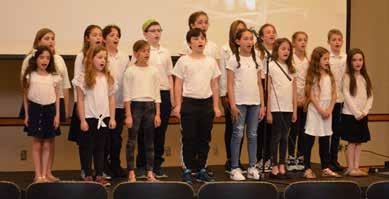
As the sun sets on Yom HaZikaron, the mood shifts as the Jewish community celebrates Yom Ha’atzmaut, Israel’s Independence Day. The transition from mourning to rejoicing symbolizes the Jewish people’s resilience. This joyous occasion marks the establishment of the State of Israel in 1948, following centuries of persecution and diaspora.
Yom Ha’atzmaut is a time for Israelis to celebrate their independence and the tenacity of their nation. Israelis take to the
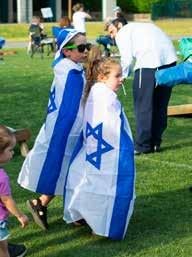
streets in colorful parades, wave flags, and sing and dance in public squares. Families and friends gather for barbecues and picnics, enjoying traditional foods such as falafel and hummus.
Each year, our Charlotte Jew-
ish community gathers for celebration with food, music, and activities for all ages. This year, we welcome musician Aveva Dese to perform. Aveva is part
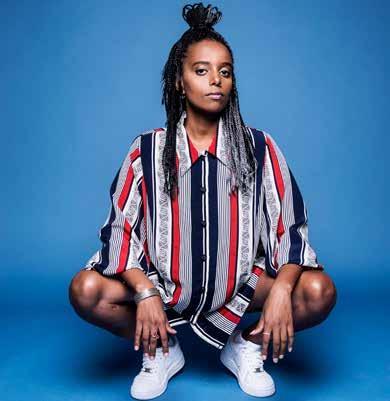
Commemoration to Celebration Levine-Sklut Judaic Library Plans Redesign
(Continued on page 2)
National Library Week 2023, April 23-29, will be celebrated with the theme “There’s More to the Story.”
First sponsored in 1958, National Library Week is a time to celebrate the contributions of our nation’s libraries and librarians and to promote library use and support. All types of libraries participate, including school, public, academic, and our community’s very own Levine Sklut Judaic Library.
In the 20 years since the Library was established it has grown to serve more than 6,000 visitors each year and carries an extensive collection of more than 15,00 titles, all with Jewish content or written by Jewish authors. It has been an important place for connection: connecting to books rich with knowledge, history, and the ability to entertain; connecting to tools for productivity and learning such as public computers and Wi-Fi; and perhaps most
important, connecting to each other through book clubs, classes, and lectures. Our Library serves as a community work space, a place to meet, a rainy day play area, or simply a place to relax with a book and a cup of coffee.
But as the theme of National Library Week suggests, there’s much more to the story, and we invite you to be part of that story as Center for Jewish Education embarks upon a campaign that
(Continued on page 3)
Rabbis’ Messages Pages 19-21
Vol. 45, No.4
e Charlotte NEWS JEWISH
Nisan-Iyar, 5783
NONPROFIT ORG U.S. POSTAGE PAID CHARLOTTE NC PERMIT # 1208 CHARLOTTE, NC 5007 Providence Road, Suite #112 Charlotte, NC 28226 Change Service Requested
Aveva Dese to peform at this year’s Yom Ha’atzmaut community celebration
Yom Ha’atzmaut celebration 2022
Charlotte Jewish Day School Choir at 2022 Yom HaZikaron commemoration
the Bimah
From
From the Editor
Happy Passover from The Charlotte Jewish News
My rabbi in Seattle had a favorite quip each Shabbat when he spoke about the Torah parashah for the week. He would always say this was his very favorite parashah. Each week. Regardless of the parashah — it was his favorite. Once people caught on to this running joke — though he wasn’t really joking — they would chuckle in response. Newcomers and visitors would wonder what was amusing about that statement. I only chuckled the first few times. Then I came to deeply appreciate what he meant by that. The portion that we were in was the one that was the richest to us in the moment, that had the most opportunity to be relevant to our present. Each week he would also say that if all he saw in the parashah this year
was the same as what he saw last year, he knew he hadn’t grown. That is how I feel about our Jewish holidays. If someone asks me what my favorite is, I have to answer that it is the one we are currently celebrating or observing. So it is that we are about to embark on the Passover journey, and it is, indeed, my favorite holiday. The beauty of our holidays is that as much as they are about exploring stories of our past — the Macabeees, Queen Esther, the Exodus — they are unarguably about our present. The most important stories are.
The Passover story talks about our Exodus from Egypt, or Mitzrayim in Hebrew — literally our narrow places and places of constriction. MyJewishLearning. com explains, “According to the text on Jewish mysticism, the Zohar, the name is derived from m’tzarim, meaning “narrow straits” (mi, “from,” tzar, “narrow” or “tight”). When God took us out of Mitzrayim, He extricated us from the place of constricted opportunities, tight control, and narrow-mindedness, where movement was severely limited.” So Passover is an opportunity to look at my enslavement and places of “stuckness.” If I’m still stuck in the same place this Passover as I was last year, still
Shabbat Candle Lighting Times
April
April
e Charlotte NEWS JEWISH

Shira Firestone, Editor

Julie Dalli, Proofreader
5007 Providence Road, Suite 112 Charlotte, NC 28226


(704) 944-6765
www.charlottejewishnews.org
charlottejewishnews@shalomcharlotte.org
living my same enslavements, I know I haven’t grown.
One way to ensure that I am moving forward and not stagnating on my journey is to seek out new perspectives. Charlotte’s Jewish community offers ample opportunities to do that in ways that are new to me. I only have the one city I lived in as a Jew to compare, but in that city, though my synagogue was deeply involved in interfaith work, I couldn’t have told you the names of the other Reform rabbis, and I probably couldn’t have named more than one other synagogue that wasn’t Reform. I’m sure that my own shortcomings played into that — I didn’t actively seek out those connections. However, it also wasn’t naturally part of the culture in that city to be inclusive of the full range of Jewish experience the way I’ve found it to be here. In Charlotte it is not unusual to find rabbis from each of the synaoguges at community commemorations and events. And here at The
Charlotte Jewish News, we are proud to bring the messages of the senior rabbis from each of our communities for all to read in our “From the Bimah” section each Passover and at High Holidays.
I encourage you again this year to visit pages 19-21 and read the messages from clergy other than the one(s) with whom you may already be familiar.
You will read Rabbi Groner, from Congregation Ohr HaTorah, introduce the concept of our task to bring the “fifth child” to the seder.
Rabbi Jaffe, one of the rabbis newest to our community at Temple Kol Tikvah, also touches on the theme of four that permeates Passover with a reflection on the four questions and their invitation to engage with curiosity.
Rabbi Knight from Temple Beth El brings the immediacy of the Passover story to our awareness with a reflection of the Passover story as it relates to modern day tyrannical regimes and the
war in Ukraine.
As Rabbi Oppenheim, from Charlotte Torah Center talks about the four questions and curiosity, he relates it directly to our freedom. “An enslaved person can not ask questions ... a free person can,” he writes.
Rabbi Smookler, of The Ruach, takes us on a fascinating exploration of a symbolic analogy of the Exodus story with that of labor and child birth.
Finally, Rabbi Wolk discusses the history of Passover and its rules and encourages us to find ways to make it our own.
It is my hope that each of these thoughtful reflections will support you on your journey out of your own places of stuckness this year. We in Charlotte are fortunate to have the benefit of each of these teachers, and we at The Charlotte Jewish News feel privileged to be able to bring these messages to you.
Chag Pesach Sameach!
Celebration to Commemoration
(Continued from page 1)
of the first generation of Ethiopian Jews born and raised in Israel. Aveva’s parents were among thousands of refugees living in Sudanese refugee camps in the early 1980s, escaping the civil war in Ethiopia. In a joint effort between the governments of Israel and the United States, dubbed “Operation Moses,” the Sudanese government allowed them to leave. Many resettled in Israel. Aveva weaves her story into her music, about society, freedom, and love. Her style, “Afro-Soul,” offers a mix of texts in English and Amharic (Ethiopian Semitic
language) and traditional Ethiopian sounds.
We hope you will join us on April 26 at 5 p.m. at the Polikoff Athletic Pavillion and LJCC soccer fields as we celebrate Yom Ha’atzmaut with live music, lawn games, authentic Israeli barbeque.
The Jewish Federation of Greater Charlotte is pleased to organize these events on behalf of the community. For more information about either the Yom HaZikaron or Yom Ha’atzmaut events, visit www.jewishcharlotte.org.
Shira

A day of silence, then a day to sing. President Kennedy’s words from 1962 lift up both: “Israel was not created in order to disappear — Israel will endure and flourish. It is the child of hope and the home of the brave. It can neither be broken by adversity nor demoralized by success. It carries the shield of democracy and it honors the sword of freedom.”
Ken Garfield, former religion editor of The Charlotte Observer, is a freelance writer/editor focusing on charitable causes.
Community Rememberance, Commemoration, and Celebration
“Shattered Stars: My Father’s Journey Through Courage, Compassion, and Kindness”
A Holocaust Remembrance Day Presentation with Irene Stern Frielich presented by Temple Kol Ami
Sunday, April 16, 3 p.m.
DiGiorgio Student Center, Winthrop University
More details on page 26
“Memory and Hope” Community Yom HaShoah Commemoration




Featuring members of The Charlotte Symphony Orchestra
Sunday, April 16, 5 p.m.
Morris and Sylvia Speizman Sanctuary at Temple Israel
More details on page 11
Levine JCC Butterfly Project Community Workshop
Sunday, April 23, 1-3 p.m.
Gorelick Hall at Shalom Park
For more information call (704) 944-6833 or email butterflyproject@charlottejcc.org
To learn more about the LJCC Butterfly Project, visit charlottejcc.org/butterflyproject
Community Yom HaZikaron
Commemoration with local clergy and the Charlotte Jewish Day School Choir
Monday, April 24, 6 p.m.
Sam Lerner Center for Cultural Arts on Monday
More details on page 1
Community Yom Ha’atzmaut Celebration
Wednesday, April 26, 5 p.m.-8 p.m.
Live music begins at 6 p.m.
Poliakoff Athletic Pavilion and LJCC soccer fields
Authentic Israeli BBQ, lawn games, live music performed by Aveva Dese, giveaways and more
More details on page 1
The Charlotte Jewish News - April 2023 - Page 2
CHARLOTTE
NEWS
THE
JEWISH
Published monthly except July An affiliate of Jewish Federation of Greater Charlotte
The CJN does not assume responsibility for the quality of kasruth of any product or service advertised. Publishing of a paid political advertisement does not constitute an endorsement of any candidate, political party or position by this newspaper, the Federation, or any of its employees.
7 — 7:31 p.m.
14 — 7:37 p.m.
April
21
— 7:43 p.m.
April 28 — 7:48 p.m.
Shira Firestone, Editor CJN
Jewish Federation of Greater Charlotte Levine-Sklut Judaic Library
(Continued from page 1)
will allow us to transform the Library’s space to meet the needs of our growing Charlotte Jewish community. Our Library’s redesign is one of the areas identified by our community as a priority. As such, the Jewish Federation of Greater Charlotte is taking on this initiative on behalf of the community and offering an additional giving opportunity to support this effort when making a contribution to the 2023 Annual Campaign.
In the nearly 20 years since the Library’s establishment, its collection continuously developed to stay relevant with the times, including the introduction of eBooks and audiobooks. However, it is clear that in order to continue to serve our community, the Library needs to continue to evolve and modernize. We must meet the demand for public co-working, gatherings, and 21st century learning needs and modalities.
The Center for Jewish Edu-

cation Capital Campaign will raise funds to transform the Library’s space to meet the needs of our growing Charlotte Jewish community. Modernization highlights include a redesigned children’s room, group study spaces as well as individual study rooms, and integrated work spaces that will allow the library to


function as a gathering place for knowledge and engagement.
In redesigning the space, careful thought was given to creating an inviting, friendly, and comfortable space for our community’s youngest readers. The children’s room hosts more than 740 story times a year with our community’s beloved Miss

Debby. The new plans for the room include different areas to cater to a variety of ages and interests, from interactive games and play stations, to quiet spaces for reading and studying, all with a flexible design that can be adapted as needed.
One anonymous donor says, “There is no greater time to invest in the education of our next generation and Shalom Park has been instrumental in the development of our children over the years. We can’t wait to see the
designs be brought to life and give our community another reason to come together and learn in each other’s company.”
As we celebrate National Library Week in April, we invite you to be part of our Library’s story. Stop by, check out a book, and join us in enhancing Jewish education and engagement by supporting the Levine-Sklut Judaic Library Capital Campaign. To learn more visit: www.jewishcharlotte.org
Andrew is an awardwinning agent ready to assist in your real estate journey. Named in the Top 1% of All Real Estate Agents in 2021 by Real Trends. In addition, Andrew is an involved member and leader in our Charlotte Jewish community.
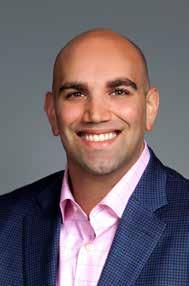
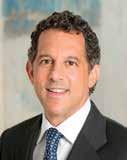
The Charlotte Jewish News - April 2023 - Page 3 704.247.3033 kgreenspon@windinsgroup.com Since 1974, we have assisted community families and businesses with: • Group Benefits • Life, Disability & Long-Term Care Insurance • Business Planning & Executive Benefits • Medicare Plans & Annuities As part of the Windermere Insurance Group, Greenspon & Associates can now also help with: • Homeowner's, Auto, & Umbrella Coverage
Commercial Business Insurance & Builder's Risk
Professional Liability
Greenspon Advisor
•
•
Keith
or Relocating? Andrew Rosen team of real estate agents affiliated with Compass, a licensed real estate broker under the name "Compass South Carolina, LLC" in South Carolina and under the name "Compass" in North Carolina and abides by Equal Housing Opportunity laws. Andrew Rosen andrew.rosen@compass.com M: 704.604.4756
O: 704.234.7880
Buying, Selling
|
Renderings of new Library design
Renderings of new Library design
Charlotte 8th Graders Return from Weeklong Trip to Israel
By Chad Schaeffer, JFGC Director of Education and Engagement

As the director of education and engagement for the Jewish Federation of Greater Charlotte (JFGC), I had the opportunity this past February to lead a group of five local eighth graders on a one-of-a-kind trip to Israel. The trip was part of Federation’s Outshine Hate initiative, created to educate, strengthen, and unite the local community to end antisemitism and anti-Israel hatred. Israel travel and exchanges are
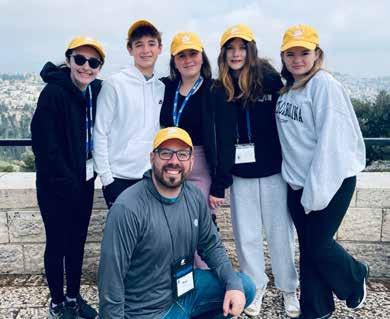
questions and discover profound answers. They created memories that will not only last a lifetime but will also be foundational to their Jewish identity moving forward.
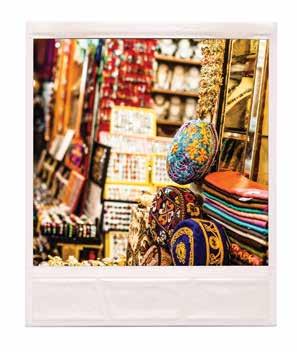

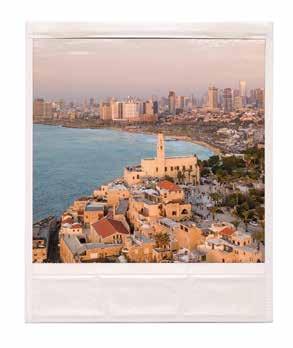
Our days on the bus were full, moving from one location to another. The itinerary included visiting the Peres Center for Peace & Innovation, the ANU — Museum of the Jewish People in Tel Aviv, and relaxing on Shabbat. We had the opportunity to visit Masada, a symbol of the ancient kingdom of Israel and Jewish
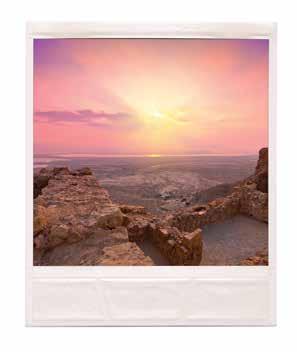
periences that connections to our identity come in surprising, informal ways as much as through any formal instruction or programming, so it was heartwarming to witness the students as they connected with each other, singing together on the busses and staying up late into the night talking. Our local group was combined with other students from around the country (Chicago, Rochester, New Jersey). Though hesitant to connect at first, by the end of the trip, these students had made relationships

The Charlotte Jewish News - April 2023 - Page 4
Jewish Federation of Greater Charlotte
Nov. 5-13 2023 Scan this qr code or visit jewishcharlotte.org for more information your way
Jewish Federation of Greater Charlotte Sue’s Bookshelf
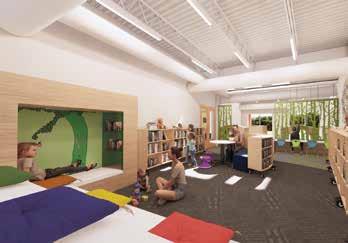
of the new Israel” — “The New York Times”
Whether you read the timeless classic when it was first published in 1982 or more recently as a requirement for a teen trip to Israel, the main characters, Ari, Kitty, Dov, and Karen, are no doubt still in your heart and in your mind.
 By Sue Littauer
By Sue Littauer
Israel celebrates its 75th birthday on April 25, 2023. In celebration, I’ve compiled a list of my favorite books related to Israel. A book about the history of Israel, one about a founder of the State of Israel, one celebrating the strength and ingenuity of the people of Israel, and one by a contemporary Israeli author.
I have no doubt that “Exodus” would be the number one favorite recommendation by readers of all ages. It’s a “passionate summary of the inhuman treatment of the Jewish people in Europe, of the exodus in the nineteenth and twentieth centuries to Palestine, and of the triumphant founding
I don’t think I appreciated the great opportunity given to me when I had the opportunity to meet a great leader of the State of Israel. I actually met Shimon Peres twice as he welcomed leaders of the American Jewish community to Israel. And when I served as a judge for the Jewish Book Council’s biography panel and read his book, “No Room for Small Dreams: Courage, Imagination and the Making of Modern Israel,” I was in awe of his achievements. Shimon Peres was the last survivor of the generation of leaders who founded the modern state of Israel. In his book, Shimon Peres tells his life story in a very readable way. “Told with the frankness of someone aware this would likely be his final statement, “No Room for Small Dreams” examines pivotal moments in Israel’s rise. Peres
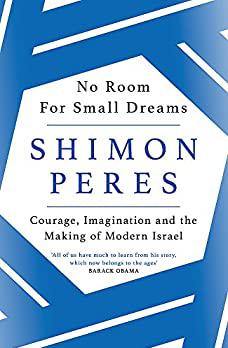
explores what makes for a great leader, how to make hard choices in a climate of uncertainty and distress, the challenges of balancing principles with policies, and the liberating nature of imagination and unpredicted innovation.” — Amazon
I think a great word to describe Israelis is “chutzpah” and there is no better way to truly appreciate and understand the miracle of the state of Israel than to read “Start-Up Nation: The Story of Israel’s Economic Miracle” by Dan Senor and Saul
Levine -Sklut Judaic Library CAPITAL CAMPAIGN
Singer. “Israel, a country the size of New Jersey and surrounded on all sides by hostile nations, has more companies listed on the NASDAQ stock exchange than the next five foreign countries com¬bined. In this book, two Middle East experts … credit a combination of five characteristics: Israel’s strategic isolation, the centrality of its military, its close connections with and support from its diaspora, and its pioneering origins. With references to history and by means of personal anecdotes, Senor and Singer introduce the reader to many of the people who have helped make household names of companies such as Intel, Cisco, Google, and many others equally important but less familiar as well as to visionaries such as David Ben Gurion and President Shimon Peres who created a nation that values and encourages innovation. — Jewish Book Council, Peter Rothholz Finally, my favorite novel by a contemporary Israeli author
The proposed facility updates and space modernization re-envisions the library’s key functions to create a user-centric and modern environment that better supports 21st century learning needs and modalities. These changes would put the Levine-Sklut Judaic Library on par with the redeveloped libraries throughout our Mecklenburg County system.


is “Waking Lions” by Ayelet Gundar-Goshen. “Waking Lions” is a gripping, suspenseful, and morally devastating drama of guilt and survival, shame and desire. The novel has been translated into thirteen languages, and earned numerous prizes, awards, and recommendations by such publications as “The New York Times Book Review” and the “Wall Street Journal.” “Waking Lions” would be a top choice for your book club, one which highlights many contemporary issues in Israeli culture, and showcases the brilliance of the next generation of Israeli writers.
To honor the birthday of the founding of Israel, take the time this month to read one of these books or one of your own choosing.
All books are available to borrow from the Levine-Sklut Judaic Library at the Center for Jewish Education. For more information, contact sue.littauer@ jewishcharlotte.org.
The Charlotte Jewish News - April 2023 - Page 5
Jewish Federation of Greater Charlotte
Miss Debby’s Best-Loved Children’s Books Books About Israel for Children
derful country of Israel, including Bedouins, Arab Israelis, refugees from all over the world, and, of course, the Jewish people. To quote from the book, “This is our Israel. We all play a part. From people to people our home and our heart.” I highly recommend this book for children 3-8 years old.
I particularly love the way this book provides interactive opportunities for children to find various objects in the illustrations. “Shalom Everybodeee!” is recommended for preschoolers to first grade.

I believe this book needs to be required reading for all Jewish middle school students. Thank you Tammar Stein for such a beautiful book!”
By Debby Block
It is time to celebrate Israel’s 75th birthday! And how better to prepare for this auspicious Yom Ha’atzmaut than to read books that celebrate Israel and all the experiences one can have while living in Israel or visiting our Jewish homeland?
“My Israel and Me” by Alice Blumenthal McGinty is a new book that takes the reader on a journey to meet the people of Israel. This beautifully illustrated book includes simple rhyming text as well as a more in-depth explanation for older children and adults on each page. I simply love this book because it shows the rich diversity of cultures and religions that make up the won-
Grab your favorite stuffed animal and read “Ella’s Trip to Israel” by Vivian Newman. Ella travels by plane to Israel with her stuffed monkey, “Koofi.” They visit the Kotel, the Dead Sea, Tel Aviv, and even a kibbutz. Along the way, the stuffed monkey gets pretty dirty, but as Ella learns it is “eyn ba’aya”; it is no problem. This is a great book about Israel to share with preschoolers, particularly 2-4-year-olds.
Fuzzy blue Grover is the perfect tour guide as he takes young readers to Mahane Yehuda in Jerusalem, the Kotel, a kibbutz, an archaeological dig, Eilat, and the Dead Sea. “Shalom Everybodeee! Grover’s Adventures in Israel” is written by North Carolina authors Tilda Balsley and Eileen Fischer. This Shalom Sesame book provides lots of valuable information as it takes us on an armchair visit to Israel.
The experience of a young Israeli girl of Ethiopian descent is realistically and sensitively portrayed in the chapter book, “Too Far From Home” by Naomi Shmuel. Meskerem’s family moves to a suburb of Tel Aviv from Northern Israel. Elevenyear-old Meskerem is extremely upset to leave her best friends and her grandmother, but things get even worse when she discovers that she is the only person of color in her new school. Our protagonist struggles to fit in as she confronts prejudice and ignorance. “Too Far From Home” is a short, fictional novel that allows young readers to put themselves in someone else’s shoes and build empathy. This book is great for family discussion and I recommend it for 8-12-year-olds.
Tammar Stein has written two terrific historical fiction novels about Israel that are perfect for children ages 9-13. The first book is called “The Six-Day Hero.” This thrilling, beautifully
written coming-of-age novel vividly captures the spirit of Israel during the Six-Day War through the eyes of twelve-year-old Motti, who lives in Jerusalem. Motti dreams of becoming a hero and feels frustrated that he is too young. When the war reaches his family’s doorstep, the reality of war teaches him that courage and daring are not the same.
Charlotte author Rochel Vorst comments, “The story doesn’t just tell the history of the SixDay War, but conveys the complicated situation that is Israel, as well as the deep connection we have to our beloved homeland.

“Beni’s War” is the sequel to “The Six-Day Hero” and it continues the story of Motti’s family through the eyes of his younger brother Beni. When the Yom Kippur War breaks out, Beni, who is 12 years old, struggles to find a way to help the war effort but along the way learns the importance of love, courage, and acceptance. Both of Stein’s novels are compelling reads and provide valuable information about Israel as told through the eyes of a tween. I highly recommend both books for middle-school students or older.
Celebrate Israel’s 75th birthday by picking up one or all of the above books at the Levine-Sklut Judaic Library on Shalom Park. You may visit us at the library or reserve a copy by calling (704) 944-6763 or emailing library@ jewishcharlotte.org.
An Interview With Hanoch Piven: Artist-in-Residence
By Debby Block
Hanoch Piven is an award-winning illustrator, educator, and advocate of creativity. As part of the celebration of Israel’s 75th birthday, Jewish Federation of Greater Charlotte is proud to bring acclaimed Israeli artist, Hanoch Piven, to Charlotte for an artist-in-residence weekend for the entire community. Here is Debby Block’s interview with Hanoch Piven.
Debby Block: Can you tell me about your background?
Hanoch Piven: I was born in Montevideo, Uruguay. I was the youngest of three children and I grew up being called “Ernesto.” As part of an active Zionist family and community, I went to Jewish schools and learned to speak Hebrew. In the early 1970s, Uruguay became a military dictatorship, so when I was eleven years old, my family made Aliyah to Israel.
DB: What was that experience like for you?
HP: Luckily, I was somewhat fluent in Hebrew. This was a time of transformation for me and I focused on fitting into Israeli culture. My name changed to my Hebrew name “Hanoch” and I stopped doing any art. Within 2-3 years, I felt completely Is-
raeli. Only six short years after arriving in Israel, I began serving in the Israeli Defense Force (IDF), where I served five years in Intelligence.
DB : What did you do after your time in the IDF?
HP: I went to New York City and studied at the School of Visual Arts. It was at this time, I began to develop my own identity, which was a combination of my South American roots, my Israeli fortitude, and chutzpah, as well as my own personal artistic sensibilities. I began to put together my professional career in New York by creating caricatures, which were published in US magazines.
After ten years in New York, I moved back to Israel. I became well known throughout Israel for my contributions to Haaretz newspaper, two best-selling books, as well as children’s TV shows. Eventually, my work became part of the popular culture in Israel.
DB: Do you think you would have had the same success if you had stayed in the US?
HP : I actually do not think so. In the States, I believe I may have been pigeonholed as an illustrator of children’s books. However, Israel is all about

growth, change, and creativity. There is a wonderful creativity that is Israel! Israel has been the perfect fit for my art to expand and grow in all areas. I have been able to apply my art to education, to therapy, to leadership, and to building relationships.
DB: Can you explain a little about your multi-media art for our readers who may not be familiar with the techniques that you use?
HP: I do not draw with pens or with pencils. I create caricatures with everyday objects. Each object is used for a specific reason because each object depicts something about the personality of the person I am portraying.
DB: The tagline on your website is “Art is Play.” Can you talk a little more about your philosophy?
HP: A playful space is a protected space. When we play, we are allowed to behave differently. We can be a different version of ourselves. We can be funny; we can experiment; we can fail; we can be vulnerable. Art space is a place to play and to practice a variety of behaviors, to learn new things, and then to apply these newly learned behaviors to other processes.
DB: I see that you have applied your art method to foster interchange and dialogue between Jews and Arabs in Israel through the organization Seeds of Peace.
HP : Typically, people have preconceived notions about people and things. This is what prejudice is about. Making art is about letting go of those preconceived notions. My workshops
are about paying attention and seeing things with new eyes. When you learn to truly pay attention and see what is inside of yourself, you come to appreciate those who are around you as well.
DB: Your new book “Dream Big, Laugh Often and More Advice from the Bible” which came out in March 2023 is quite different from your previous children’s books. What was the inspiration?
HP: It is important to always pay attention and be open to “happy accidents.” A few years ago, I was visiting a summer camp in the Poconos and I met Jewish educator Shira HechtKoller. Our relationship and discussions evolved into this new book. Just as art teaches us to be curious, to dream, and to live a meaningful life, “Dream Big, Laugh Often” shows the creative journey of each bible hero. In creating these modern-day Midrash (stories about stories in the Torah), I hope I have provided a relevant entry point into the bible for children and adults.
The Charlotte Jewish News - April 2023 - Page 6

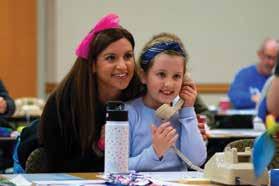

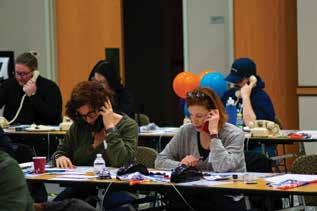

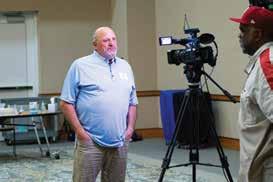

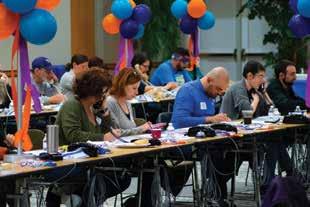

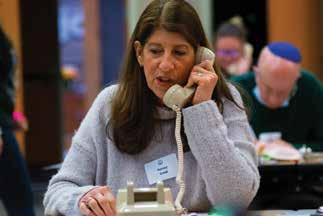

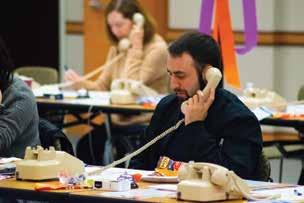

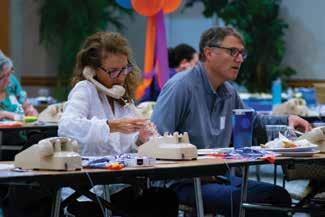

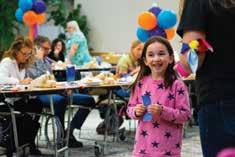

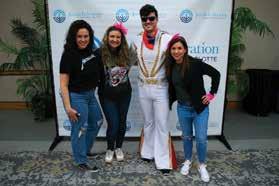


The Charlotte Jewish News - April 2023 - Page 7 Visit Text "PLEDGE" to Call our office at 3 WAYS TO GIVE 2023 Annual Campaign Now We Go Forward SUPER SUNDAY Thank you to our volunteers who helped in many ways, and to our donors who gave generously to support our Annual Campaign. Because of you, this was our best Super Sunday ever!
We Must Never Forget: Local Holocaust Education
By Ken Garfield
History will never forget the Holocaust. But what about tomorrow’s children, youth and, as scary as it might be to imagine, adults? Will they remember the six million Jews and five million others who perished? Will survivors’ voices still be heard after they are gone? What about future generations? Will they continue to remember the six million Jews and millions of others who perished during the Holocaust? Will the messages and voices of Holocaust survivors continue to resonate as we are confronted with future human catastrophes such as genocide? Will the imperative call — stopping hate begins with me that rose from the ashes of the Shoah continue to compel humanity to do better?
A 2020 nationwide survey of 1,000 18- to 39-year-olds found that nearly two-thirds didn’t know that six million Jews were killed in the Holocaust. Fifteen percent thought holding neo-Nazi views was acceptable. Ignorance spawns hate, whether it is aimed at African Americans, Asian Americans, Jews, or any other minority. Incidences of antisemitism reported to our Jewish Federation of Greater Charlotte in 2021 more than tripled from prior years. Two new Federation initiatives speak to that: Safety & Security and Outshine Hate, the latter working against antisemitism and anti-Israel attitudes through workshops and the like.
Yes, there is cause for concern. But on Yom HaShoah, we also recognize that which gives us hope. On and around April 17, Holocaust Remembrance Day, we affirm those who keep Holocaust education front and center. Survivors, teachers, clergy, parents, artists and activists in Charlotte and beyond are telling the story and educating others in powerful, often unique ways.
It’s The Law
Since 1981, the North Carolina Council on the Holocaust has supported more than 13,000 teachers with books and resources, workshops, and webinars.
As part of the North Carolina Department of Public Instruction, the Holocaust Council is the backbone of Holocaust education in the state. Among its offerings: Eight to 14 teacher workshops and webinars a year offering material on such questions as “Why Teach About The Holocaust?” and “How To Teach the Holocaust.” A teacher’s guide with narratives from 21 survivors who became N.C. residents. Traveling plays, class purchases of books, and exhibits for schools and libraries.
“Triumph Of Life,” for example, features 40 laminated posters on Jewish resistance and survivors.
The Council also offers a statewide speakers bureau and sponsors the state’s annual Holocaust commemoration in Raleigh.
With the Council proving its importance, North Carolina became the 21st state to mandate Holocaust education in public
schools. The requirement begins for middle and high schools in the 2023-24 school year. The Council is working to establish curriculum guidelines and will train teachers on how to teach the Holocaust. For example, seventh-graders might explore the question, “What conditions, ideologies, and ideas made the Holocaust possible?” Tenth-graders might read “Night,” the 1960 memoir by Elie Wiesel based on his experiences at Auschwitz and Buchenwald.
As there is for most Holocaust stories, there is a tender dimension to this state law. The legislation passed in 2021 is the “Gizella Abramson Holocaust Education Act.” It is named after a Polish-born Holocaust survivor who relocated to Raleigh. She died in 2011 at age 87. Her son, Michael, is the longtime chair of the North Carolina Council on the Holocaust.

Becoming One Human Family
The Stan Greenspon Holocaust and Social Justice Education Center at Queens University of Charlotte builds capacity in individuals to respond to prejudice and discrimination in our community. Directed by Rabbi Judy Schindler, the center focuses on Holocaust education, social justice/community organizing, and Jewish studies at Queens while developing a nationally-recognized brand for excellence in both Holocaust Education and Social Justice Training.
As one of the first university-based centers of its type in the Southeast, it was the dream of Charlotte’s Stan Greenspon to expand Holocaust and human rights education in Charlotte and highlight the lessons to be learned from it.
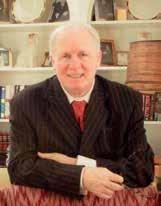
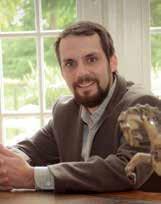
The Center’s reach extends beyond Queens in response to an ever-increasing demand for Ho-
locaust education in our region and beyond. Assistant director, Judy LaPietra, manages the Center’s Holocaust programming and initiatives both on campus and in the community and collaborates with local organizations in responding to hate in the community. At the centerpiece of the Center’s Holocaust educational offerings is the Certification in Holocaust Pedagogy (CHP) program for educators. The CHP program provides intensive training on methods and strategies for teaching about the Holocaust across subjects and grades 6-12 and culminates in an experiential learning opportunity in Poland for participating educators. In addition to offering educational support for educators and the North Carolina Holocaust education mandate, the Greenspon Center engages in Holocaust education in the corporate world as well as in the broader community. The Center continues to move the original vision of Stan Greenspon forward and its reach continues to grow.
Education, Advocacy, Empowerment
Jewish Federation of Greater Charlotte shares the story and lessons of the Holocaust through its Jewish Community Relations work and Outshine Hate initiative.

Federation advocated for the passage of the North Carolina law mandating Holocaust education. It is currently advocating for the passage of the Holocaust Education and Antisemitism Lessons (HEAL) Act of 2023 in Congress. The bill directs the United States Holocaust Memorial Museum in Washington, D.C. to conduct a study of Holocaust education efforts in public schools nationwide, including which school districts are lag-
ging.
Federation’s Outshine Hate initiative was created to educate, strengthen, and unite the local community to end antisemitism and anti-Israel hatred. As part of Outshine Hate, the Federation hosted several programs this past autumn: With the help of the Anti-Defamation League, a workshop for educators considered how best to identify and respond to antisemitism. A webinar on the history of antisemitism welcomed teachers and staff. Leaders from 50 businesses and organizations attended a workshop on how to incorporate antisemitism into their work around diversity, equity, and inclusion. Federation’s Jewish Community Relations Council hosts such workshops. As a result, a Charlotte law firm hosted a Lunch and Learn at which Holocaust survivor Suly Chenkin told her story.
Resources for Learning
The Levine-Sklut Judaic Library at the Center for Jewish Education, a home for learning at Shalom Park, takes seriously the obligation to remember the Holocaust. The library is open to everyone, and Holocaust literature (print and e-books, fiction and non-fiction) abounds for all ages.
The Blumenthal Educator Resource Center within the Library is a popular resource with teachers and includes material from the United States Holocaust Memorial Museum and Yad Vashem – The World Holocaust Remembrance Center in Jerusalem. Included are curriculum materials, lesson plans, posters and more, all available to be checked out, copied, and laminated.
The Library is part of JFGC’s Center for Jewish Education, which has for two years hosted the Jewish Book Festival. The Festival has presented books and authors that address the Holocaust and antisemitism.
Last year, the Book Festival brought in author Liza Wiemer, whose young adult contemporary novel, “The Assignment,” based on the true story of an assignment given to students to argue for the Final Solution, struck a chord with high school students who read the book and attended the talk.
If you or anyone you know have a property in need of a property manager, please call me at: 980.288.5616 hroskind@gmail.com
This past March, The Book Festival included Dara Horn, author of the provocatively titled, “People Love Dead Jews,” which, according to The New York Times, “explores how the different ways we commemorate Jewish tragedy, how we write about the Holocaust, how the media presents anti-Semitic events … are all distractions from the main issue, which is the very concrete, specific death of Jews.”
The Charlotte Jewish News - April 2023 - Page 8 Premier Concierge Property Management www.roskindhomes.com Hunter Roskind Realtor®/Broker
Richard Roskind Realtor®/Broker LICENSED IN NC & SC 704.905.6175 rcroskind@aol.com Brokerage Residential & Commercial
(Continued on page 9)
Teachers viewing an exhibit at the United States Holocaust Memorial Museum in July of 2022 on the summer bus trip sponsored by the North Carolina Holocaust Foundation
Holocaust Education
Butterflies Don’t Live In Here
The Margaret and Lou Schwartz Butterfly Garden Holocaust Memorial at Shalom Park is our community’s most visible reminder of the Holocaust. Artist Paul Rousso’s sculpture was erected in 2011. Originally with 2,800 ceramic butterflies, it has since been covered and totals almost 6,000 butterflies, each one hand-painted by area school students and others. Students are now encouraged to take the butterflies they paint back to their schools to create some type of memorial on their campus. The work, and all those butterflies, honor the memory of the 1.5 million children who died in the Holocaust. A poem by Pavel Friedmann, who was a prisoner of Terezin Concentration Camp and died at age 23, is its inspiration. The last line: “Butterflies don’t live in here, in the ghetto.”
Each school year, 6,000 middle school students from across the region attend a two-and-ahalf hour workshop at the Levine Jewish Community Center. They interact with either Suly Chen-
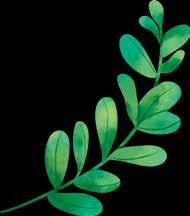
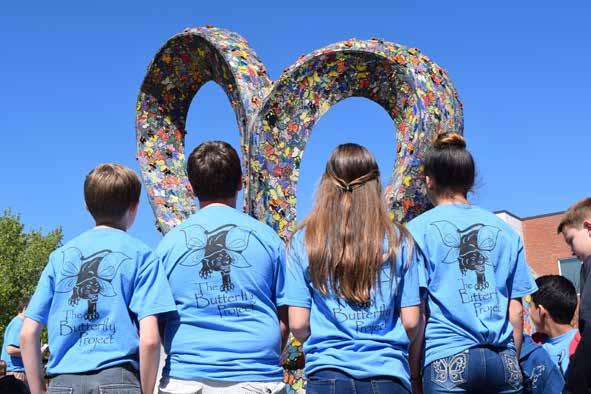
kin or Irving Bienstock, two of Charlotte’s survivors. Suly was a child when she escaped the ghetto in a potato sack. Irving was a child when he lived through Kristallnacht, The Night of Broken Glass, which signaled the start of the Holocaust. After painting their own butterflies, students gather at the sculpture.
LJCC Butterfly Project Coordinator Lori Semel says they often ask, “Why did this happen?” Humanity is still wrestling with that question. In their visit to Shalom Park, students learn that it began with bias. In the 1930s, German posters declared “Jews are our misfortune.” It ended with genocide.
The hope is that students return home with a new understanding, and a determination to treat everyone equally, so that the phrase “Never again” never loses its meaning.
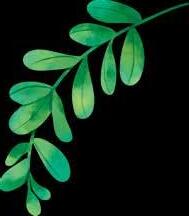
The Holocaust Through Music


Since 2013, a quartet from the Charlotte Symphony Orchestra has been visiting area middle and high schools and telling the Holocaust story through music. Retired principal clarinetist Gene
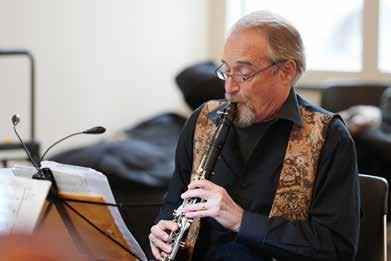
Kavadlo is proud to explain. Each 45-minute concert offers narration and images from the past, depicting not just the hor
rors but the rich Jewish culture of the times. Some of the music performed by the ensemble was considered “degenerate” by the Nazis because it was part of Jewish culture, or written by Jewish composers. However, the music and culture survived despite Nazi prohibitions. The quartet — clarinet, bass, violin and keyboard — performs the theme from “Schindler’s List,” the 1993 film chronicling what one person, in this case German industrialist Oskar Schindler, did in the face of evil. The plaintive sound of the violin, Kavadlo says, leaves students somber in their seats. The program closes with a style of music called “Freylekh” (Yiddish for “merriment or pleasure”). It is meant to be danced to. The music plays and students all but get out of their seats, Kavadlo says. The lesson is as clear as day. The Jewish culture could not be silenced. The Jewish faith, and the Jewish people, live on.
per school students at Providence Day School experienced what project coordinator Kinga Zay called “a somber walk through the history of the Holocaust.” With candles lighting the way, they walked slowly through the King Room in the school library. They looked at photographs, read about book-burning and considered such questions as “What were the reasons for the Holocaust?” The answer shared with students? Nazi ideology was built on a foundation of antisemitism and extreme nationalism. At the end, students left notes sharing what they learned. One wrote, “Never forget. No place for hate.” Kinga Zay is a native of Hungary. At Providence Day, she teaches German.
It’s On Us
It takes more than a state law, school program or butterfly sculpture to keep the lessons of the Holocaust alive. It takes all of us. During the Holocaust, many allies risked their lives to help and save others. Today, we can
(Continued on page 12)
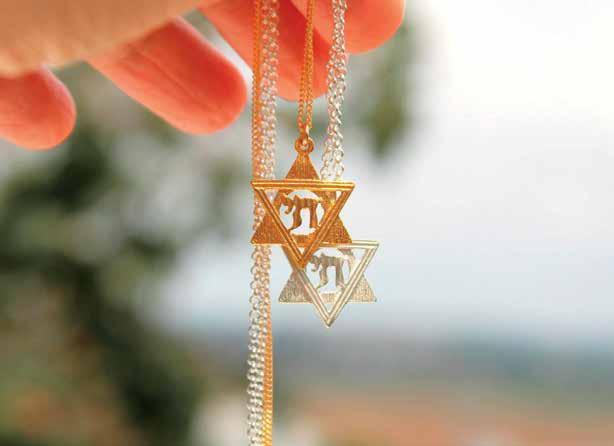
The Charlotte Jewish News - April 2023 - Page 9
•Diamonds, Bridal, Custom Design •Fine & Estate Jewelry •Buy, Sell, Repair, & Appraise •Our Diamonds are Imported from Israel
Students at the The Margaret and Lou Schwartz Butterfly Garden Holocaust Memorial
Gene Kavadlo, part of a quartet with the Music and the Holocaust program of the the Charlotte Symphony Orchestra
(Continued from page 8)
YOM HASHOAH COMMUNITY COMMEMORATION & Concert
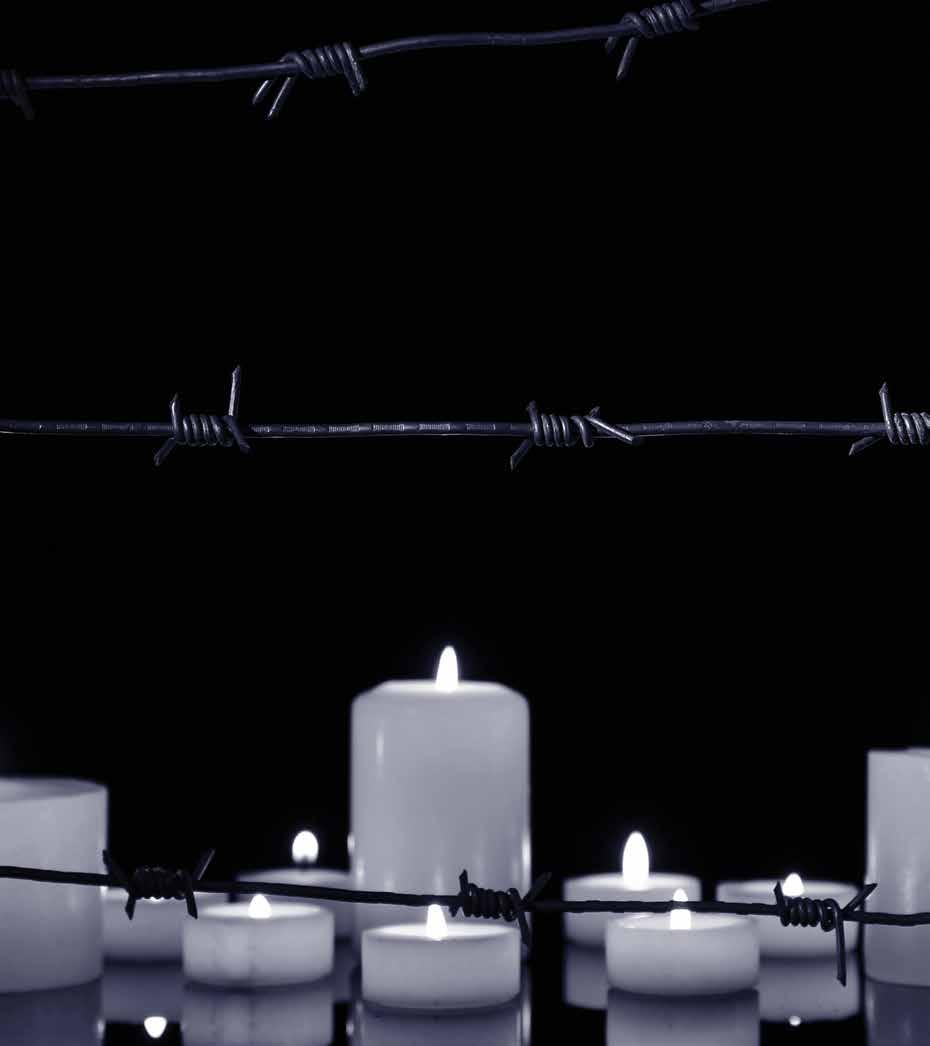


Sunday, April 16, 5 p.m.


@ Temple Israel featuring members of the Charlotte Symphony Orchestra

Gather to remember those who perished in the Holocaust and honor those whose lives were forever changed. Featuring Cantor Mary Thomas and Cantor Shira Lissek, with members of the Charlotte Symphony Orchestra, we will harness the powers of music to soothe, to feel grief intensely, and to recall past times and people with lasting affection. Through ritual, testimony, and music, we will share the stories that have been entrusted to us.

The Charlotte Jewish News - April 2023 - Page 10 Kindly RSVP at https://bit.ly/YHC2023
Memory and Hope: A Yom HaShoah Community Commemoration and Concert Featuring Members of Charlotte Symphony Orchestra
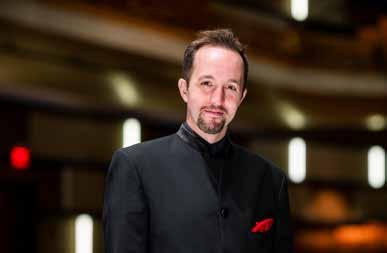
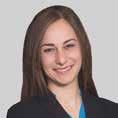
 By Cantor Shira Lissek
By Cantor Shira Lissek
The responsibility to commemorate the Holocaust falls upon all humanity, inspiring us to combat hate in every form, protect all minorities, prevent genocide, and to celebrate and support Jewish survival. Each year at Yom HaShoah, our community remembers the survivors, liberators, and those who per-
ished in the Shoah with a community-wide commemoration.
As we so often do when we remember and mourn together, we turn to music at these times. This year, our Charlotte Jewish community is collaborating with the Charlotte Symphony Orchestra for a very special program: Memory and Hope: A Community Yom HaShoah Commemora-
tion and Concert. The visionaries of this event, our sponsors, and our beloved survivors expressed the desire to reach out, educate, and share these stories through the power of music. Music has the power to reach beyond language and speak directly to the soul to express the resilience and hopes of the human spirit in the face of adversity.
At the heart of this year’s commemoration is a concert featuring Cantor Mary Thomas of Temple Beth El, Cantor Shira Lissek of Temple Israel, with members of The Charlotte Symphony Orchestra. The concert will harness the powers of music to soothe, to feel grief intensely, and to recall past times and people with lasting affection. Orchestral selections will include the theme to “Schindler’s List” and the vocal selections include Ravel’s Kaddish and psalms, as well as contemporary songs written in response to the Holocaust that reflect the lessons I have learned as the daughter of a Hidden Child in France during World War II.
In addition to the concert
portion of the evening’s program will be our community’s commemoration including candle-lighting, using the words from our own local survivors. We light seven candles – six for the six million Jewish who perished and one candle to represent the many more who we know perished as well.
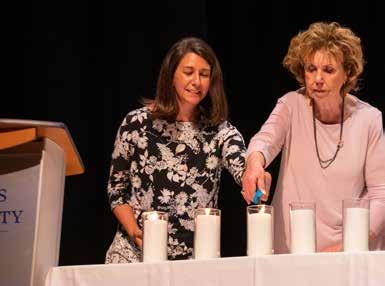
Survivors will not be here forever; it is incumbent upon us to share the stories we have been entrusted with from generation

to generation. With music, ritual, and testimony, we hope to create a bridge with future generations to unite us.
We hope you will join us. This year’s commemoration and concert is being hosted on behalf of the community by Temple Israel on Sunday, April 16 at 5 p.m. in the Morris and Sylvia Speizman Sanctuary at Temple Israel. All are welcome. Kindly RSVP at https://bit.ly/YHC2023.
With 29 offices coast to coast – including four locations in the Carolinas – Fox Rothschild offers mid-market businesses the best of both worlds. Clients get the robust services of a national law firm with more than 70 practice areas, delivered by accessible attorneys who know the local courts and understand their market. YOU WANT A LAW FIRM WITH NATIONAL RESOURCES AND A LOCAL PRESENCE. WE HEAR YOU. 101 N. Tyron Street, Suite 1300 Charlotte, NC 28246 CHARLOTTE | GREENSBORO | RALEIGH | GREENVILLE, SC Brian C. Bernhardt 704.384.2607 bbernhardt@foxrothschild.com Alexandra J. Hirsch 704.384.2641 ahirsch@foxrothschild.com The Charlotte Jewish News - April 2023 - Page 11
Lori Semel, LJCC Butterfly Project coordinator and Suly Chenkin light a candle of remembrance at the 2022 community Yom HaShoah commemoration.
Charlotte Symphony Orchestra resident conductor, Christopher Lees
Jewish Life Thrives at Queens University
By Lara Boyle
When Chava Rosenberg, 25, from Atlanta, Georgia, began her search for the perfect college, she knew she wanted a small school with city life and a strong Jewish community. But she never thought she would find a place that offered both. At Queens, she discovered the best of both worlds. Located in the heart of Myers Park, Queens is just a short drive or bus ride away from uptown Charlotte, so students get to enjoy the quiet suburban atmosphere of a beautiful neighborhood alongside the vibrant city life. For Chava, the current president of Hillel at Queens, the support she has received from the diverse Jewish community in Hillel makes the Presbyterian campus a home away from home.
“I love the support from Hillel,” she said. “Since we are the minority, it’s nice to always have someone to rely on and know they will always have your back. It’s also nice to have people that understand the hardships and joys that come with being Jewish in the south.”
The most fulfilling part of her time in Hillel so far has been the opportunity to make connections with other Jewish and interfaith students. She particularly loves the “amazing, fun events” offered each year like Soul Food Shabbat, which unites Hillel and the Black Student Union during Black History Month in February for a night of great food from both cultures and important conversations about the layered history these two communities share.
This year, the broader Charlotte community was invited to participate, bringing many new perspectives to the table. On International Holocaust Remembrance Day, Chava assisted in honoring Holocaust survivors in the community with sunflowers at the Stan Greenspon Center’s event, where Dr. Stephen Smith of the Shoah Foundation displayed interactive A.I. technology that showed how we can keep survivors’ stories alive. She also got to see Rabbi Cytron-Walker speak, who was honored with the Upstander Award and a standing ovation.
Chava’s goals are for Hillel to grow and prosper. “Although we may not have a large Hillel population, we have a big presence on campus. I would love to continue this presence and continue connecting people to Hillel,” she said. “I absolutely love being Jewish. Learning about the culture and background of Judaism and the people that came before me is so interesting. I think my favorite thing about being Jewish is the culture and connections. It seems like everywhere I go, a Jewish family is waiting to welcome me into their home and community.”
If she had to describe the American Jewish population in one word, it would be resilient. One member of Hillel who embodies this resilience is Athena Strickland, 25.
Athena Strickland entered Queens University of Charlotte as a freshman from North Carolina. This year, members of Hillel are excited to celebrate Athena’s B’nei Mitzvah. Although tradi-
Holocaust Education
learn from these lessons and be allies in our own time. It begins with education.
Visit the United States Holocaust Memorial Museum in Washington, D.C., which has educated 47 million visitors since opening in 1993. Next time you are at the Levine Jew-
tionally, Bar or Bat Mitzvahs adhere to the male/female gender binary, the term B’nei Mitzvah, meaning children, in Hebrew, is a welcomed milestone towards inclusivity for nonbinary people like Athena who want to honor both aspects of their identities. Growing up in an interfaith household with a Jewish mother, Athena always felt connected to Judaism. But since coming to Queens, their desire to embrace their Jewish roots has grown stronger. Athena consulted with Rabbi Judy Schindler about the
possibility of a B’nei Mitzvah. They celebrated the big day on a Shabbat in February with lots of music, friends, and great food.

“Getting involved in Hillel has made me feel more connected to Judaism through the community,” they said.
Stacy and Todd Gorelick have contributed funds to support
Jewish life at Queens. “We are alarmed by the antisemitic climate on college campuses,” said Stacy. “We hope that continuing to build strong Jewish life at Queens will increase dialogue and understanding among students and also attract even more Jewish students to study there.”
“I believe that there is a healthy seed of Jewish Life at Queens University.” Shira Snyder, coordinator of Jewish life, said. “The students are passionate and the whole of campus is supportive of Hillel. This healthy base creates the perfect opportunity to grow Jewish life and engagement of campus in Hillel activities/events.”
Jewish life is present on campus throughout the year. In 2022, members of Hillel enjoyed several important events, from high holiday services to building a sukkah from scratch for Sukkot. During Sukkot, students could be spotted enjoying the comfort of the sukkah in the fall weather, reading a book, eating lunch, or just catching up with friends. Many students in the interfaith program also gathered in the Sukkah on Shabbat for sushi and to close out the week, listing goals for the week ahead. The sukkah embodies what Hillel has to offer students at Queens: a community dwelling place where everyone is embraced with warmth.
Organizations mentioned in this article:
ish Community Center, visit the mini-exhibit profiling Charlotte Holocaust survivors. “All That Remains” that graces one corridor in the center of the building. Read “Protective Custody: Prisoner 34042” by Holocaust survivor Susan Cernyak-Spatz of Charlotte. Before she died in 2019 at age 97, Susan devoted
her life to talking with schoolchildren. When asked, she’d roll up her sleeve and show them her number. Talk with your children about our obligation to stand up to hate in any form. Encourage your house of worship, civic club, book club or men’s or women’s group to study the Holocaust.
Being an ally means speaking up when someone around you says something demeaning about a group of people. Silence allows oppression to continue and hate to grow. Become engaged or involved. Contact any of the organizations mentioned in this article (contacts below) and ask how you can become involved.
In all things for all time, the warning that philosopher/poet George Santayana offered in 1905 still stands. “Those who cannot remember the past are condemned to repeat it.”
Ken Garfield, former religion editor of The Charlotte Observer, is a freelance writer/editor focusing on charitable causes.
NC Holocaust Foundation and NC Council on the Holocaust https://ncholocaustcouncil workshop.org
Mitch Rifkin, Chairman of the North Carolina Holocaust Foundation rif121@carolina.rr.com
(704) 607-3936 or
Mike Abramson, Chairman of North Carolina Council on the Holocaust mabramson9191@gmail.com
(919) 787-9939
Stan Greenspon Holocaust and Social Justice Education Center
www.stangreensponcenter.org
Jewish Federation of Greater Charlotte www.jewishcharlotte.org
Tair Giudice, Chief Impact Officer
Tair.Giudice@jewishcharlotte. org
Butterfly Garden Project www.charlottejcc.org/pages/ the-butterfly-project/ Lori Semel
Lori.Semel@CharlotteJCC.org
Music and the Holocaust www.charlottesymphony.org/ cso-in-our-schools
Peyton Wulff (704) 714-5114
There are many efforts related to Holocaust education in the Greater Charlotte area and North Carolina. We invite you to share yours if it is not highlighted here. Email the CJN at charlottejewishnews@shalomcharlotte.org
Judy LaPietra, Greenspon Center Assistant Director Judy LaPietra at lapietraj@ queens.edu
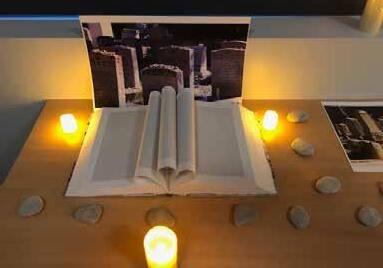
The Charlotte Jewish News - April 2023 - Page 12
Athena Strickland at their B’nei Mitzvah
Stan Greenspon Holocaust and Social Justice Educat ion Center
Part of a display from the “A Somber Walk” project at Providence Day School
(Continued from page 9)
Celebrating our Community’s Legacy Donors
Foundation for the Charlotte Jewish Community thanks the individuals and families who have created 949 unique Jewish legacies to ensure the future of our Jewish community. These generous donors have collectively committed to more than $40.6 million through bequests, individual retirement and life
Anonymous (24)
Ann and Bob Abel
Janet S. Abel
Bernie and Teri Ackerman
Susan and Benjamin Aizenman
Yvonne Amato
Bernard and Leah G. Amler
Anthony and Brooke Amo
Bette Andrews
Alan and Madeline Aron
Wilma and Gerson (OBM) Asrael
Judy and Stan August
Amy Augustine
Jill and Craig Balick
Michele (OBM) and Harvey Barer
Gail and John Baron
Michael and Meredith Baumstein
Sanford and Lois Benjamin
Sharri and Peter Benjamin
Raymond Monty Bennett
Benjamin and Elizabeth Benson
Arlene and Milt Berkman
Robert Berman
Philip M. Berman
Brian and Glenda Bernhardt
Andrew Bernstein
Bobbi and Don Bernstein
Cary Bernstein and Alan Kronovet
Mark (OBM) and Louise (OBM)
Bernstein
Nancy and Sam Bernstein
Susan P. Bessey
Lillian (OBM) and Irving Bienstock
Lee and Jeffrey Bierer
Martin Birnbaum and Roslyn Greenspon
Peter Martin Blair
Barry and Lisa Blau
Herman (OBM) and Anita (OBM)
Blumenthal
Jill Blumenthal
Lee and Alan Blumenthal
Philip Blumenthal
Gary and Susan Bogarad
Edward Bograd
Roberta L. Bograd
Michael and Lenora Borchardt
David and Bonnie Bornstein
Bunny Bramson
Marian (OBM) and Walter Brawer
Justin Bregman and Diana Warth
Bregman
Barry H. Brodsky
Tracy and Larry Brown
Chaim and Hanah Hawkins Burke
Doris Cagle (OBM)
Bobby Cain
Sera and Marvin Callif
David and Janice Cantor
Susan E. Cernyak-Spatz (OBM)
Suly and Richard (OBM) Chenkin
Judith and Richard (OBM) Coates
Michael and Karen Coates-Traynor
Jena Coen
Aharon and Mintza Leah Cohen
Brian and Sonia Cohen
Paige and Mark Cohen
Wendy Williams Cohen (OBM)
Rabbi Shlomo and Yiska Cohen
Steven and Olivia Cohen
David Cohen
Jennifer and Jonathan Collman
Denise (OBM) and Bob Cooper
Andrea and George Cronson
Michael and Beth Cupp
Irv and Deedee Gould Cygler
Gene and Deedee Daumit
Andrea and Jeremy Davids
Arlene and Gary (OBM) Davis
Jill and Michael Dinerman
Dana and Jeffrey Ditesheim
Ellen (OBM) and Dan (OBM) Dubin
Marcy and Fred Dumas
Paul and Lynn Edelstein
Steven and Ellen Block Englehardt
David and Aleen Epstein
Barry and Mary Ellen Ezarsky
Rabbi Murray and Barbara Ezring
Henry (OBM) and Margaret (OBM)
Federlin
Alec and Nancy Felder
Roni and Glenn Fishkin
Dorlisa and Peter Flur
Adam Foodman
Melvin W. and Caren N. Frank
Robert and Beverly Friedman
Jacob M. and Hunter K. Fuerstman
Caren and Charles Gale
Albert and Phyllis Garten
Loren Leah Gelber (OBM)
Goodlyn Gelper
Y’honatan E. Gimbel
Stephanie and David Gitlin
Nancy Glass
Rhoda (OBM) and Aaron (OBM)
Gleiberman
Alan (OBM) and Ruth Goldberg
Ken and Tammy Golder
Sandra Goldman
Mark and Linda Goldsmith
Margi L. Goldstein
Meg D. Goldstein and Matthew Luftglass
Milton and Arlene Goldstein
Shelton and Ellen Goldstein
Joy and Neal Golub
Jennifer Cohen Golynsky and Leon
Golynsky
Barbara and David (OBM) Goodman
Brett H Goodman
Michelle Goodman
Scott and Rebecca Goodman
Allen (OBM) and Ethel Gordon
Bill and Patty (OBM) Gorelick
Jeff and Bari Gorelick
Marcelle Gorelick
Rael and Gabi Gorelick
Shelton (OBM) and Carol (OBM) Gorelick
Stacy and Todd Gorelick
Alan and Merle Gottheim
Fay (OBM) and Dan (OBM) Green
Karen Greenblatt
Keith E. Greenspon
Stanley Greenspon
Jodi and Josh Greenwald
Bill and Gloria Grifenhagen
Yossi and Mariashi Groner
Diedre and Clay Grubb
Elizabeth Ren and Michael Grunwald
Anna Gunsher
Bonnie F. Hart
Stephanie Brodsky Haynes
Richard (OBM) and Barbara Herd
Ted (OBM) and M.E. Hessberg
Steven and Sharon Hockfield
Vicki J. Hopkins
Joel Horwich
Andrew and Christy Horwitz
Jake and Betsy House
Jonathan M. Howard
Jodie, Michael, Elyssa and Alex Iagnocco
Robert (OBM) and Linda Isser
insurance plans, without affecting current disposable income or lifestyles. Already, local Jewish organizations have received over $2.6 million in realized legacy gifts. If you are interested in learning how to create your own Jewish legacy, please contact your favorite Jewish agency, Phil Warshauer or Abby Kleber.
Donald and Susan Jacobs
David Jacobson
Jake Jacobson
Robert and Leola (OBM) Jacobson
Sol (OBM) and Janet (OBM) Jaffa
Florence Kaufman Jaffa
Brian and Raizel Kahn
Alyson Kalik
Ronald and Mary-Margaret Kantor
Morton and Mary Kaplan
Dana and Andrew Kapustin
Barbara and Alan Katz
Kenneth & Kimberly Katz and Family
Robert and Nancy Kipnis
Joan Kirschner
Paula and Richard Klein
Robert P. and Moira Quinn Klein
Lorrie and Barry Klemons and Family
Karen Knoble and Barry Bobrow
Elise and Jaime Kosofsky
Lee and Sheila (OBM) Kritzer
Sara and Jonathan Kulbersh
David A. Lash
Jack (OBM) and Carole Lash
Gladys Lavitan (OBM)
Judy and Eric Laxer
Dale Lederer
Janet and David Lefkowitz
Alison and Mark Lerner
Eric and Susan Lerner
Gary and Donna Lerner
Harry and Gloria Lerner
Barbara and Jerry Levin
Binyamin and Ilana Levin
David and Brenda Levin and Family
Donna (OBM) and Norman Levin and
Family
Ross C. Levin
Alvin (OBM) and Helene Levine
Elissa and Joshua Levine
Louis A. Sinkoe and H. Kevin Levine
Howard Levine and Julie Lerner Levine
Leon and Sandra Levine
Miles and Debra Levine
Sol (OBM) Levine
Ellis Levinson (OBM)
Eric Levinson
Gary and Janie Levinson
Holly and Hal Levinson
Jack and Alison Levinson
Lisa Strause Levinson

Sam and Linda Levy
Laura and Marc Lewin
Robert (OBM) and Inta Lidz
Andrew and Gwendolyn Lindner
Marshall (OBM) and Faylinda Lindner
Jill and Marc Lipson
Don and Ellice Liss
Ron and Frances Liss
Michael and Sue Littauer
Adina and Josh Loewensteiner
Annie and Harrison Lord
Isaac (OBM) and Sonia (OBM) Luski
Rose (OBM) and Abe (OBM) Luski
Audrey Madans (OBM)
Karen and Gary Maniloff
Leslie and Michael Marsicano
Linda McLendon
Peggy McManus
Michael Meiselman (OBM)
The Meiselman Family
Elise Menaker
Pamela and Scott Menaker
Polly and Steve Menaker
Laura Milgrim
Fred and Joy Miller
Risa and David Miller
Staci and Darren Mond
Jennifer Monroe
Elsa and Martin Multer
Margaret Musa
Paula Sigal Musler
Bruce and Candace Naliboff
Leah M. Naliboff
Elizabeth and Jeremy Naman
Edwin and Jill Newman
Larry and Carole Nicholson
Michael and Judith Norman
Eva Nove
Gwen and Paul Orland
Victor (OBM) and Evelyn (OBM) Osborne
Andrew T. Osborne
Gale Osborne
Richard J. Osborne
Nadine and Arthur Oudmayer
Marcelle and Allan Oxman
Wendy and Lee Pake
Brenda and Floyd Patten
Cyndee Patterson
Harriet and Mark Perlin
Diggie and Lee Pesakoff
Wendy and Adam Petricoff
Stephen and Laura Philipson
Rachel and Darren Pierce
Debora and Ed (OBM) Pizer
Milton and Gene Ruth Poler
Larry and Dale Polsky
William and Debra Porter
Baila (OBM) and John (OBM) Pransky
Jason and Casey Pressberg
Michael and Cheryl Rabinowtiz
Dena and Michael Raffler
Karen and David Ransenberg
Steven and Melissa Raphael
Alan and Jan Raznick
Rick Glaser and Ellen Reich
Tonda and Mitchell Rifkin
Julie and Scott Rizzo
Albert Rogat
Wendy (OBM) and Sandy Rose
Andrew and Jennifer Rosen
Eliot and Shirley Rosen
Estelle and Murray (OBM) Rosen
Liam G. Stokes and Betsy Rosen
Wendy and Frank Rosen
Regina Rosenberg and Bruce Bishop
Cheen
Karen and David Rosenthal Family
Anita Rounds
Ilya and Chantal Rubin
Dan and Toby Ruda
Leon Rutman
Mark Sahn (OBM)
Fern T. Sanderson
Neil (OBM) and Carol Sandler
Susan and Bernie Sandler
Allen Sherman and Suzy Savod
Gerry and Barbara Schapiro
Michael Scharf
Marty and Elaine Schefflin
Renee and Philip Schreibman
Mike (OBM) and Sara Schreibman
Chris and Jon Schuller
Larry Schwartz
Melvin Segal
Albert (OBM) and Dorothy (OBM) Segal
Howard and Andrea Seidler
Linda C. Seigel
Tammy Seigel and Adam Bernstein
Amy Jill Seitlin
Bobby and Stacey Selkin
Daisy Shapiro-Rieke / Julie Irma Shapiro
Morey and Lynne Sheffer
Barry M. Sherbal
Lisa and Fred (OBM) Shporer
Raenea Siegel
Marc and Mattye Silverman
Ruth Silverman (OBM)
Gary and Maxine (OBM) Silverstein
Jonathan and Stephanie Simon
Marcia and Paul Simon
Anne and Mike Sinsheimer
Lori and Eric Sklut
Leonard (OBM) and Ann (OBM) Slesinger
Ira and Stacey Slomka
Ruth Ann and Tom Smith
Steve and Emily Snyder
Marcia Solomon
Phil Solomon
Harry and Laurie Sparks
Bob (OBM) and Carol (OBM) Speizman
Sheldon and Randy Sperling
Sophie Spolender (OBM)
Elizabeth Hope Star
Philip and Lauren Stark
Gary and Stephanie Starr
Stephanie and Steven Starr
Robert and Maxine Stein
Norman Steinberger (OBM)
Joseph and Renee Steiner
Ken and Marcia Stern
Sam (OBM) and Alene (OBM) Strause
Anita Strauss-LaRowe and Bruce LaRowe
Irving and Sylvia Swartz
Emery and Jacqueline Szabo
Mike and Andie Taylor
Beverly Tirsun
Cheri and Marc Titlebaum
Patty Torcellini
Stephanie Townsend
Natalie and Mike (OBM) Tunney
Eleanor and Morton (OBM) Turk
Jeffrey and Karen Turk
Harold (OBM) and Cynthia Turtletaub
Amy and Ross Udoff
Robert and Ellie Valenstein
Fred and Katie Valfer
David and Debra Van Glish
Judie and Michael Van Glish
Amy and Mark Vitner
Liz Wahls
Maor and Amy Waizman
Phil and Beth Warshauer
Janice and Ronald Weiner
Alexander Weinstein
Mark Weintraub
Anne and Michael Weiss
Evan and Debby Weiss
Susan and Robert Weiss
Mort Wise
Eric and Joanna Wisotsky
Marc and Kim Wojnowich
Mary (OBM) and Simon (OBM) Wojnowich
Nora Wolf
Robert and Sandra Wolf
Kim (OBM) and Sue Worrel
Michael and Nancy Yaffe
Scott M. and Lisa Braverman Yarbrough
Brian Yesowitch Family
Robert (OBM) and Anne Yudell
Marisa and Joe Zeibert
Herman and Barbara Ziegler
Emily and Samuel Zimmern
William and Angela Zimmern
Mildred Zuckerman (OBM)
This list is not all inclusive. We know there are individuals and families who have created Jewish legacies but have not chosen to make their plans public. We thank them as well.
The Charlotte Jewish News - April 2023 - Page 13
• www.charlottejewishfoundation.org
704.973.4544
Treatment and Prevention of Child Abuse: JFS Takes a Collaborative Approach
By Rachel Green, JFS Director of Programs and Services
Jewish tradition places great value on the lives and welfare of children. Jewish Family Services (JFS) honors this value by collaborating with partners, both on and off Shalom Park, to raise awareness about child abuse prevention and treatment. In the past year, JFS has strengthened these partnerships and grown its capacity to serve children and families who have been affected by abuse.
Jewish Family Services has focused on therapist training and building expertise to meet the rising needs of children in our community who have experienced trauma, loss, and other difficult circumstances. Two members of the JFS clinical therapy team are completing training in a specialized therapy practice called “Trauma-Focused Cognitive Behavioral Therapy.” This specific type of therapy is an evidence-based therapy for children and adolescents that, through decades of research, has demonstrated positive results with a broad range of emotional and behavioral challenges resulting from trauma. The training program is a nationally recognized certification through the NC Child Treatment Program, Center for Child and Family Health. The program works with both the child and parent/caregiver using
a structured, short-term model of therapy. The sessions range from eight to twenty-five sessions and can include fun, interactive activities. (https://tfcbt.org/)

While therapy services address one aspect of the challenge, addressing child abuse prevention and treatment requires a multipronged approach. Collaboration is key in addressing this complex problem. JFS collaborates with Pat’s Place Child Advocacy Center to address both the prevention and treatment of child abuse and neglect. Pat’s Place, founded in 2005, has provided comprehensive investigation and treatment services to children who have experienced the most serious cases of child abuse and is also a hub of community collaboration. “Pat’s Place is modeled on the simple but powerful concept of coordination between community agencies and professionals involved in the system of child protection.” (www.patsplacecac. org)
Jewish Family Services participates in CHAT Collaborative which Pat’s Place facilitates. Cheryl Peace, CHAT Collaborative coordinator at Pat’s Place explains, “The CHAT Collaborative is designed to connect all children seen at Pat’s Place for forensic services to expedient, trauma-focused, high-quality mental health services. It is designed to foster ongoing com-
munication between community mental health providers and Pat’s Place in an effort to monitor the children’s participation and progress in therapy. It seeks to improve the quality of the trauma-focused mental health services available in the Charlotte area through supervision, networking, and training opportunities.” Cheryl also explains that, “clinicians invited to participate in the CHAT Collaborative have extensive training in specifically identified trauma-focused therapy modalities.”
In addition to addressing the treatment of child abuse, JFS takes part in the planning of Mecklenburg County Child Abuse Prevention month. A representative from JFS sits on the Mecklenburg Child Abuse Prevention Team, “a group of child-serving organizations and individuals who have joined forces to help build public awareness around the issue of child abuse awareness and prevention.” www.meck4kids.org/.
The team plans activities around Charlotte to promote awareness and prevention tips. JFS will plant the annual “Pinwheel Garden” in front of the Levine Jewish Community Center on Monday, April 3, 2023, to draw attention to this important topic.

“Shining in the sun, the pinwheel is reflective of the bright, healthy future all children deserve.”
By creating strong partnerships within the Charlotte community, Jewish Family Services is able to honor the values of car-
ing for our community’s children and tackle the complex issue of helping families who have experienced abuse or other traumas and preventing children from facing these challenges in the future.
Jewish Family Services

Volunteers & Donors February 2023
Volunteers: Jessica Alfandary, Marcia Arnholt, Mike Arnholt, Amy Baden, Daniel Benjamin, Andrew Bernstein, Suzy Catenazzo, Dan Coblenz, Jonathan Collman, Andrea Cronson, Julie Dermack, Joni Deutsch, Sheryl Effren, Terri Fishman, Rachel Friedman, Meredith Gartner, Marty Goldfarb, Richard Goldsmith, Jennifer Golynsky, Gail Halverson, Rebecca Hockfield, Oren Hubara, Tara Hubara, Dawn Hubbs, Bob Jacobson, Mike Kaplan, Jennifer Koss, Elliot and Stephanie Kreitman, Etti Krausse, Marcia Lampert, Eric Lerner, Kim Levy, Adina Loewensteiner, Matt Luftglass, Gene Marx, Frada Mozenter, Barbara Rein, Nina Rose, Marilyn Schuster, Louis Sinkoe, Harry Sparks, Lorin Stiefel, Steve Teich, Gail Vogel, Amalia Warshenbrot, Nancy Wielunski, Amanda
Zaidman
Live Laugh Give Volunteers Rachel Friedman, Rachel Peterson, Jodi Michel, Andrew Bernstein, Adina Loewensteiner
Hadassah Meal Preppies: Karen Futtersak, June Hirschmann, Judy Kaufmann, Penny Krieger, Andrea McCleary, Helene Schilian, Marcia Stern, Amy Strasser, Elissa Vining, Kyle Vining
Food Drives: Temple Beth El Religious School 3rd grade
Food Pantry Donations: To our generous community: Thank you for continuing to donate to the food pantry. We continue to collect donations every other Wednesday at the portico entrance to the Blumenthal Center for Jewish Education Building at Shalom Park.
Jewish Family Services Tributes
February 2023
For a speedy recovery of Michael Goldberg
Ruth Goldberg
Happy Birthday Florence
Jaffa
Paul and Lynn Edelstein
In Honor of Rabbi Lexi
Erdheim’s Installation
Robyn, Henry, and Helen Ben-
jamin
In Honor of David Gleiberman’s Bar Mitzvah Anniversary
Lawrence and Sheila Margolis
In Memory of Jean Finkelstein
Robin Finkelstein
In Memory of Jack Poznansky
Francine Poznansky
In Memory of Karen Greenspan
David and Suzy Catenazzo
Lisa Richman and Family
In Memory of Marsha Leifer
Paul and Lynn Edelstein
In Memory of Dorothy Cohn Luber
Michael and Carol Phillips
In Memory of Jack Poznansky
Francine Poznansky
In Memory of Merwin Rosen
Bob and Mary Rothkopf
In Memory of Rabbi Marc Wilson
Gary Silverstein
The Charlotte Jewish News - April 2023 - Page 14
Three Years Since COVID Began, Mental Health Resources Becoming Prevalent in the Workplace
By Howard Olshansky, JFS Executive Director
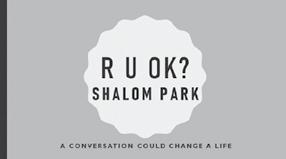








It has been three years since the beginning of the pandemic and the impact on our mental health has repeatedly been reported. The statistics all tell us cases of anxiety, depression and suicide are up. Our kids are struggling from having been out of school for such long periods of time. Requests for mental health services have skyrocketed, and it is pretty common that mental health clinics have a waitlist for services.
Though report after report has showed the mental health impact on our personal lives, what hasn’t been frequently reported is the prevalence of mental health support and services in the workplace. Both employees and employers have recognized that with more individuals struggling with a mental health issue its impact will show up in performance and productivity. According to the World Health Organization (WHO) depression and anxiety cost the global economy approximately $1 trillion each year, driven predominantly by lost productivity. The result is both employee demand and employer resources for mental health support.
Lyra, a provider of mental health services in the workplace, recently conducted a survey of 1,000+ workers. The survey indicated that over 84% of respondents indicated that “robust and comprehensive” mental health benefits were an important factor when con-
sidering a new job. And with unemployment at a record low, employers are beginning to take notice. The report also indicated that there was a 15% increase in workplace managers being concerned that employees were having suicidal thoughts and a 9% increase in concern about self-harm with their employee pool.
WHO recently called on businesses across the globe to provide work that “simultaneously prevents workers from experiencing excessive stress and mental health risks; protects and promotes workers’ mental health and well-being; and supports people to fully and effectively participate in the workforce, free from stigma, discrimination or abuse.” And employers are responding. According to a subsequent study by Lyra, 81% of employee benefits leaders surveyed believe it is an employer’s responsibility to prevent work-related mental health problems from developing among employees.
So, what are these workplace mental health supports? The following are some trends in how corporations are responding to the mental health needs of employees.

Offering flexibility in schedule and work hours
For many workers having autonomy over when, where, and how they work doesn’t just make them happier, it also makes them more productive. Offering flexible hours and letting employees set their sched-
ule will remain top of mind for employers in order to attract and retain talent in 2023.

Integrating mental health into their workplace culture
Offering personal mental health days, companywide mental health days off, policies discouraging work email or messaging after hours and on weekends, and a practice of encouraging employees to take breaks throughout the workday.



Offering a four-day workweek option























Offering the option of a fourday workweek is likely to become much more common in



















the year ahead. 45 % of benefits leaders say their company already offers this perk, while 43% say they’re considering offering it in 2023.
Supporting employees’ families
In March of 2022, the American Academy of Pediatrics declared a national emergency in children’s and teens’ mental health, noting the significant setbacks kids and teens have faced since the pandemic started. It’s a burden that weighs on the entire family. Mental health support for the entire family has become a more urgent priority for companies in the past
year, resulting in the provision of more personalized mental health support for parents and caregivers. This growing investment may also be driven by more awareness than in the past of how children’s mental health issues affect parents’ work attendance and productivity.
Focusing on equipping managers to help employees thrive


In 2023, expect to see employers offer more support and mental health-related training to managers who find themselves on the front lines of workforce mental health. Not seeing the trend in workplace mental health supports at your company? Talk to your HR or Administrative Departments within your company about how mental health supports can impact their bottom line.
Coins









The Charlotte Jewish News - April 2023 - Page 15
SAVE THE DATE Jewish Federation of Greater Charlotte’s Annual Meeting May 5 | 7:00 pm Sam Lerner Center for Cultural Arts


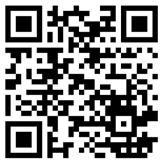


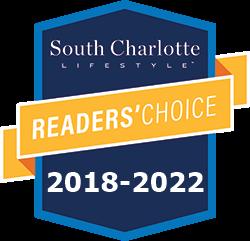
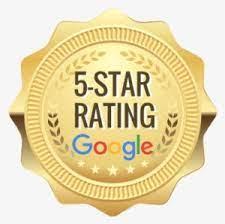


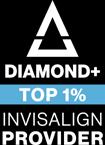
The Charlotte Jewish News - April 2023 - Page 16
and Invisalign
REVIEWS 650
Braces
for ages 6-86
2017-2023
IDF Appeals For More Volunteers

 By Mindy Franklin
By Mindy Franklin
We are all saddened by the news that Israeli civilians are once again being targeted by Arab terrorists. Whether the victims are Israelis leaving synagogue worship or simply a father and son going about their day, the pictures emanating from Israel in the past weeks reveal a populace on edge as funerals mourn the dead.
The Israeli government has responded to this spike in terrorist activity by raising Israel to its highest violence alert, reminiscent of the Second Intifada 20 years ago.
The IDF has called up reservists and activated more military units to patrol the streets and countryside against terrorism. As a result, a large number of IDF bases have newly requested help in the form of more overseas volunteers. They need logistics assistance, such as working in warehouses to pack military supplies, medicines, and food rations.
Volunteers For Israel (VFI) is a national organization that sends Americans to volunteer on Israeli military bases for one, two, or three weeks at a time. VFI recruits, processes, and prepares volunteers to work in a non-military capacity on IDF bases. VFI partners with an Israeli organization, Sar-El, which has brought over 160,000 volunteers from all over the world to volunteer on IDF bases.
Over the history of the program, 32 members of the Charlotte community have volunteered to work on IDF bases. Most recently, Rabbi Stuart Gershon returned from volunteering in February. He says, “Of all the things I’ve done to support Israel, Volunteers For Israel was the most meaningful. We accomplished important logistical supply work for the IDF. I was incredibly inspired by the young Israeli soldiers, men, and women, whom I got to know. They expressed their appreciation for us too. I made
friends with fellow volunteers, both Jews, and non-Jews from all over the world. We bonded together through our love for Israel. I will certainly volunteer again.”


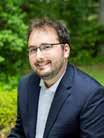
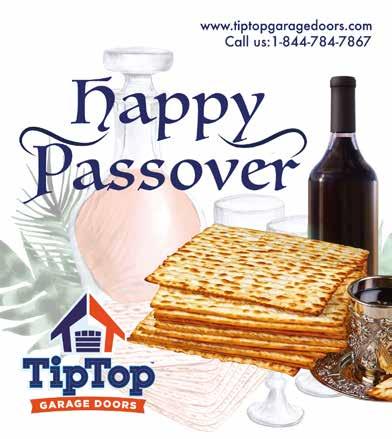
“This is a unique volunteer opportunity to show your support for Israel”, said VFI president, Mark Werner, who has volunteered 19 times. “Our volunteers live in the barracks with the soldiers, eat in the mess halls with the soldiers, and work side-by-side with them. And they build new friendships with like-minded volunteers from around the world, creating unforgettable experiences and building support for Israel”.
No military experience is required to volunteer. The lower age limit is 17 (16 if accompanied by a guardian), and there is no upper age limit. “I’ve met our oldest volunteer. At 94, she was inspiring,” said Werner. He adds: “Many people volunteer with their children or even their
grandchildren. And the gender breakdown between men and women is roughly 50/50.”
While we watch safely on the sidelines as the violence spirals in Israel, there is something concrete we can do to show our support for Israel in these difficult times. Israel needs us now to step up and volunteer on IDF bases more than ever. Please consider volunteering one, two, or three weeks of your time and effort through Volunteers For Israel (vfi-usa.org). To speak to a VFI representative, please email Johnny Cahn at mid-atlantic@ vfi-usa.org or call him at (240) 462-3456.
You will get back more than you give. And the experience will be life changing.

The Charlotte Jewish News - April 2023 - Page 17 Paul Mattos Mortgage Banker NMLS #2339069, Licensed in NC, SC 980-221-4959 PaulMattos@AtlanticBay.com www.CarolinaHomeFinancing.com PaulMattos.com Your Trusted Local Lender Get the Care You Deserve from
A team of four American volunteers on Israel’s medical supply base

The Charlotte Jewish News - April 2023 - Page 18 Chag Pesach Sameach! Find the perfect dishes for your family’s holiday feast at publix.com/passover
From the Bimah
The Absence of the Fifth Child at the Seder
By Rabbi Yossi Groner, Congregation Ohr HaTorah



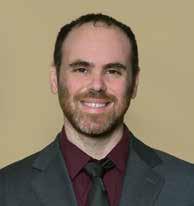
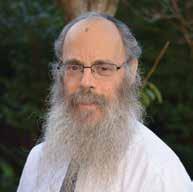
The number four figures prominently at the Passover Seder. This is evident with the four cups of wine, the four questions asked at the beginning of the seder, and the four sons (children) participating in the seder. Each of these four children represents a unique characteristic that is found in an inquisitive and engaged child.
One of the reasons why the number four is significant is because G-d conveyed the news of the imminent liberation of the Children of Israel from Egyptian bondage in four expressions of redemption. These four expressions of redemption, promised by G-d to the children of Israel through Moses, are: “I will take you out from the suffering of Egypt and I will deliver you from their bondage, I will redeem you with an outstretched arm and with great judgments, I will take you to Myself as a nation, and I will be to you a G-d...” (Exodus 6:6-7).
Each of these four terms expresses a deeper level of freedom and emancipation and each of these terms is celebrated at the seder table with the rituals of the questions, the wine, and the four kinds of children.
One commonality between
The Four Answers
the four questions aren’t four questions at all. Rather they are one question: “Why is this night different from all other nights?” and four answers. The “four answers” doesn’t quite have that special ring to it, does it? Yet as a questioning people, I hope we begin to ask ourselves the question of why we continue to call these the “four questions.” Nonetheless, I will refer to them as “questions” and “answers” interchangeably.
the four children is that they are all attending the seder. And so it has been for thousands of years; the Passover Seder was a family, multi-generational event that brought people together no matter if they were of differing opinions or levels of observance. Indeed, many family seders are remembered for the vibrant dialogue held between participants or challenges brought by younger people. Yet, for better or worse, they all connected and felt that bond strengthened each year at the seder.
Our generation has introduced a new phenomenon — the fifth child. This is the child that is not present at the seder, either because of their lack of knowledge or an inherent apathy to Judaism, which leads to disconnection. The fifth child could be the one that wanders off to the mountains of India seeking spir-
ituality, which he does not realize is sourced in Judaism. Or the one who just shuts off the “soul switch” in his life and becomes obsessed with materialism to the detriment of his spiritual Jewish side. Others involve themselves in social issues which are common to all people, which is a noble undertaking, yet he may use it as a way to suppress the uniqueness of our Jewish Divine mission.
It is the challenge of our generation to reach out to those who are termed as the fifth child and bring them to the seder table with love and compassion. Our duty is to ignite the Jewish soul within these children and help them reconnect with their rich Jewish heritage in a viable and meaningful way. This challenge needs to be met and can only succeed with unconventional means. The principles of Judaism cannot
be replaced, but the method of reaching out needs to be out of the box.
Back in 1974, when the Lubavitcher Rebbe announced his famous five-point mitzvah campaign, Yeshivah students in New York City rented trucks that were converted into mitzvah mobiles and carried the message to the streets of Manhattan. With Jewish music blaring, they traveled down Broadway and attracted hundreds of people to actively engage in this campaign just in one day! Multiply that by thousands in the summer of ’74. Let us activate that energy this Passover and we will succeed.
By Rabbi David Jaffe, Temple Kol Tikvah

Passover is a time for remembering. It is a time for food, family, fun, reclining, and of course — giant crackers. When we engage in the Passover Seder and the traditions of the holiday, we feel as if we are connecting to our past. We remember all the previous Passover Seders in our life and imagine our ancestors doing the same. The problem is that our memory can play tricks on us and when we dive into the history of Passover we learn that, in fact, the Passover Seder has changed, and always changed throughout history. Let us use the part of the seder that we call the “four questions” as a brief foray into the ever-changing history of the seder.
I want to start by saying that
In the Torah, there is no seder, much less the four questions. We do find two references of a child asking one question, a simple, “What does this mean?”(Ex. 12:26 and Ex. 13:14). This certainly seems to be the catalyst for children asking questions at a Passover Seder, but still, we will find no Passover Seder or four questions in the Torah.
The seder itself was a massive innovation and change that the ancient rabbis created. When we look at their original idea of a Passover Seder found in the Mishnah (codified in approximately 200 CE), we do find traces of what we might call the “original” four questions. After the second cup of wine, “… the son asks his father. And if the son does not have the intelligence to ask questions on his own, his
father teaches him. Why is this night different from all other nights? As on all other nights, we eat leavened bread and matza; on this night all our bread is matza. On all other nights, we eat other vegetables; on this night only bitter herbs. On all other nights, we eat roasted, stewed, or cooked meat, but on this night all the meat is roasted. On all other nights, we dip once; however, on this night we dip twice. And according to the intelligence and the ability of the son, his father teaches him about the Exodus.” (Pesachim 10:4) This passage here contains our “original” four questions. You’ll notice that they are quite different from today’s four questions. The son (or children) are able to ask any questions they please. Only if they are not able to ask any questions on their own are the “original” four questions asked. You will also notice that two of the questions are different, as we no longer mention roasted, stewed, or cooked meat and we add the words “don’t even” before the words “dip once.” The last difference is that it is the father (or seder leader) not the child who is reciting these questions. This is quite different from our four questions of today!
If we jump forward a thou -
sand years, we can take a look at Maimonides, the celebrated 12th-century rabbi, Jewish philosopher, and thinker, take on the four questions. Maimonides states that it is the obligation of the seder leader to do different things that are perceived as strange in order to “motivate the child to ask the question.” (Mishneh Torah 7:3) Once the children ask about why this night is different, the seder leader repeats their question asking, “Why is this night different from all other nights?” Maimonides then lists five answers, not four, and adds our answer about reclining which was absent from the “original” four questions. He does mention we no longer say the answer regarding meat, yet he still mentions it! (Mishneh Torah 8:4-5) For Maimonides’ four questions, children must be the catalyst and ask an opening question and then the seder leader repeats the question and answers them.
Today it has become customary that the youngest at the table will ask the four questions, not because they are motivated to do so, but because that is just what we do. We completely omit the question about roasted meat and the seder leader takes no part in explaining the story. This is not the place to ask why these chang-
es occurred. Instead, let us learn that these changes did occur. The Passover Seder has changed over time. We haven’t “always done it that way.” The seder has changed and will change, so let us change it intentionally for the better. The Passover Seder has structure, yes, but it is not a script to be read through and be on our merry way. The Passover Seder was intended to be a time of engaging with one of our most natural human states: curiosity. This Passover, I invite you all to be curious. Ask each other questions. There is no need to limit ourselves to the four questions, that many of us know. Why not ask ourselves one question, “What is different about this night from all other nights?” If we answer this in a spontaneous, heartfelt, and sincere manner we will not only be engaging in the seder the way our ancestors imagined it, but we will also be creating meaning in each and every Passover Seder to come. Chag Pesach Sameach!
The Charlotte Jewish News - April 2023 - Page 19
From the Bimah
Finding Inspiration in Passover: Resistance in the Face of War in Ukraine
By Rabbi Asher Knight, Temple Beth El

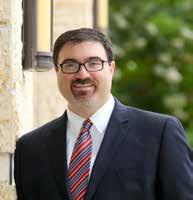
More than a year has passed since Russia invaded Ukraine, resulting in a dire humanitarian crisis, displacement of millions of people, and tens of thousands of deaths. This war has left a lasting toll from the violence and destruction brought upon by Putin.
Shmuel Ha-Naggid, a Jewish statesman, poet, and military leader from the 11th century
once wrote that war may seem enticing at the beginning, but it ultimately brings tears and sadness. Putin’s flirtation with war in Ukraine, including the annexation of Crimea in 2014, has proven Shmuel Ha-Naggid’s warning correct. Even though he flirted with and sold the war as a righteous and beautiful thing for Russia, the result has been anything but glorious. Putin and his forces have not only caused immense destruction and human misery, but their actions have also led to painful consequences for Russia itself, including the deaths of nearly 200,000 soldiers, a weakened economy, a tarnished international reputation, a steep rise in Russian nationalism and fascism, and an even further crackdown on dissent. Tears and sadness.
As we prepare for the second Passover during this crisis, the

saltwater on our tables should remind us of the tears and sadness brought by tyrannical regimes. The story of our liberation can provide inspiration as we watch Ukranians fight for their own freedom. And we can take seriously the Passover Haggadah’s poignant teaching that we should view ourselves as if we had personally been liberated from slavery in Egypt. Putin’s Pharaoh-like reign of terror should serve as a sobering reminder that freedom is never guaranteed.
Rabbi Abraham Joshua Heschel, a prominent 20th-century theologian and civil rights activist, believed that prayer should be subversive and seek to overthrow the forces of oppression. The Haggadah reminds us that we are responsible for our own destiny and that it is up to us to take control of it. We will celebrate Passover in the relative
We can take seriously the Passover Haggadah’s poignant teaching that we should view ourselves as if we had personally been liberated from slavery in Egypt. Putin’s Pharaoh-like reign of terror should serve as a sobering reminder that freedom is never guaranteed.
comfort of our own homes or those of our family and friends. As we bear witness to the horrors of war and the inspirational stories of people fighting for their freedom, please consider supporting this fight for freedom. Making a donation to the International Rescue Committee, UN Crisis Relief, or World Central Kitchen can help support Ukraine’s freedom effort by providing medical care, clean water, sanitation, or education for dis-
placed people. Take time during this Passover season to talk about the war, examine some charities and organizations that are helping Ukrainians, and listen to the message of the Haggadah calling out to help liberate a subjugated country. Know that your support can help the freedom effort and distribute nourishing food and first aid.
As we celebrate Passover this year, we can not only remember the lessons of the past, but draw strength from our story as we work to overthrow oppressive forces and create a future of peace and freedom for all.
Asking Questions Might Lead to a Nobel Prize
your neighborhood?” Rabi answered, ”My mother made me a scientist without ever intending it. Every other Jewish mother in Brooklyn would ask her child after school: ‘So? Did you learn anything today?’ But not my mother. She always asked me a different question. ‘Izzy,’ she would say, ‘Did you ask a good question today?’ That difference — asking good questions — made me become a scientist!”
An enslaved person can’t ask questions ... However, a free person can ask questions ... The central theme of encouraging questions is to show we are free.
year, even mundane questions such as, “What interesting thing happened at school or work this week?”. Welcome questions, even if they make you feel uncomfortable.
you come from.
By Rabbi Chonach Oppenheim, Charlotte Torah Center



Isidor Rabi was a Nobel Prize laureate physicist who was recognized for his discovery of nuclear magnetic resonance, used throughout the world in MRI machines. He was born into a religious Jewish family in Hungary and came to the U.S. as a child.
A letter to The New York Times in 1988, published shortly after he died, tells an amazing story. The author recalls that Rabi was once asked, “Why did you become a scientist, rather than a doctor or lawyer or businessman, like the other immigrant kids in
Throughout the seder on Passover, there is an emphasis on asking questions. We have the Mah Nishtana. The four sons ask questions and, in general, we are supposed to do things all night long to encourage and cause questions to be asked. Why specifically this night, at Leil HaSeder, is there such an emphasis on asking questions?
The Passover Seder is our annual opportunity to celebrate our freedom. An enslaved person can’t ask questions. If the master says: paint this wall or make me pizza, the slave does
it. However, a free person can ask questions. “Why this wall? We did it last year! Maybe this wall, which has cracks, would be better. Why pizza? Your doctor said you should watch what you eat, maybe quinoa and cranberries would be better. The central theme of encouraging questions is to show we are free. Here are four practical ways to encourage questions at the seder:
1) Encourage children (and adults) to ask questions at the seder — even if you need to be experiential such as putting on sneakers before the seder so the kids will ask why, and you will tell them something corny like we are getting ready to run out of Egypt.
2) Encourage your children (including adult children) to ask questions the rest of the
3) Encourage children to ask parents and grandparents about their life, about growing up, what it was like when they went to school, what was their seder like, do they remember when Israel became a State?, etc. As Britain’s former chief rabbi, Lord Dr. Jonathan Sacks observed, “We underestimate how much our children want to hear from us the stories that give sense and purpose to our lives, and will one day give them strength.” (From Optimism to Hope) Our past is probably much more interesting to our children than we think it is. The seder shouldn’t be the only opportunity we take to share our family narrative. Encourage your children, parents, grandparents, and even yourself, to talk about your family’s past on a regular basis. Knowing where you are now is directly related to where
4) Finally, we should encourage everyone to ask G-d for true freedom. Whether it’s fear, envy, internal anger, or the litany of unwanted character traits, we don’t feel free if we have emotional baggage. We ask for peace of mind, because that’s required for a meaningful life. Money can’t buy love or happiness, but peace of mind is the foundation needed to get some.
This is the importance of asking questions, whether at the Passover seder or year-round. Hopefully, in doing so, we will not only transmit the story of our heritage, but raise the next generation to be seekers, like the wise son — maybe even the next Nobel laureate.
The Charlotte Jewish News - April 2023 - Page 20
From the Bimah
Exodus as a Birth Story
But it also means they can almost never have a normal cake nor go out to celebrate because of the seder or the food restrictions. Reflecting each year on our twins’ birth reminds me that Passover itself is a birth story. The Book of Exodus starts off by saying: “The Israelites were groaning under the bondage and cried out; and their cry for help from the bondage rose up to God.”
By Rachel Smookler, The Ruach
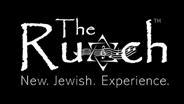
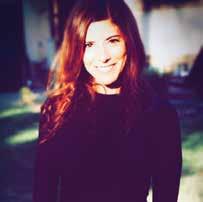
My twins, Talia and Zachariah, were born during Passover. Thankfully we were living in New York City at the time, and I was able to receive food that was kosher l’Pesach while at Lenox Hill Hospital. As joyous an event as it was for my husband and me and both of our families, it means that more than half of the time, the twins’ birthday falls during Passover. For me, it has been a blessing, as they have frequently been home with us for the seders.
To any of you who have experienced or witnessed a woman going into labor, this quote describes the beginnings of labor quite well and the future birth of the Israelite Nation. When I heard about the story of the Exodus from Egypt as a symbolic birth story for the first time in rabbinic school, my mind was blown. Of course, adding to the birthing theme are all of the bumps in the road, the “contractions” the Israelites experienced as Pharaoh and the taskmasters increased their hard labor. This is when the midwives are brought
Reflecting each year on our twins’ birth reminds me that Passover itself is a birth story. The Book of Exodus starts off by saying: “The Israelites were groaning under the bondage and cried out; and their cry for help from the bondage rose up to God.” To any of you who have experienced or witnessed a woman going into labor, this quote describes the beginnings of labor quite well and the future birth of the Israelite Nation.
in. All of the plagues are definitely reminiscent of what we feel when we are physically going through labor, as the baby turns and gets ready to break free from its confinement. The final symbolic moment that most closely symbolizes birth is when we read in the Torah about the Israelites standing before the Sea of Reeds, before the waters split apart, just as a baby in order to be born,
naturally, must travel through the birth canal after the water breaks. Finally, what is poetically offered to the Israelites once they are free? Israel, the land of milk and honey. Milk at least, we know to be a newborn’s very first taste with honey symbolizing the sweetness of freedom.
When we accept the Passover story as a birth story, it becomes easier to understand why the Israelites, once they are free from Egypt, long to go back to the safety of their home in Egypt, just as a baby may seek the comfort of the womb, being fed intravenously through the umbilical cord with no effort. Conversely, once the Israelites crossed the Sea of Reeds and were on dry land, they complained that they had no food and yearned to turn back just as infants and toddlers may whine and complain.
Like the stages of pregnancy from labor to birth, the new free Israelite nation experienced growing pains as we wandered through the wilderness. Now the
40 years of wandering through the wilderness makes sense. This Passover, our twins will turn 25. Looking at the Passover story through this lens explains why our “adult” children aren’t exactly ready to settle in the Promised Land just yet. I am in no rush to push them there and the trek through the wilderness makes me want to appreciate this transitional time, as they are becoming the people they will be.
As you prepare for Passover this year, may you reflect on this symbolic aspect of our people’s freedom story. May you have a kosher, joyous and zissen Pesach!

Following the Rules and Making Our Own
produced the final matzah from the off-limits room. Upon seeing this violation of house rules, a tug-of-war broke out between my father and this guest that ended with a very broken afikoman and a lot of crumbs. It was both serious and humorous at the same time.
By Rabbi Michael Wolk, Temple Israel
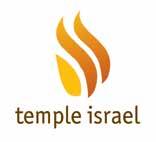

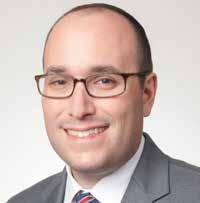
Rules and guidelines are important when you are planning your Passover Seder. When I was younger, my parents had one inviolable rule that all the children had to know. You could hide the afikoman anywhere in the house, but absolutely not in my parents’ bedroom. That room was off limits. One year a regular seder guest who was familiar with the rules, hid the afikoman in their room. When my father could not find it because he did not look in his own room, the guest went and
When the matzah crumbled however we were faced with an important question. Someone had broken a house rule and now we could not observe one of the traditional rules of the Passover Seder. How could we conclude our seder without the afikoman that the Mishnah teaches is the last thing that we should eat that night? I don’t remember if we picked up the crumbs or found another matzah to use as a substitute Afikoman, but somehow we ended the seder.
The practice of coming together to celebrate the Exodus from Egyptian slavery originates in the Torah. The first “Passover” gathering took place the night before our ancestors left Egypt.
We all start with the same set of rules when we plan our Passover Seders, but each of us has something different to add to make the seder nights special ... As you plan your seders this year think about what you want to do to remember the night that God set our ancestors free. What are the structures you put in place to make the night meaningful?
As God came down to Egypt and struck down the Egyptians the Jewish people gathered with their families and neighbors to enjoy a feast of roasted lamb with matzah and maror (bitter herbs). Even before this first Passover takes place, God instructs Moses that each year on that day Jewish people should reenact this celebratory meal and retell our story of slavery and freedom. While the Temples stood in Jerusalem, Jews continued to offer the yearly Passover sacrifice and to eat the lamb just as their ancestors had done in Egypt. The
Passover Seder as we observe it today developed after the destruction of the second temple in the year 70 when the rabbis who wrote the Mishnah and later the Talmud had to recreate a Judaism that could exist outside of the Israel without the sacrifices. Seder means “order” and the basic order for the evening is first found in the 10th chapter of the Mishnaic tractate Pesachim. The whole day is structured from mid-afternoon all the way until the end of the seder. Overtime these instructions were formalized in a book called the Haggadah that we are familiar with. We all start with the same set of rules when we plan our Passover Seders, but each of us has something different to add to make the seder nights special. Sometimes there are rules added like where you can or cannot hide the Afikoman. Sometimes there are unique traditions that differentiate your seder from your friend’s seder. In my house we conclude the seder with the
classic Echad Mi Yodea/Who Knows One, but we sing it in a fun Yiddish version. It’s an energetic tune and I love seeing the non-Yiddish speakers around the table pick up the melody as we go through the higher numbers.
As you plan your seders this year think about what you want to do to remember the night that God set our ancestors free. What are the structures you put in place to make the night meaningful? These are decisions like which Haggadah to use and what to use as maror. But also think about what you want to do that will make your seder fun and memorable.
Chag Kasher V’Sameach!
The Charlotte Jewish News - April 2023 - Page 21
Elegant living is forever in style.
Embrace luxury retirement living at the crown jewel of the Queen City The Village on Morehead, located at 727 E. Morehead, is currently under construction and anticipated to open late Fall 2023. Surrounded by classic neighborhoods – Dilworth, Myers Park, and Eastover, and just minutes from the city’s finest cultural offerings, boutique shopping, fine restaurants, and Charlotte’s top hospitals and Physician offices. The Village will offer daily programs that will keep you engaged with always something new to learn or do. It is a place to connect with others, explore interests, grow spiritually, and nurture a healthy lifestyle.


At The Village on Morehead, you will find all the ingredients needed to live up to your full potential. From fitness classes to therapeutic programs and everyday activities that define a vibrant lifestyle and provide a sense of purpose. The Village offers maintenance-free living, with chef-prepared meals, weekly housekeeping, local transportation, 24 hr. concierge, valet parking, and a host of alluring living spaces designed to cater to a sophisticated lifestyle. The Village on Morehead also provides a personalized perspective on care and wellness. If you need extra assistance with daily living activities, a wellness coordinator will arrange care in the comfort of your home with a trusted home care and therapy provider. You’ll be able to continue living in your home with the assurance of care and access to all The Village’s amenities. As the new year begins, apartments are already being reserved with a $2,500 (fully refundable) deposit to join the priority waitlist and become a Charter Club member.
Charter Club members will receive the lowest introductory pricing, be the first to select their apartment home, enjoy private exclusive parties and receive $5,000 off the one-time membership fee (limited time offer). Reserve your future home today!


The Charlotte Jewish News - April 2023 - Page 22
on Morehead
Happy Passover From Hadassah
By Aileen Greenberg-Kriner
Happy Passover! It’s time to buy the matzah and wine, make (or also buy) the chicken soup and charoset, and find the seder plate and Haggadahs. Wishing you and your loved ones a wonderful Passover and seders to treasure. As we read in the last line of the Haggadah, “Next year in Jerusalem!”
Speaking of wine…
Take a break from Passover prep and join us for our monthly Hadassah Wine & Schmooze on Tuesday April 4 at 7 p.m. at Vintner Wine Market in Arboretum Shopping Center. Stock up on wine for your seder. We meet on the first Tuesday of the month, so also mark your calendar for May 2. When you make a purchase at Vintner’s, please let them know you are a Hadassah member. Vintner’s donates a portion of their sales to our Charlotte Metro chapter.
And speaking of seders…
The Charlotte Metro Tu B’Shevat Seder, Experience
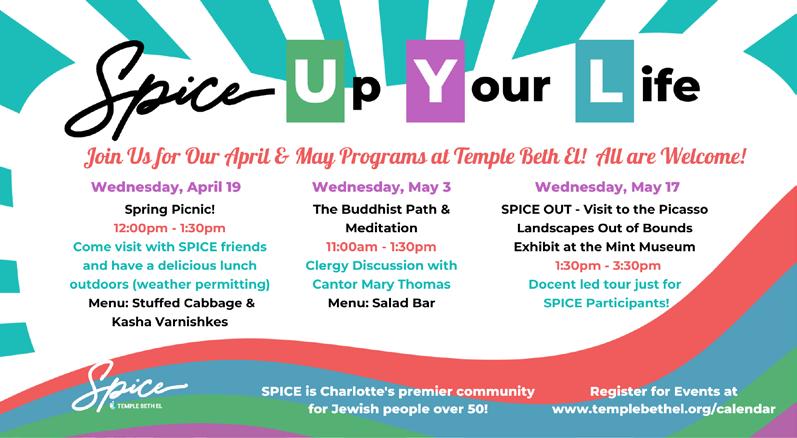
G-d, Israel, and our Hearts, which took place on February 5, was a fun and educational experience. Nineteen women attended, representing Hadassah, Temple Kol Ami, and the Treetops community’s Shalom Club. We began with a guided meditation in which we likened ourselves to trees, firmly rooted, but flexible. We took turns reading from a Haggadah depicting the seven species of foods (wheat, barley, grapes, pomegranate, olives, figs, and dates) native to Israel, and discussed the health benefits of each. As in the Passover Seder, we drank four cups of wine, starting with white, and adding small amounts of red as the wine changed from the colors of winter white to brilliant autumn red. We sampled foods containing each of the seven species, including freshly baked challah, barley salad, date nut bread, and fig bars. It was a wonderful experiential and social event.
Mah Jongg
Thank you to our wonderful Mah Jongg card purchasers! Your love of the game and commitment to Hadassah helped us sell more than 375 cards, exceeding our event fundraising goal. Enjoy playing the new hands on the 2023 card.
April Reading
The Short Story Discussion Group continues to read stories from the book “Scenes from a Village Life” by Amos Oz. On April 14, we will read In a Faraway Place at Another Time on page 255. On May 12, we will review the eight stories we have read and talk about how they relate to Israeli society, politics, and reality. Short Story Discussion Group meets at 11:45 a.m. on the second Friday of each month via Zoom.
unpredictable nature of destiny. If you want to get a jump on your reading, our May 23 BookTalk selection is “The Last Rose of Shanghai” by Weina Dai Randel.
Helpful Hadassah Items


The next Hadassah Charlotte Metro Board meeting is Monday, April 17 at 7 p.m. via Zoom. Learn about our chapter and join Hadassah. Contact Lori Trapani at the phone or email below
or come to one of our events. We would love to meet you!
Our website, www.hadassahcltevents.org , has details and registration links for our events. If you have questions, suggestions, or need a Zoom link, email HadassahCLT@gmail.com or call our general phone number, (980) 553-1880. Your message will be forwarded promptly to the event coordinator.
Follow us on social media: Facebook (Hadassah CLT Metro), Instagram (Hadassah Charlotte Metro) and Twitter (@HadassahCLT).
Beverly’s Book Nook is back! Our April book is Dani Shapiro’s “Signal Fires,” a bittersweet love letter to the suburbs. This novel is a meditation on families — the secrets we keep, the hurts we don’t mean to inflict, and how those secrets and hurts play out over time. The discussion will be on Thursday, April 20, at 1:30 p.m., on Zoom. On May 19, we will discuss Dahlia Lithwick’s “Lady Justice: Women, the Law, and the Battle to Save America.”
Zoom with Hadassah BookTalk on Tuesday, April 18 (note date change) at 7 p.m. when we discuss “In Five Years” by Rebecca Serle. After nailing her job interview and accepting her boyfriend’s marriage proposal, type-A Manhattan lawyer Dannie Kohan goes to sleep knowing she’s right on track to achieve her five-year plan. But when she wakes up, she’s in a different apartment, with a different ring on her finger, beside a very different man. It’s the same night, December 15, but five years in the future. “In Five Years” is a novel that reminds us of the power of friendship, loyalty, and the

$1000 OFF Breast Augmentation February 13 – June 6, 2023 Schedule your FREE Cosmetic Consultation! www.ppsd.com
Women’s News The Charlotte Jewish News - April 2023 - Page 23
As European Nations Celebrate Their Past, a United States Holocaust Envoy Reminds Them of Its Darker Corners
By Ron Kampeas March 3, 2023, WASHINGTON (JTA)
At a time when some European nations are seeking to revise their Holocaust histories to emphasize victimhood, a senior Biden administration official says the United States should keep reminding them of the dark corners of their past.
Ellen Germain, the State Department’s special envoy on Holocaust issues, said she has spent a lot of time recently engaging with leaders of countries who are seeking to venerate heroes who resisted Soviet oppression. The problem is that many of those figures also worked with the Nazis to persecute Jews.
Speaking to the Jewish Telegraphic Agency this week, Germain framed her job as ensuring that countries take the totality of that history into account. She has repeatedly made the case for removing or at least modifying plaques, statues and other memorials to people who collaborated with the Nazis.
“I understand why they’re being glorified as national heroes after World War II, but you can’t just erase what they did during the war,” Germain told JTA.
Germain’s office was established in 1999, and she has served in the role since August 2021. The envoy’s role is to persuade countries to give financial restitution to families of Jews who were murdered and exiled during the Holocaust. In the late 1990s, many countries were still coming to terms with their long-overlooked obligations toward Jewish communities that had been persecuted and wiped out. Stuart Eizenstat, the U.S. deputy treasury secretary at the time, pressed the Clinton administration to create the position to show U.S. commitment to seeking restitution.
Since 2017, the office has written reports on how countries are implementing the Terezin Declaration, a 2009 agreement between 47 countries to pay restitution to survivors. The office also works closely with the World Jewish Restitution Organization to push countries to pass laws facilitating restitution. And it works with the State Department’s antisemitism monitor to track antisemitism and campaign against it, to promote education about the Holocaust, to preserve Holocaust-era archives and to organize Holocaust Remembrance Day commemorations.

Germain, a career diplomat who has served in multiple posts in Europe, the Middle East and the United Nations, said most countries now have advanced restitution mechanisms, lessening the need for U.S. pressure. She added that some countries,
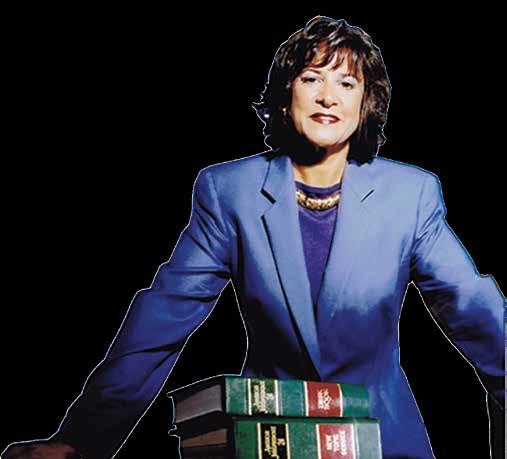
including Poland and Croatia, still need to pass legislation to that effect.
Her focus more recently has been on pressing countries to more openly and honestly confront their roles in the Holocaust, a job complicated by states’ natural tendency to create heroic national myths. She would like to see monuments to perpetrators of atrocities removed, or at least modified.
More broadly, a resurgence of the far right has worried Jewish groups and the Biden administration. Poland has passed laws criminalizing accusations that some Poles collaborated with the Nazis, and others restricting restitution. Hungary’s approach to its role in the Holocaust has long been a matter of debate between the government and Jewish community. Far-right parties have made gains in recent elections in Austria, Germany and France, among other countries. Neo-Nazi marches also still make headlines across the continent.
“You get a certain amount of what we call revisionism or rehabilitation, like rehabilitation or glorification of people who are considered national heroes because they fought the communists,” she said. “They fought the Soviets after World War II, but they also participated in acts of Nazi genocide. During World War Two, they collaborated — sometimes they were directly involved in deportations or mass killings. There are figures like that in Lithuania, Ukraine, in Croatia, you’ve got street names named after some of them.” Germain named Juozas Krikštaponis and Jonas Noreika in Lithuania; Roman Shukhevych in Ukraine; and Miklos Horthy
The Charlotte Jewish News - April 2023 - Page 24 Estate Planning Estate and Trust Administration Pre-Marital Agreements Charitable Planning and Entities General Corporate and Tax Law Business Succession Planning 5401 Lancelot Drive Charlotte, NC 28270 704.846.3607 office 704.756.3626 cell MGOLDSTEIN@MGOLDLAW.COM WWW.MGOLDLAW.COM
D. Goldstein Attorney-At-Law
Meg
Lewis Family Law Attorney DRC - Certified Family Financial Mediator Collaborative Divorce Professional Assisting families in resolving family law disputes since 2005 • Divorce • Child Custody & Support • Alimony • Distribution of Assets & Debts • Pre-marital Agreements Named to The Best Lawyers in America® for Family Law (2019 – 2023) Proud Member of the Charlotte Jewish Community Since 2010 Tin Fulton Walker & Owen, PLLC Tel (704) 338-1220 | dlewis@tinfulton.com | www.tinfulton.com
Daniel A.
(Continued on page 34)
Temple Solel To Host Interfaith Seder
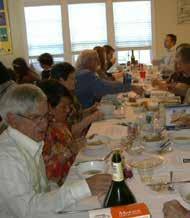 By Dale Rivers, Vice President
By Dale Rivers, Vice President
When our new church hosts first agreed to share some of their space with our Temple, they made one request. They weren’t looking to be our landlords; they were looking for an interfaith partnership. One of the things they wanted was to participate with us in a real seder. They were not thinking of just a few of their members coming; this was for their entire congregation! So April 6, we are hosting the biggest seder we can imagine. At press time we did not have a head count but we expect between 100 and 150 attendees. That’s some seder for a small congregation like us. But we are up to the challenge. Think of us as the Little Temple That Could!
The celebration of Passover has been a congregational tradition from the very beginnings of Temple Solel 12 years ago. While we celebrated the first night of Passoveright with a traditional seder at our individual homes with small gatherings of family and friends, it was the second night of Passover that we made really special. That was when the entire congregation got
together as one extended family and shared the many seder rituals associated with the Exodus of the Jewish People out of Egyptian slavery.
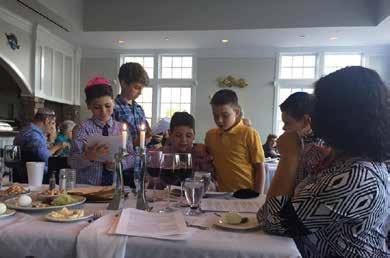
We were a tiny congregation when we started, just fourteen individuals with a vision to start a Reform congregation. Our small size enabled us to get together as a family for seders, year after year. As we grew, we began to hold small abbreviated seders for the children of the churches
where our Temple leased space. We eventually were leading a short educational seder for over 100 high school students at one of our host churches.
Then COVID hit and we could no longer safely get together. Like most congregations, we kept our traditions and our extended family together for more than two years using Zoom. But we did not stop there. Even though we could not be together physically, we could still be
together in spirit. We created the Temple Solel Passover Kits. The kits contained all the things needed to put on a seder plate: a hard-boiled egg, a shank bone, homemade charoset, everything. It even had a seder plate! By everyone using the same materials, it was a way we could still feel the Passover connection that we had enjoyed with each other in the past. It was like we were all at the same table. It is so great to know we are back together and live!
Temple Solel is a warm and welcoming Reform congregation located in Fort Mill South Carolina. We offer the opportunity to “Pray Together, Learn Together, and Change the World Together.” We are steadily growing by attracting new members who are looking for friendship, a chance to do good deeds in our community, and to have a little fun along the way. We have eliminated the barrier annual dues. While we gratefully accept donations, active participation is much more important to us. We meet at 7 p.m. on the 2nd and 4th Friday of each month at the Grace Presbyterian Church in For Mill. For more information about our services and other events, please visit our new and improved website at www.templesolelsc.org or call us at (803) 610-1707. We’d love to meet you.
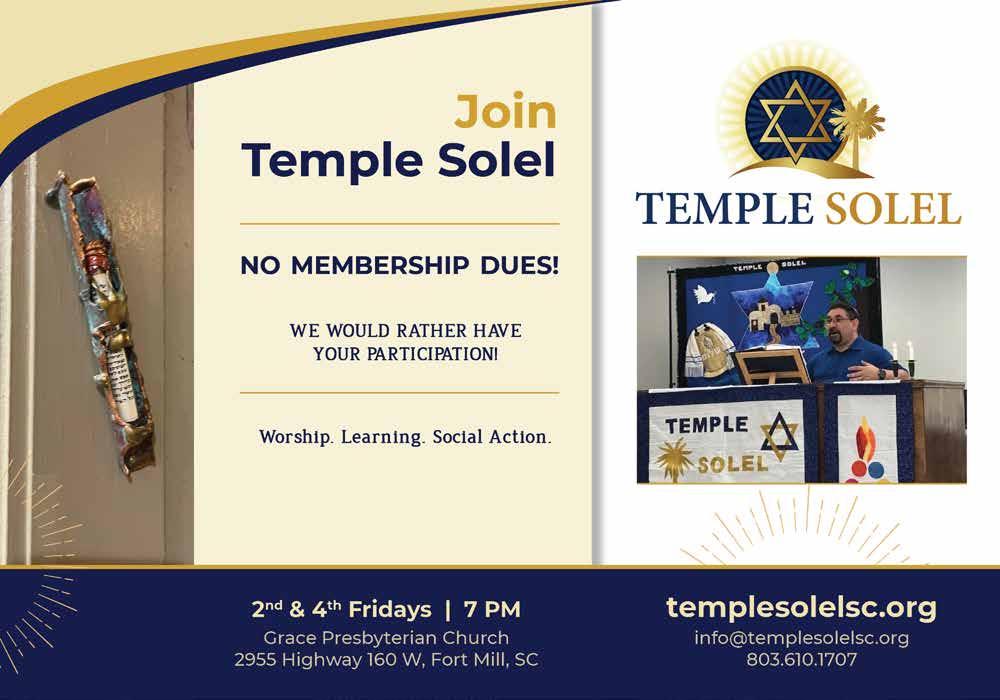
The Charlotte Jewish News - April 2023 - Page 25
Religious Life
Temple Solel sharing seder with school children
Temple Solel congregation together for a seder
Celebrating Israel’s Contributions
By Rabbi Beth Nichols, Temple Beth El

One of the most powerful aspects of being part of the Jewish people is the connection we have to others across time and space. It gives me chills when I recognize that a particular ritual we are performing is described in the Hebrew Bible. For example, if our ancient Jewish ancestors were to see our celebration of Purim, they may not know what to make of our costumes and carnivals, but they would hear the megillah and know that we were still following the instructions in the Hebrew Bible “to observe them as days of feasting and merrymaking.” (Esther 9:22). Similarly, they would most certainly be confused by Passover toys depicting the 10 plagues, but then they would hear the line that “In every generation, we are obligated to see ourselves as though we personally came out of Egypt,” and would know that we have kept the Torah’s instructions.
But what would they think of Yom Ha’atzmaut (Israel Independence Day)? How would they process the singing, dancing, and waving of flags on a holiday they have never heard of?

While Israel is only celebrating 75 years of independence, I believe that our ancient ancestors would recognize the love and attachment for the Land of Israel that Yom Ha’atzmaut expresses. Generation after generation, beginning with our patriarchs and matriarchs, the Jewish people have expressed a desire to make a home in Israel. We can trace our longing for Israel through countless exiles and an expanding diaspora. We can hear it in songs and read it in lines of poetry.
Today, it is often difficult to talk about Israel without sparking intense political conversations. While many of these conversations do express the depth of our feelings around Israel and involve crucial issues which Israel needs to address, they often prevent us from celebrating Israel. This milestone Yom Ha’atzmaut, I hope that we can come together as a community to lift up all that Israel has become and recognize its potential.
At Temple Beth El, we will begin our celebration with our Second Annual Israel Scholar-in-Residence Weekend, April 21-23, 2023, made possible through our Ahavat Medinat Yis-
rael (Love for the State of Israel) Endowment. We are excited to announce that this year’s scholar is Dr. Jeffrey Sosland of American University. Dr. Sosland is a renowned expert on Israel’s water policies, environmental diplomacy, and peacemaking efforts. He has spent years researching and exploring the role of water in Israel’s society, culture, and politics, and how this has impacted the wider world. His work has been instrumental in helping people understand the complexities and importance of water management, conservation, and access to this precious resource.
We will have the opportunity to learn with Dr. Sosland four times over the course of the weekend. He will begin by speaking during Shabbat evening service on Friday (7:30 p.m.), exploring the history of water politics in Israel’s first 75 years. On Saturday morning, our Torah Study (9:00 a.m.), will explore the value of water in Jewish text and tradition. Saturday night (7:00 p.m.), following dessert and Havdalah, will feature an interactive presentation focused on Israel’s current water technologies and where they will lead us in the next 75 years. Dr. Sosland will conclude on Sunday
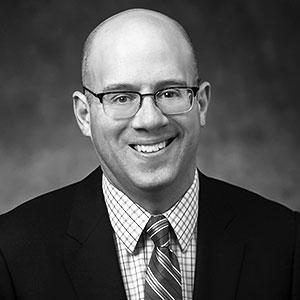
morning (9:00 a.m.), helping us think about how we can apply Israel’s successes, failures, and challenges in our local community. This presentation will be co-hosted by Shalom Green.
We are looking forward to starting off a week of Yom Ha’atzmaut programming with Dr. Sosland’s unique lens of examining Israel through its relationship with water. The week will continue with the community-wide celebration on Wednesday featuring live music, activities, and delicious Israeli food. We will then conclude the week, thanks to the generosity of the Charlotte Jewish Federation, with the opportunity to learn from renowned Israeli artist, Hanoch Piven, at Shabbat Evening Service on April 28 and Torah Study on April 29. We hope that the entire Charlotte Jewish Community will come together to celebrate Israel. From one Shabbat to the next, we will lift up Israel’s contributions in the areas of the environment, technology, music, and art.
ISRAEL SCHOLAR IN RESIDENCE WEEKEND
FRIDAY, APRIL 21 | 7:30pm - 9:00pm
Shabbat Evening Service: A Brief History of Israeli Water Politics
SATURDAY, APRIL 22 | 9:00am - 10:00am
Torah Study: God, Drought, and Democracy

SATURDAY, APRIL 22 | 7:00pm - 9:00pm
Dessert and Havdalah: A Taste of Israeli Water Tech
SUNDAY, APRIL 23 | 9:00am - 10:30am
Israel-Charlotte Water Connections: Lessons Learned and Beyond
(Love
American University
The Charlotte Jewish News - April 2023 - Page 26 Religious Life
Sponsored
Temple Beth El's Ahavat Medinat Yisrael
for the State of Israel) Endowment
by
Leading the Caring Circle Committee at Temple Kok Tikvah
By Bonnie Tuma
As a spiritual person, I have always felt a strong connection to my faith and a desire to help others in need. That’s why I decided to take on the role of leading the Caring Circle Committee at Temple Kol Tikvah.


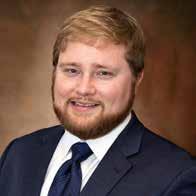
I want to share my journey and the reasons behind my decision to serve the community in this way.
First and foremost, I believe in the power of community. In our fast-paced and often hectic lives, it can be easy to feel isolated and disconnected from those around us, but, when we come together as a community, we can offer support, comfort, and encouragement to one another. That’s why I believe in the importance of the Caring Circle. Our purpose is to make a positive impact on the lives and families of the congregation. When a congregant or family member experiences a crisis such as a death or illness, or when there is a special occasion such as a birth or adoption, the Caring Circle members reach out to the congregant. We send greeting
cards, make phone calls, deliver Shabbat baskets, make meals, and provide shiva support with catered platters.
In addition to the power of community, I also believe in the importance of compassion and empathy. Our world can often be a difficult and challenging place, and it’s important that we reach
out to others and offer them a hand of support. By leading the Caring Circle, I have the opportunity to help and support others. I believe that even the smallest act of kindness can have a big impact, and I am eager to help spread love and compassion to those in my congregation.
Finally, I see my role as a leader of the Caring Circle as a way to give back to my community and to deepen my own spiritual practice. By serving others and helping to create a sense of community, I believe that I can grow as a person and deepen my connection to my faith. I see this role as a way to put my beliefs into action and to make a positive difference in our congregation. I am honored and excited to have the opportunity to play a role in that journey.
Red Sea Ramble + Hike
Thursday, April 6 at 10:00am – James Boyce Park
Take a hike with Rabbi Knight for Passover. As we enjoy the fresh air and some exercise, we will reflect on the blessings of family, community, the abundance of the earth, and gain a deep understanding of the meaning of Passover and its relevance to our lives today.
Register by Monday, April 3 (Walk-Ins Welcome)
Second Night Seder
Thursday, April 6 at 6:00pm – Temple Beth El
The entire Charlotte community is invited to join us for a multi-generational, traditional Passover Seder. Share an evening filled with wisdom, music, the warmth of Pesach, and your TBE congregational family. A complete Seder meal will be served.
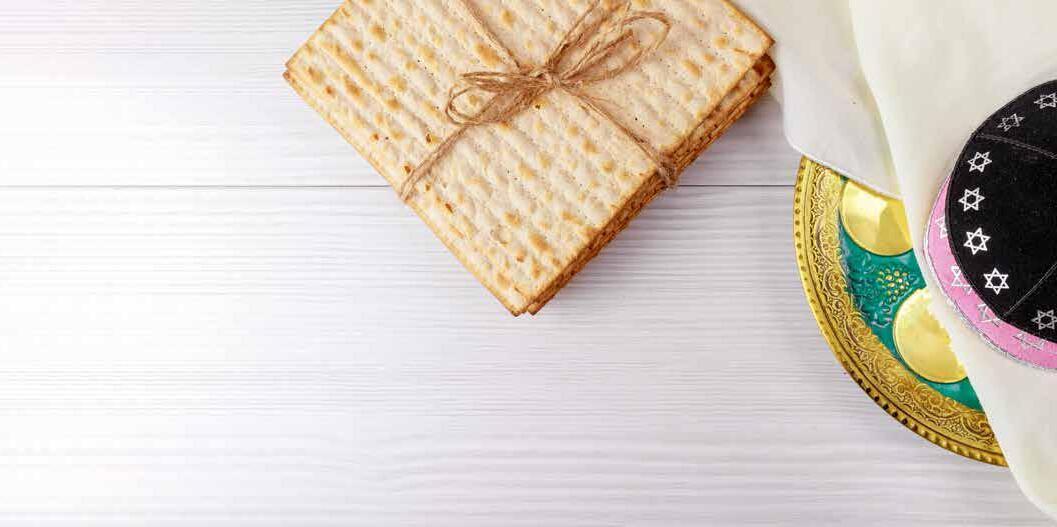
Register by Monday, April 3
Second Night Seder for Families with Young Children
Thursday, April 6 at 5:00pm – Temple Beth El
Your family is warmly invited to join us as we sing and laugh our way through a fun and kid-friendly Seder meal. Geared toward families with kids (infants through 2nd grade)
Register by Monday, April 3
Passover Festival Morning Service with Yizkor
Wednesday, April 12 at 10:30am – Temple Beth El
Join
(psalms of praise) and Yizkor (our
The Charlotte Jewish News - April 2023 - Page 27 Religious Life
the
registration required | Livestream Available
celebrate
us for
concluding festival service, which will include the singing of Hallel
memorial service). No
www.templebethel.org
Bonnie Tuma
templeisraelnc.org
Our House. Your Home.
Wishing You a Joyous Passover!
TUESDAY, APRIL 4
Search for the Hametz (in your home)
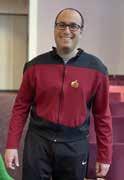
WEDNESDAY, APRIL 5
Fast of the First Born Morning Minyan and Siyyum, 7:30 a.m.
Candle Lighting, 7:30 p.m. No Evening Services - First Night Seder
THURSDAY, APRIL 6
1st Day Pesach
Pesach Morning Service, 9:30 a.m.
2nd Night Annual Community Seder, 6 p.m.

Candle Lighting, 8:30 p.m No Evening Services
FRIDAY, APRIL 7
2nd Day Pesach
Pesach Morning Service, 9:30 a.m.
Shabbat & Pesach Evening Services, 6:15 p.m.
Candle Lighting, 7:31 p.m.
SATURDAY, APRIL 8
Hol Ha’Mo-ed Pesach
Shabbat Morning Services, 9:30 a.m.
Evening Minyan, 5:30 p.m. Havdalah, 8:32 p.m.
SUNDAY, APRIL 9
Hol Ha’Mo-ed Pesach
Morning Minyan, 9 a.m.

Evening Minyan, 5:30 p.m.
MONDAY, APRIL 10
Hol Ha’Mo-ed Pesach
Evening Minyan, 7 p.m.
TUESDAY, APRIL 11
Hol Ha’Mo-ed Pesach
Pesach Evening Service, 7 p.m.
Candle Lighting, 7:34 p.m.
WEDNESDAY, APRIL 12
7th Day of Pesach
Pesach Morning Service, 9:30 a.m.
Pesach Evening Service, 7 p.m.
Candle Lighting, 8:35 p.m.
THURSDAY, APRIL 13
8th Day of Pesach
Pesach Morning Service (Yizkor), 9:30 a.m.
Evening Minyan Service, 7 p.m.
Passover Ends/ Havdalah, 8:36 p.m.
Temple Israel Celebrates Purim!
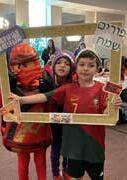
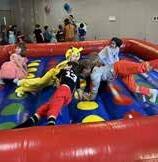
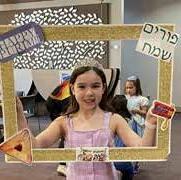
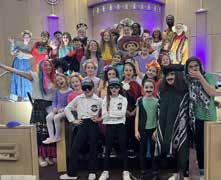
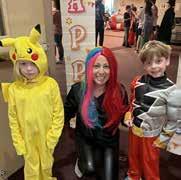
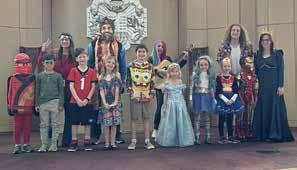

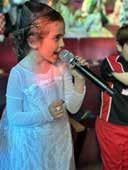

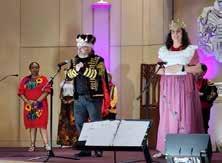
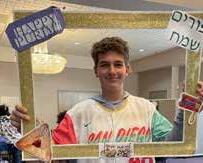
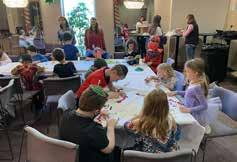
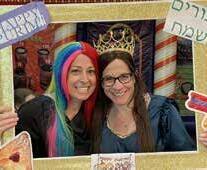
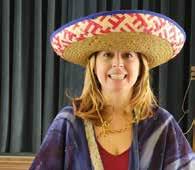
The Charlotte Jewish News - April 2023 - Page 28 FOR ADDITIONAL INFORMATION ABOUT FUTURE EVENTS, VISIT OUR “UPCOMING PROGRAMS” PAGE AT TEMPLEISRAELNC.ORG
SCHEDULE
/5783
PASSOVER SERVICE
2023
*All Candle Lighting Times are based on GPS location for Temple Israel.
Shmurah Matzah and Beginner’s Passover Seder
By Rabbi Levi Cohen Shmurah Matzah Available for Purchase through Chabad
Shmurah matzah is a traditional unleavened bread that is a staple of Passover celebrations for many Jewish communities. What sets shmurah matzah (or “guarded matzah”) apart is its unique preparation process, which makes it the closest replication of the original matzah the Israelites ate when they left Egypt in haste. Handmade using traditional, old-fashioned methods, shmurah matzah is prepared and baked by hand without the use of machinery, similar to the original matzah that was hastily prepared during the Exodus. It is also baked with extra supervision and care to ensure that not even the slightest chance of leavening creeps in, adhering to the traditional customs and requirements of Passover.
Chabad of Charlotte is offering a limited supply of both regular and whole wheat shmurah matzah, available for purchase at $32 per pound. To place an order, visit the Chabad of Charlotte website at www.chabadnc. org/matzah or call our office
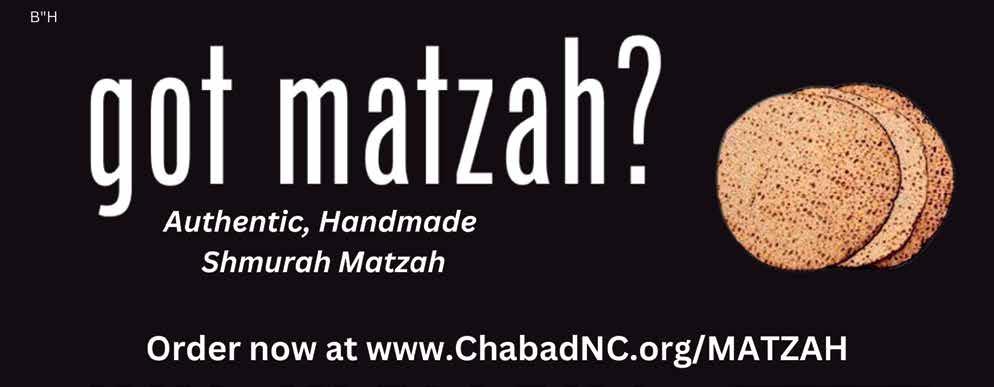
at (704) 366-3984. Order your shmurah matzah today to experience the authentic taste and history of this traditional unleavened bread during Passover.
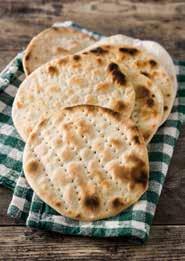
Chabad to Host Beginner’s Seder on First Night of Passover Have you ever wondered what the Passover Seder is all about? Looking for an engaging and interactive way to learn more about the meaning of its unique customs and rituals? Join us at Chabad of Charlotte for a
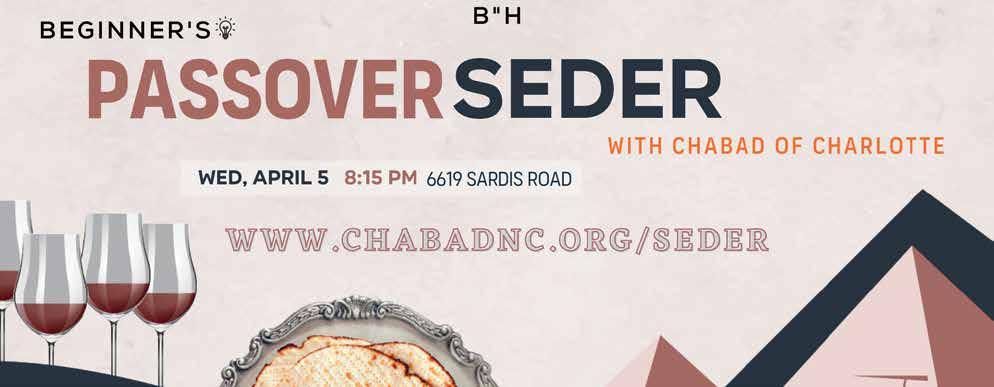
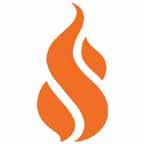
special Beginner’s Seder on the first night of Passover, Wednesday, April 5th, 2023 at 8:15 p.m. You’ll be guided through the Haggadah, the Passover text that tells the story of the Exodus from Egypt, in a relatable and interactive way. You’ll have the opportunity to ask questions and explore the significance of the various rituals and customs in a supportive and inclusive environment. You’ll also get to enjoy a delicious Passover gourmet meal, including hand-baked shmurah matzah and a selection of great kosher wine. Plus, you’ll get to celebrate with our warm and welcoming community and experience the joy of Passover. No previous knowledge or experience is necessary - just bring an open mind and a willingness
to learn and participate. The cost to attend the Beginner’s Seder is $75 per adult and $35 per child. Don’t miss out on this unique opportunity to deepen your understanding of the meaning behind the Seder! Reserve your
spot today by visiting our website at www.chabadnc.org/seder, emailing lcohen@chabadnc. org, or calling our office at (704) 366-3984. We can’t wait to celebrate with you!

The Charlotte Jewish News - April 2023 - Page 29
Religious Life
Temple Kol Ami Remembers
By Jonathan Shaw
When was the last time you thought about your daily freedom as a Jew? Do you take it for granted? Today we walk tall and proud. But what about tomor-

row? Our story as Jews is one of many ups and downs. A constant battle of survival for our Jewish identity; battles that tend to come with help from our people. With Chanukah we had the Macca -



bees, Purim it was Esther, and Passover we had Moses. These are stories that we read about and celebrate — none of which any of us lived through. In our time, the biggest battle was the Holocaust. A time that many of our family members lost their lives. Also, a time that many fought to survive and a time that many helped us to survive. In January, we commemorated Holocaust Remembrance Day, in March we celebrated Purim, and now in April, Passover. All times for us to talk, tell stories, and be reminded of our freedom. It is great to hear these stories but, will you be one that has stories told about you? Will you stand up for what you believe in? Will you fight for survival? What will you do if you see someone in need of help for survival? Will you be there to help hide someone? Will you take the risk? What will your story be?
A few years ago, at Temple Kol Ami, we had the opportunity to hear stories from the children of brave Holocaust survivors, some of whom risked their lives jumping out of a train headed to a death camp. On Sunday, April 16, 2023, at 3 p.m. at the
DiGiorgio Student Center, Winthrop University, we will hear a story from Irene Stern Frielich whose father, Walter Stern, was a German Holocaust survivor. His survival was dependent on the help of others. The stories of those who risked their lives to save themselves and those who risked their lives to save others are all very different, but very poignant. Every day we may encounter times when we need to save ourselves or help to save others. These stories should be heard. They should give us the strength for survival. Let us not take our freedom for granted. We need to be the story makers.
Join Temple Kol Ami on Sunday, April 16 at 3 p.m. at the


DiGiorgio Student Center, Winthrop University, 2020 Alumni Drive in Rock Hill, SC. for a free event titled “Shattered Stars: My Father’s Journey Through Courage, Compassion and Kindness” told by Irene Stern Frielich There is free parking in the two lots adjacent to DiGiorgio and refreshments will be served. Please help us to honor the memory of those who perished and maintain the stories of those who survived this unbelievable genocide. As the survivors grow older and pass away, it is our responsibility to never forget!
If you live in York County or the Ballantyne area, Temple Kol Ami might be the place for you! We are awarm and inclusive congregation comprised of Jews from diverse backgrounds. There are so many wonderful advantages to being a member of TKA, not the least of which is being a part of the revitalization of the Jewish community of this area! We hope you will come play and pray with us sometime soon! For more information about Temple Kol Ami, check out our website at www.templekolamisc.org.
The Charlotte Jewish News - April 2023 - Page 30
Paul Mattos Mortgage Banker NMLS #2339069, Licensed in NC, SC
www.CarolinaHomeFinancing.com PaulMattos.com Your Trusted Local Lender Get the Care You Deserve from
980-221-4959 PaulMattos@AtlanticBay.com
Religious Life
Irene Stern Frielich
Around the Table: We Eat To Remember
By Charlotte Rouchouze
The other day, someone gave me one of the best compliments I’ve had in a long time. She told me that in my writing I was a good storyteller. It occurred to me that one of the things that I have valued most in my life of studying and writing for school, academics, blogs, and this very column, is uncovering and interpreting stories. And for good reason. I think that at the heart of so many human endeavors, whether it be the arts, history, politics, culture, or languages, are stories and how they are told. Even in domains far outside of arts and culture, such as medical research, search engine design, or fundraising, we transmit information to others and persuade others via stories and narratives. What happened? How did it happen? What should we learn from it? Who is telling the story and why? These are at the heart of knowledge.
The reason I bring this up is because every year at Passover, I am once again reminded that one of the founding narratives of Western Civilization was gifted by the Jewish people in the form of the Exodus story. The impact of the Exodus myth of the Israelites being led from injustice and slavery, through the desert, and into the Promised Land is vast. It is undoubtedly a central prism through which Western culture has explained the concepts of national identity, personal and national liberation, freedom from tyranny and enslavement, spiritual redemption, and communal loyalty to a legal code. Christians used it as a prototype for their concept of salvation; the Founding Fathers referred to it in their speeches and mottoes, such as in the seal that Benjamin Franklin used and even proposed as the national motto in 1776 (but which was never officially adopted) showing Moses parting the Red Sea with the quote “Rebellion to Tyrants is Obedience to God”; and African Americans used its imagery widely in spirituals (Go Down Moses being one of the most famous) and in the development of an anti-slavery consciousness.
After spending several years immersing myself in the story of the exile of North African Jewry for my doctoral dissertation, I found that this too was a people
who heard echoes of the exodus as they were forced out of their homes in Arab countries (including Egypt), and resettled in new lands, many of them in the new modern country of Israel. The first time I heard about the North African Jewish experience happened to be when was invited to a Tunisian French friend’s seder table in Paris many years before starting my PhD. She served a charoset that is one of the most striking taste memories I have. It tasted like the drifting fragrance of flowers in summer air. When I asked what it was, she told me that it was flavored with fleur d’oranger, the essence of orange flowers.
At Passover, the connection between eating and storytelling is explicit. We eat certain things in a certain order, as a way of reminding ourselves of that story of liberation, and not just because we like telling the story, but because we are obligated according to Judaism to tell it once a year.
For me, food and taste have always been a central part of memory, but Passover harnesses the melding of taste and stories in a very deliberate way. And the more years we observe the holiday, the more potent those tastes will be in recalling the story and the memories we associate with them.
We might ask why taste, since what could be more intimate and personal than the experience of taste for a holiday all about our communal story? But Jewish tradition holds that the seder, like ALL stories in some sense, are always about more than one thing. The exodus is the story of a people and the story of me, who, according to our tradition, was also there at Sinai. How powerful is a holiday, a narrative, and a tradition that melds our personal struggles, our individual memories, and our collective identity,
all experienced through the very specific tastes of a meal!
Over the years I have added a tribute to North African Jews and their story to my Passover table, and this of course came in the form of Tunisian charoset, which now sits next to my family’s Ashkenazi charoset every year on my seder plate. This got me thinking about charoset and its history, and I’ll share a bit of this history with you today.
Unlike other components of the seder plate, charoset is not mentioned in the Torah. In the Jews: A History , Dr. Steven Weitzman explains that the authors of the Babylonian Talmud may have struggled to explain the sweet dip that was a typical part of the seder table but which was in fact nothing more than an Ancient Palestinian custom at festive meals. In Pesahim 116a, they offered several explanations for it, one being that it was a way of neutralizing the poisonous bitter herbs, another that it was a way of remembering the apple trees that play a redemptive role in the exodus story, and a final one that it represented the mortar used in Ancient Egypt. There is also a dispute as to whether the mixture’s presence at the seder was required or simply traditional. Over the years, it appears that we as a people have settled these two debates. The charoset is in-

deed required on the seder plate, and it represents the mortar that the slaves used in Egypt. Nonetheless, part of what makes stories like this one great is that they can morph and adapt, taking on additional layers of meaning for those who tell them. This can be seen today in the vast number of ways that charoset is prepared around the world. From Polish or Russian Jews who prepare it with apples, walnuts and sweet wine, to North Africans
Sally’s CharosetAshkenazi
6 apples, peeled and chopped
1 cup walnuts, chopped
who use dates and orange flower water. There are also the Jews of Italy who prepare it with oranges and the Jews of India who use mangoes. The common elements seem to be that one takes the sweetest, most delectable fruit, adds a fragrant and flavorful liquid, and combines those well to make an unattractive mixture that represents pain, but that we all know brings us joy at the table.
Here are the two that sit on my seder table. The ingredients of charoset are always adaptable and feel free to use your taste as a guide. The Tunisian-style charoset can be made into balls for easy serving.
Charlotte Rouchouze, PhD is a local French teacher, food blogger, and beaded jewelry designer. Her blog about food traditions from around the world can be found at www.thechildrenstable. com . Contact her at charlotte. rouchouze@yahoo.com.
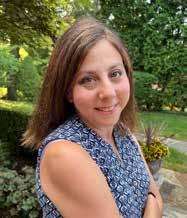
½ cup sweet red wine such as Manischewitz or Port
½ cup sugar, or to taste
1 tsp cinnamon
Blend all the ingredients and adjust sweetness. Store in a sealed container until ready to serve.
My Tunisian-style Charoset
2 cups dried dates, roughly chopped
½ cup dried apricots, roughly chopped
½ cup sweet red wine or port
1 cup toasted nuts such as pistachios or almond slices, roughly chopped if large
1 tsp cinnamon
1 tbsp orange flower water
In a mixing bowl, put the dates and apricots to soak in the wine and orange flower for about 10 minutes, or more if the dates are the drier variety. Add the dates, apricots and nuts into the bowl of a food processor. Pulse briefly until the ingredients make a chunky paste. Form the paste into balls for easy serving.
Caring for
Carolina Asthma & Allergy Center is the area’s largest asthma and allergy practice made up entirely of board-certified physicians. Our specialists treat patients of all ages for a range of conditions including seasonal and environmental allergies (pollen, animal dander, dust and mold), food allergies, eczema, and asthma.
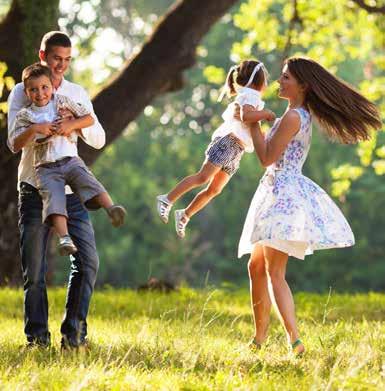
Call our Appointment Line at 704.372.7900
to make an appointment today!
The Charlotte Jewish News - April 2023 - Page 31
breathe » live » thrive | www.carolinaasthma.com
in the greater Charlotte area for more than 70 years.
patients
Helping families with allergies live their best lives.
Looking for an Summer Job?
April Crossword: Four Cups
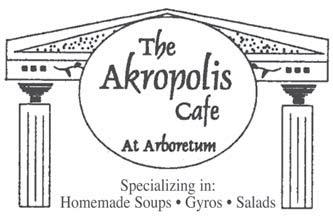
42. TV director Linka Glatter
46. *Bi-weekly Jewish ceremony
48. *It’s fine for groggers but not for (kosher) shofars
50. “___ you with this...” (final thought worlds)
51. Take the offensive
52. Palindromic negative prefix
53. A Shtisel on “Shtisel”
57. Key chess piece, in Spain
58. Essential part of the Seder....or an alternative title to this puzzle
63. Otherworldly being
65. 1-1, e.g.
66. Ceremonial cutter
69. Transit option in D.C. or L.A.
70. Drink that’s chametz
71. Amazon option
72. Toys you can walk or swing
73. 42nd and Elm: abbr.
74. Instagram option
20. Have some matzah
Across
1. Airy lobbies
6. Dorm heads, for short
9. Israeli plaza
14. Beach Boy Wilson
15. Havdalah need
16. “Calendario” start
17. “Madam Secretary” actress Téa

18. NCAA basketball champs of 2000
19. “Path”, for HaShayara or HaAsara

21. *First name behind “Dr. Strangelove” and “Spartacus”
24. Half an African fly?
25. Audiophile’s acquisition
27. Masted ship
29. Banks of “America’s Got Talent”
30. Menachem’s predecessor
34. Crime-fighter Eliot
35. *Action required for building the Tabernacle
38. AKA name
41. The bane of many men
$2
Down
1. Best-suited for a job
2. Versailles event of 1919
3. Protester who goes too far
4. NFL announcer Eagle
5. Herb that tastes like licorice
6. Rabbi Moses Isserles, with “The”
7. AAA member?: Abbr.
8. Synagogue
9. Birthplace of Obama’s father
10. It makes Joseph or Paul feminine
11. Kind of corn or drum
12. Comes up
13. Nomads
22. Caesar wrap
23. Actor Morales helpful to many crosswords
26. Best Western rival
28. Consume
31. Shalom preceder

32. Shlep
33. Bit of rain
36. Uncle of Yissachar
37. GPS above-the-Equator fig.
38. Related
39. Eponymous Disney islander
40. Kind of politics
43. Locale for Kirk
44. Head hunters’ targets?
45. Disgusting, in kid-speak
✓ Highschool or college student
✓ 20 hrs. per week (flexible)
✓ Tree and bush limb care
✓ Grounds maintenance
✓ Must be able to lift 20 pounds or more
✓ Must be able to operate equipment such as rake, shovel, clipper, weed eater, leaf blower and push lawn mower
The Hebrew Cemetery of Charlotte is seeking a paid grounds intern for June, July, & August. Interested?
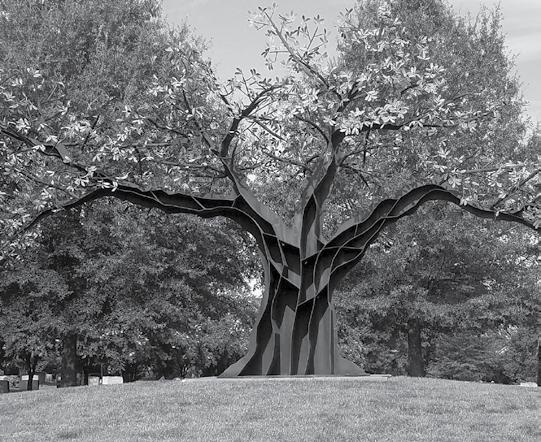
47. Synonym for 40-Down
49. Concerning the congregation
54. Infinitesimal amounts

55. Made like Noah or Betzalel
56. Brady broke some of his major recrods
59. Avigdor Kahalani, e.g.

60. Son of Seth, in Genesis
61. “Safe!” crackers?
62. Study steadily, with “over”
63. Youngest of the fictional March sisters
64. Pride papa
67. One of the Big Four record companies, once
68. Place to eat grass
The Charlotte Jewish News - April 2023 - Page 32
OFF Any Purchase of $10 or more with this ad Mike Sadri Arboretum Shopping Center 7045415099 fax: 7045415989 Only 1 coupon per transaction. Expires 4/30/2023 704-541-5099 Take Out or Delivery with Doordash $2 OFF Any Purchase of $10 or more with this ad Mike Sadri Arboretum Shopping Center fax: (704) 541-5989
Email your resume to: director@hebrewcemetery.org
(Answers on page 42) 1 2 3 4 5 6 7 8 9 10 11 12 13 14 15 16 17 18 19 20 21 22 23 24 25 26 27 28 29 30 31 32 33 34 35 36 37 38 39 40 41 42 43 44 45 46 47 48 49 50 51 52 53 54 55 56 57 58 59 60 61 62 63 64 65 66 67 68 69 70 71 72 73 74
Hebrew Cemetery: A Place for the Living
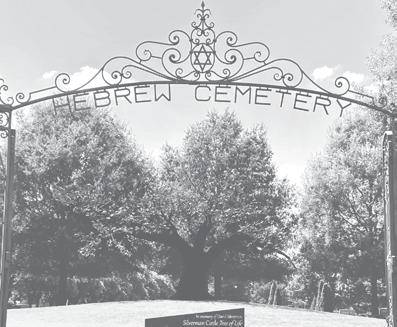 By Sandra Goldman, Hebrew Cemetery Executive Director
By Sandra Goldman, Hebrew Cemetery Executive Director

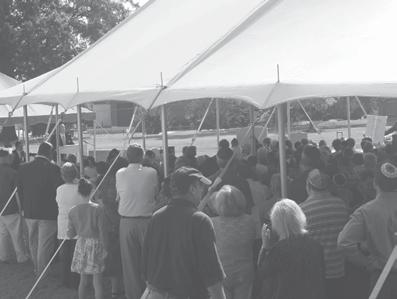
Many of us think of cemeteries as a way to connect with the past, yet cemeteries are peaceful, open spaces designed for the living. In visiting a cemetery we can feel poignantly connected with the meaning of life, to continue to carry our past into our futures.

With that in mind, it was no surprise that on a beautiful Carolina blue sky day in June of 2022, Danielle Feller came to visit her father’s grave together with her boyfriend, Nicholas Dinardo. Dinardo had heard many stories about her dad and was sure that he would have liked him a lot. Sadly, Nicholas did not have a chance to meet Michael Feller. He passed before the young man had an opportunity to get to know him.
The couple, who had been dating for about two years, stood in front of the grave marker when Nicholas suddenly kneeled, asking his beloved girlfriend to marry him. He had wanted to stick with the old tradition of asking the father for the hand of his daughter and so he had come up with the plan to do so at the cemetery.
He knew all along that he
wanted the late Feller to be part of his proposal, as he understood how hard it had been for Danielle to be without her dad. The bride to be said that the thoughtful and loving incorporation of her late father meant more than anything to her.

Profound moments like these confirm that cemeteries are, in fact, for the living, reminding us of our roots, to be good stewards, to be humble, and go forward in life. Sometimes the meaning of an affectionately inscribed sentence on
a grave marker becomes even more profound: “Who loves you darling.” The inscription on Michael Feller’s headstone could not have been any more fitting. The couple will be tying the knot this coming November in Gastonia. We
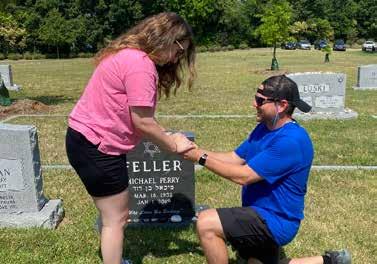
Why
•
•
•
•
•
•
Make
The Charlotte Jewish News - April 2023 - Page 33
Plan for a Living Space. Plan a Forever Place Today.
Plan
Own Funeral?
Your
It’s a gift to your loved ones
Provides you and your loved ones with peace of mind
Don’t leave others to guess what you want for your funeral or forever place
Now
Act
Plan and record your wishes (no purchase necessary)
substantial savings on places and service fees
Receive
in costs
future increases
Lock
and avoid
Goldman
YOUR HEBREW CEMETERY ASSOCIATION
Ask about your forever place planning, green burials, cremations, markers, and more. Pay over 24 months or in one payment. Contact Director, Sandra
at director@hebrewcemetery.org, or call 704.576.1859. SUPPORT
a tax-deductible annual membership of $108 or become a lifetime member for a one-time fee of $1,800.
www.hebrewcemetery.org
Nicholas Dinardo proposing to Danielle Feller in front of her late father’s final resting place at the Hebrew Cemetery.
Michael Siesel 5-23-1967 - 2-1-2023
Arlene Berger 6-15-1936 - 2-12-2023
The Hebrew Cemetery joins with the community in remembering the names of those who have been buried at the Hebrew Cemetery in the month of February.
Ellen Germain
Lithuania to the discussion of this,” she said. “Everyone from the government to academics to journalists. “I did a panel event there that live-streamed and had 20,000 viewers, and the questions and comments just from the people in the audience about this — they were just much more
open to saying, ‘Yeah, you know, we realized this is a problem and we need to figure out how to deal with it.’”

The Hungarians, by contrast, appeared wary. Hungarian officials have sought to equate the Holocaust with Soviet-era repression and revive the reputations of figures like Horthy.
Prime Minister Viktor Orban has unsettled many in the West with his hard-right turn and rhetoric that, at times, appears to cross over into racism and antisemitism.
“Hungary is a more difficult question,” she said. ”I didn’t find the same level of openness. But I did find a willingness to at least talk to me about it.”
She did not mention the opposite democratic trajectories of both countries: Lithuania, along with Estonia and Latvia, have eagerly turned toward Europe and the United States in recent years, particularly as the Russian threat looms directly across the border. Hungary, by contrast, has become more insular and hyper-nationalist.
Germain said she takes a nuanced approach to making the case for confronting the past. Some of the people she wants to see made accountable for their crimes were genuinely at the forefront of their countries’ struggles against the Soviets.

“They don’t have to be written out of history, and in fact, they shouldn’t be because people need to know what they did, both good and bad,” she said.
“But the point is, make the history more nuanced and teach the
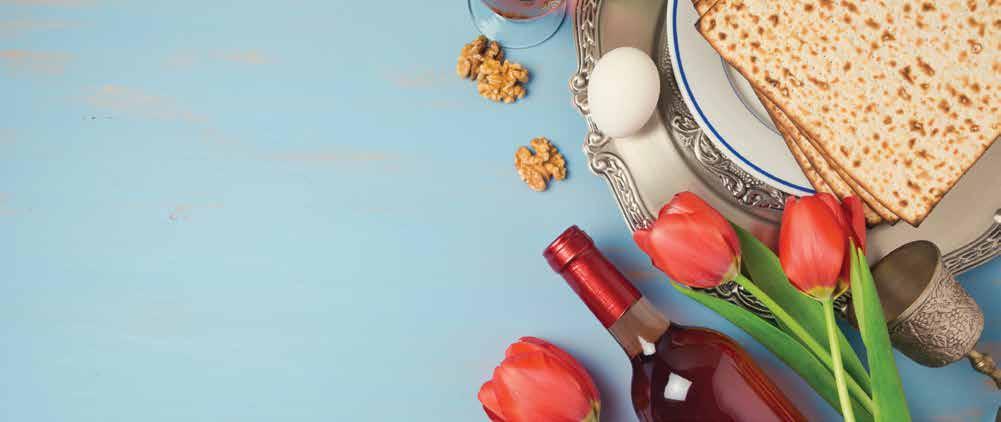
citizens of these countries what the full story is, and if there are statues and memorials to some of these guys… either take it down or add some context to it.”
She cited a plaque to Jonas Noreika on the Wroblewski Library of the Lithuanian Academy of Sciences. in Vilnius, in Lithuania, “that just says that he was a great man.” Noreika was a high-ranking police officer who is believed to have personally overseen the murder of Jews. He is venerated in Lithuania as a hero for fighting the Soviet Union alongside the Germans.
Germain said understands the
impulse to seek heroes to forge a national identity after the Soviets sought to negate the histories of the countries they dominated — and especially in the face of a resurgent imperialist Russia that has invaded Ukraine.
“I think it took a while for them to start sorting out their history,” she said. “And so, sometimes, there’s only in the last five or 10 years been real attention paid to the fact that some of these figures might not be as 100% heroic as they were initially thought to be.”
The Charlotte Jewish News - April 2023 - Page 34 T O U RS D A I L Y | WW W . W A L T ON W OOD . CO M | WW W . S I N GH CAREERS . CO M Assisted Living & Memor y Care 5215 Randolph Road Charlotte, NC 28211 704-495-6031 Independent Living, Assisted Living & Memor y Care 11945 Providence Road Charlotte, NC 28277 704-246-3055 Waltonwood residents enjoy convenient amenities, a carefree lifestyle, and a sophisticated culinar y experience. We invite you to call and schedule a tour of our communities today! Wishing you
Happy Pesach From your friends at Waltonwood Senior Living P ROVIDENCE C OTSWOLD 704-496-9310 704-246-8670
a
Ellen Germain, U.S. special envoy on Holocaust issues, listens during a panel before a screening of "The U.S. and the Holocaust" at the United Nations in New York, Feb. 9, 2023. (John Lamparski/Getty Images)
(Continued from page 24)
Bal Tashchit and Beyond: Pe’ah Forward
By Lisa Shpritz
Here in Charlotte, one of the most significant parts of preparing for a bar or bat mitzvah is selecting and engaging in a meaningful service project that helps address a need in our community. My son, Jacob’s, bar mitzvah was in August 2022, and his Torah portion was R’eih, during which Moses shared his wisdom with the Israelites as they were preparing to cross the Jordan into Israel. One important element of the portion addresses the importance of opening our hands to the needy in our community, and this concept really resonated with Jacob. We have had a garden at home for many years, and he enjoys helping with all aspects of maintaining the garden, from planting to watering to harvesting.
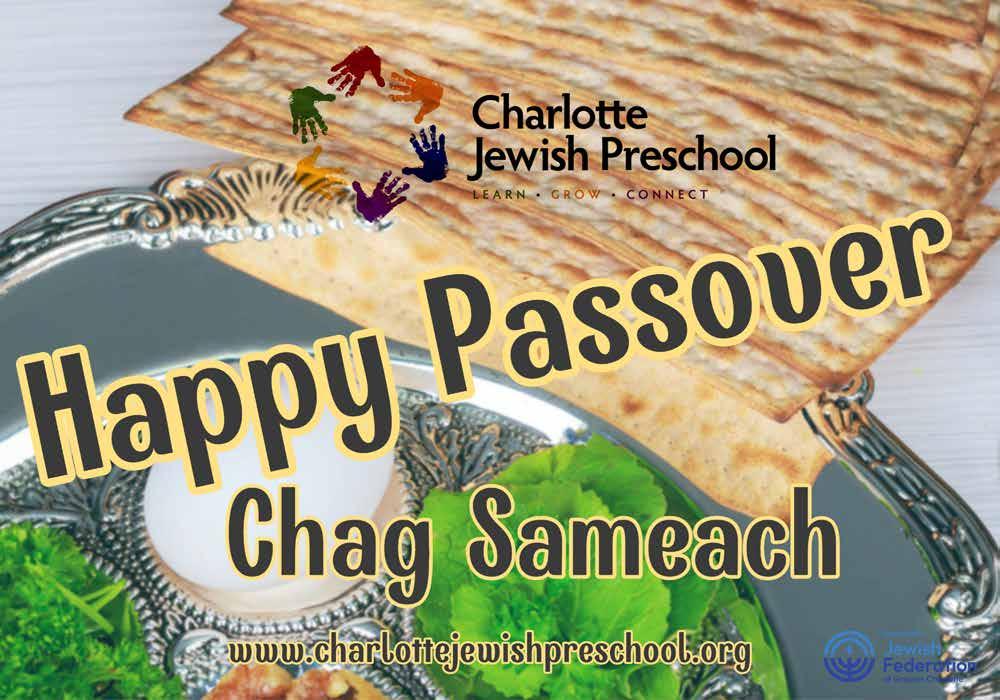
He decided to develop a project along with Shalom Green to help increase the amount of fresh produce available to clients of the Jewish Family Services (JFS) food pantry. JFS serves people across Charlotte and provides non-perishables to clients from the pantry. In addition to the pantry items, clients have access to fresh produce harvested from the Shalom Green community garden, which sits right outside of the JFS offices on Shalom Park.
In order to create and shape his service project, Jacob worked with Shalom Green through a program called REgeneration, designed for 12–18-year-olds. This eight-part self-paced approach gives students an opportunity to learn the importance of environmental stewardship and advocacy by providing a framework for their plan.

In 2021, the garden produced more than 330 pounds of food that was donated to JFS and Jacob wanted to focus his project on increasing that amount in 2022. Through the REgeneration program, he learned more about Shalom Green and about the various ways the organization helps to support environmental stewardship across Shalom Park. He became particularly interested in the newly launched Pe’ah Forward initiative, through which home gardeners can donate their extra produce to the JFS food pantry. Every other Wednesday, gardeners can bring excess produce from their home gardens to Shalom Park and Shalom Green volunteers will bag and label the produce for donation.
Through the REgeneration framework, he developed a goal to collect 100 pounds of fresh produce prior to his bar mitzvah. He began harvesting and collect-
ing fruits, vegetables, and herbs from many different people and places. He harvested produce from our home garden, from his Mema’s garden, and from his school’s garden. He collected produce from friends and family across Charlotte and beyond — his nana, grandpop, and uncle even brought fresh vegetables from their gardens when they traveled here from Baltimore
for Jacob’s bar mitzvah. Across the Spring and Summer gardening seasons, he harvested and collected many different types of produce, including zucchini, hot peppers, eggplant, cucumbers, tomatoes, and carrots.
Jacob’s project was a success, and he collected more than 100 pounds of fresh produce, all of which was donated to the JFS food pantry. He learned a great
deal about gardening and inspired many when he shared the story of his project during his bar mitzvah service. For those starting to think about b’nei mitzvah service projects, we would like to encourage you to consider one that involves the REgeneration program and Shalom Green. However, engaging with Shalom Green isn’t only for b’nei mitzvah projects; if you know anyone between the ages of 12 and 18 who might be interested in the environment, would like to learn more about gardening, or just wants to spend more time outside, volunteering with Shalom Green is a great way to get involved. We have garden workdays on the first Sunday of every month and all are welcome. Please visit www.shalomgreenclt.org to register. Each year, more than 600 people visit and volunteer in the garden, from Camp Mindy campers to Charlotte Jewish Preschool toddlers. Hopefully, you can also join us in the garden in 2023!

The Charlotte Jewish News - April 2023 - Page 35
Jacob Shpritz harvests vegetables for Jewish Family Services as part of community project
Judaism and STEAM Go Hand-in-Hand in Education
By Gale Osborne
At Charlotte Jewish Day
School
(CJDS), we are infusing Judaism with STEAM approaches and experiences. STEAM stands for Science, Technology, Engineering, Art, and Math. While “there might be nothing new under the sun,” we often need reminders of the tools and strategies we have at our fingertips that we may not be using. With the addition of Rick Isham, a seasoned and experienced STEAM teacher, our holiday activities are now driven by STEAM principles and methodologies and we are seeing new enthusiasm, excitement, and engagement among our students.
One of the foundational principles of a STEAM approach lies in exploration, experimentation, and discovery. Too often, children are not given the opportunity to “fail.” We are all so quick to jump in to help them, to avoid discomfort, frustration, and tears. If we would look back on our lives, it is apparent that our greatest lessons and growth have been through struggle and difficulty. These challenges are the fertile ground to build skills
of resiliency and creativity, problem-solving, and communication. Unfortunately, children are often sheltered from this process of discovery, with the best intentions to provide the feeling of success and mastery, but without the struggle. At CJDS, this year has uncovered lots of frustration and shock when the teacher does not necessarily jump in and help.
Guiding the students and parents
through the benefit of frustration and working through the discomfort has been a journey. The first few months were shaky, but now we barely hear those sounds of angst. As we add more of these activities to the school year, we are seeing students stand up and meet the challenge. We are also seeing leadership on the part of the older students as they proudly support and guide the younger students.
These are samples of our Judaic programs this school year:

Rosh Hashanah: This year, the students were given a bag of materials and told to make a shofar that can actually simulate the shofar blowing. We somewhat regretted giving them the hornblowers, but it was a wonderful sight to watch them create their shofrot with pride.
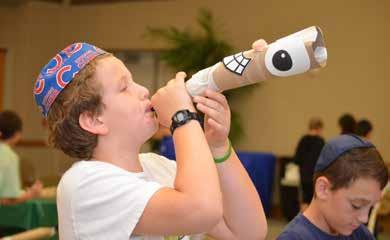
Chanukah: During Special Friends Day, A STEAM activity was offered to the students and their Special Friends, to create a light up Chanukah picture.
Rosh Chodesh Shvat:, For the first day of the Hebrew month of Shvat, the students in their “mishpacha” (family) groups fashioned trees out of paper,
tubes, and wire (without instruction), and the older students installed the lighting.
Tu B’shvat: To celebrate, Donna Lerner, our art teacher, introduced the students to the artist, Giuseppe Arcimboldo, who creates pictures and portraits out of fruits and vegetables. The students were then provided with a buffet of all sorts of vegetables and fruit to create their own pictures. Photos were then taken to be “judged for creativity, clarity, and meaningful representation.”
Rosh Chodesh Adar: On the first day of the Hebrew month of Adar, students created Purim character puppets with a light that simulated the hidden Jewish spark of Queen Esther, even when she had to hide her religion.
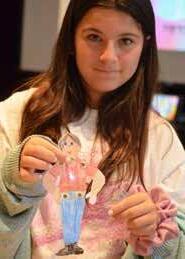
For Pesach, we will be creating an afikoman bag to hold a piece of matzah, and experiment with dropping the matzah without breaking it.
(Continued on page 37)
The Charlotte Jewish News - April 2023 - Page 36 Education and Youth
B”H 704.366.4558 | CJDSchool.org Check Us Out! CALL TO SCHEDULE A TOUR! MIDDLE SCHOOL PARENTS Visit us and learn about our new design and innovation lab, small class sizes and challenging, student-centered curriculum. Now enrolling TK-8! WE HAVE IT ALL! 4 Strong Academics 4 STEAM Lab 4 Electives 4 Sports
Isaac Duller blowing a Shofar he made for the High Holidays
Sophia Brooke Bleiman making a puppet for Rosh Chodesh Adar to show that even though we are all different on the outside, we each have a light inside.
Grandparents Day at Jewish Preschool on Sardis

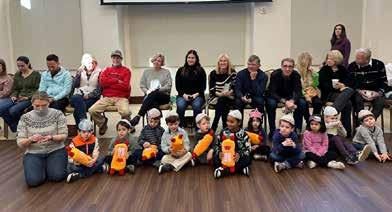

Celebrating Grandparents Day together once again in-person was a really special experience!
Tu B’shevat was the perfect theme for celebrating across generations and honoring our parents and grandparents. We did tefillah with our Judaica teachers, planted fig tree trimmings with our gardening instructor, Bobbie, worked on a handprint art project with our grandparents/spe-

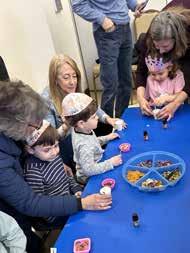
cial friends, tasted the delicious fruits that Israel is blessed with, and made our own soap with dried fruit and herbal scents!
Tu B’shevat teaches that strong roots are what is most important to a healthy tree; we thank all our parents and grandparents for being the strong foundation for our Jewish future!
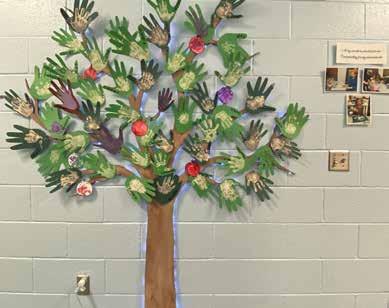
CJDS
Robotics is the current elective for our middle schoolers and one can meet robots in the hallway being controlled by the coding that the students have programmed.
To top off all of this excitement, we have been granted a matching $245,000 grant to renovate, build and stock a state-ofthe-art Design and Innovation

dents will then have all of the tools they will need to innovate and create.
Although, we realize that we have just scratched the surface, we are so excited to take advantage of all of the opportunities that are available to us.

The Charlotte Jewish News - April 2023 - Page 37
Education and Youth
Grandparent’s Day project is proudly displayed in the JPS hallway
Choosing essential oils and dried fruit/ flowers for our homemade Tu B’shvat soap
Planting our fig tree trimmings in honor of Tu B’shvat
Tefillah circle with our Torahs
(Continued from page 36)
What a Millennial Learned From Teaching Gen-Z About Judaism in Pop Culture
By Amy Fine
When I set out to teach a Hebrew High course about Jews in pop culture, I knew I wanted to have fun with the teens, and I figured talking about something that I enjoyed, and truthfully, already spent a great deal of my own time talking about, was as good a place as any to start. What I wasn’t quite sure of was what I was hoping to teach them. What did I want them to walk away with? It wasn’t until I was working on the title of my course that I began to round out that idea: Doc Samson to Doja Cat: Jewish Representation in Pop Culture. There it was — Jewish representation. What a topic for the times. This wasn’t just going to be a class where we talked about
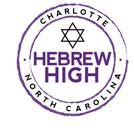
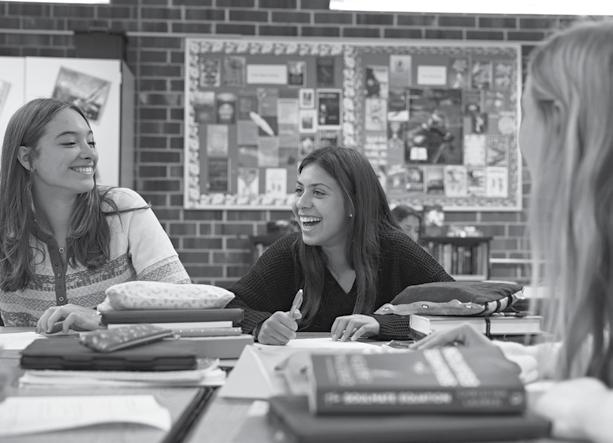
our favorite Jewish celebrities, characters, songs, and movies, but one where we could ask, “How do we feel about the way we, as Jews, are being represented to the world?” I had a pretty solid idea of how I’ve felt as of late, but how did the current generation of roughly 14–16-yearolds feel? The cultural climate is a great deal different from how it was when I was a teenager and I had questions.
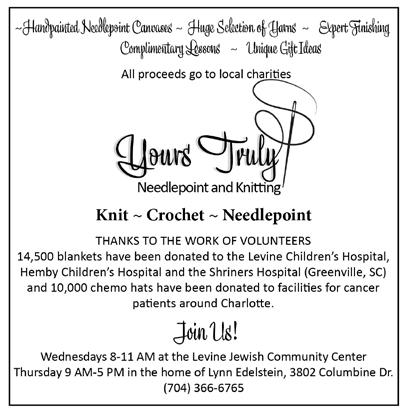
The first thing I did in the first week was to ask each person to name a celebrity, performer, or any influential person they admire. I wrote them on the board, and we looked at the list together. Not a single Jew in the bunch. I asked them what they thought about that. They were not both-
ered. What difference does it make? Religion shouldn’t matter. I didn’t disagree. We can admire people for all kinds of reasons. Just because we’re Jewish, doesn’t mean the people we look up to have to be. But it begged the question — wouldn’t it be nice to see just a little bit of ourselves in the people we so highly regard? We spent the rest of class naming every famous Jew who came to mind. The way their eyes lit up when we named someone they knew of but didn’t know was Jewish, made me believe it was maybe just a tad more meaningful to them than even they realized.

Over the next several weeks we dove a bit deeper. One night we talked about “Jewface,”
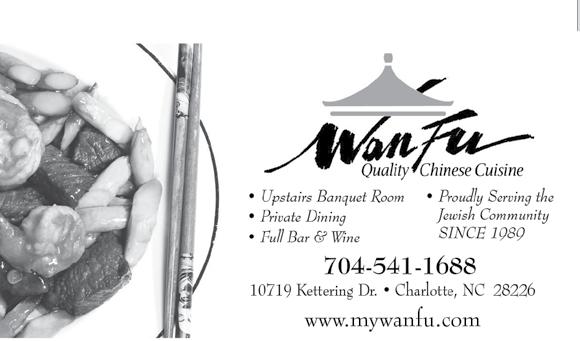
which comedian Sarah Silverman defines as “when a nonJew portrays a Jew with the Jewishness front and center, often with makeup or changing of features, big fake nose, all the New York-y or Yiddish-y inflection.” I provided the examples of Helen Mirren as Golda Meir and Bradley Cooper as Leonard Bernstein, among others. The class was, once again, unmoved. They were probably the best actor for the job. They probably looked the most like that person even without the few prosthetic tweaks. Once again, they weren’t wrong. It is entirely possible Helen and Bradley were the fittest for those jobs. I wasn’t trying to sway their opinion, but I wanted them to see why this pattern of Hollywood casting non-Jewish actors in Jewish roles, over and over again, could be viewed as problematic.
I envy these kids. I would love to be able to walk through the world without looking for antisemitism in everything. At the same time, I think it’s important for the younger generations to be able to recognize it when they see it; and call it out.
Now, just because these teens may view the world a bit more positively does not mean they are
unaware. It was when we stepped into the slightly more obvious, more blatant moments of what could be viewed as antisemitism, that they expressed their frustration. We hit all the recent high notes: Kanye West, Dave Chappelle’s opening monologue on Saturday Night Live, and the controversial Netflix film, “You People.” This is what got them saying, that’s not okay. This is not how we as Jews should be portrayed to the rest of the world.
If I go back and ask myself now what I ultimately accomplished, I’ll say this: I did not teach them about Doc Samson, a Jewish Marvel character who first appeared in a 1971 issue of The Incredible Hulk, and we talked very little about popstar, Doja Cat; but I believe I got them thinking about how we as Jews are represented to the world and, maybe even why it matters; and that’s enough for me.
The Charlotte Jewish News - April 2023 - Page 38 Inquire today at CharlotteLatin.org/admissions 704.846.7207 Reach Higher. Shine Brighter.
Education and Youth
13 Charlotte Teens Attend International Jewish Teen Summit in New York City

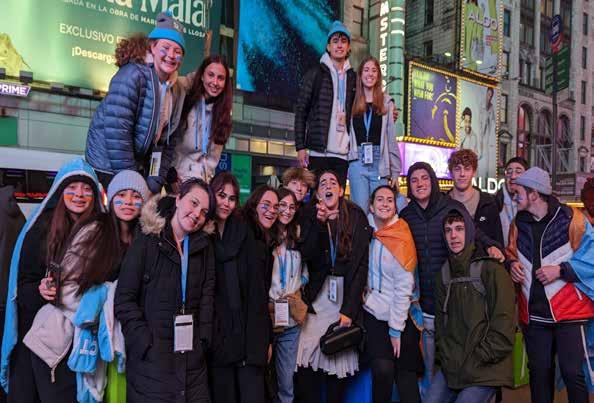
 By Emily Schenkel
By Emily Schenkel
My name is Emily, and I was one of 13 lucky teens to represent Charlotte and our local CTeen Chapter at the International CTeen Shabbaton.
Getting ready for the CTeen International Shabbaton weekend, I had no idea what to expect. Thursday afternoon all of CTeen Charlotte met at the airport hoping for an amazing experience, and we truly got it. Every day in Crown Heights was like a dream and we had the most wonderful weekend.
Arriving in the Laguardia airport, we were happily greeted by teenagers from different cities, states, and countries. Riding a party bus to Crown Heights with CTeen Raleigh, the music was booming and got all of our energies up for the night ahead. You’ve never really experienced the busy life until you are putting your bags down and running to Ohlei Torah for dinner and registration. In the mere hour we spent in Ohlei Torah, I met so many amazing people that are now my forever friends. Next up we ventured to 770, a world famous Chabad where we got to dance and sing until we couldn’t dance and sing anymore. Let’s just say I don’t know if I have ever slept better than I did that night.
bat Shalom! We all got ready for Shabbos and went to Shabbat dinner and a song session. What an amazing night spent around such a good crowd of people. Saturday morning included a nice long walk for breakfast, five minutes of snow flurries, and lots of busy fun. After breakfast, a small group of people and I walked back to Bais Rivkah for different Shabbos friendly programs and opportunities to meet more people. I spent some time in the board game room and later went downstairs and tried to meet as many new people as possible, some of whom I know will be my friends for a long time. Back at our host house, we had the most amazing Shabbos meal along with CTeen Raleigh. It was a great experience to share this day with other North Carolina teenagers to create a further bond through a meal and hourslong conversations. Then it was Shavua Tov; after Shabbos was the moment we had all been waiting for: The Benny Friedman concert at Times Square!
We got our CTeen swag on and were prepared for the best night of our lives. Singing, dancing, and jumping along to the songs that partly shape our identities as we see photos of us on the Times Square billboards has been the most life altering thing I have
Following that, we went to St. Johns University for lunch and closing ceremonies. Closing ceremonies included many speakers, an announcement of leader of the year, and a Nissim Black performance. It was the most exciting and exhilarating way to end the best weekend.
The CTeen International Shabbaton had so many opportunities to meet people and venture across New York, creating such a fun filled weekend with some of the best people you will ever meet.
Where Families Come Together
On Friday morning, the walk to breakfast was refreshing with the fresh air. After breakfast, we got to adventure around the city starting with the One World Observatory. Seeing where 9/11 happened was such a meaningful experience I would have never had otherwise. Inside I was amazed to go up all 104 floors to see the view of the city and learn about how it was built. Next stop was one of the Trump buildings, where we ate lunch and learned about what it is like working in one the Trump building. Next up was a miniature tour of Crown Heights then a sha sha sha Shab-
ever experienced. And the night didn’t end then! We had dinner and got to watch and interact with an amazing illusionist.
Sunday morning it was difficult to wake up knowing I would be leaving in just a few hours. But we got all packed up and walked over to the Jewish Children’s Museum to learn more about the Rebbe and why we go to the Rebbe’s grave. During this time, we also got to write our letters for the Rebbe for our later visit to his grave, which was such an amazing experience and place to be and it made me feel so close to my Judaism.
w Featuring 124 beautifully decorated guest rooms and suites conveniently located in Phillips Place



w Complimentary amenities include: Hot breakfast, internet access, transportation to Shalom Park


w Hospitality Suite
w Great Room: Special rates available for Friday night dinner
For more information, contact: Pamela.Haythe@hilton.com

The Charlotte Jewish News - April 2023 - Page 39 Education and Youth
Hampton Inn & Suites SouthPark at Phillips Place, Charlotte, NC 28210 7043195700 www.hamptonsouthpark.com
SouthPark at Phillips Place
Charlotte CTeen Coordinator Tonya Tessler hypes up the Charlotte Teens
Charlotte's 13 Teens Representing at the CTeen International Shabbaton in NYC
Stunning new homes for vibrant senior living at Windsor Run.
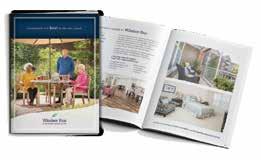

Announcing two new residence buildings coming soon to Windsor Run,® the premier senior living community in Southeast Charlotte. These new buildings will feature a variety of apartment homes with elegant finishes, plus all new amenities like a dining venue, fitness studio with a pickleball court, and more.

The Charlotte Jewish News - April 2023 - Page 40
Conceptual rendering Don’t wait to learn more! Call 1-800-583-9680 for your free brochure. 602400 Matthews WindsorRunCommunity.com
Running 13+ Miles for Friendship Circle
By Rivkie Vorst
Running a half marathon can be daunting, but the experience is made much more rewarding when it’s done for a good cause. That’s exactly what I did when I ran the Surf City Half Marathon in California to support Friendship Circle and celebrate the unique individuality of every person, especially children who have special needs.
Friendship Circle is an organization that provides support and friendship to children and young adults with special needs.
They believe that every individual, regardless of their abilities, deserves to be treated with re-
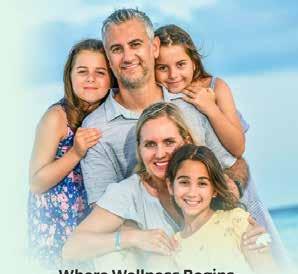
spect and kindness. Their programs and events help to build relationships, promote inclusion, and create a more compassionate community.
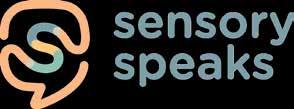
Upon arriving in Long Beach, California, we were treated to a full weekend experience with Friendship Circle participants from around the world. We shared an uplifting Shabbat together with stories of friendship from individuals of all ages and backgrounds.
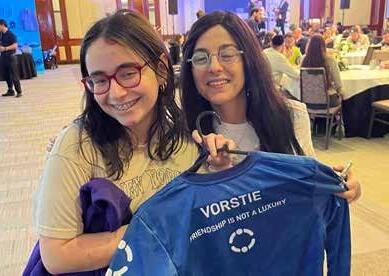
On the morning of the run, I arrived early to soak in the energy. There were hundreds of runners, all with their own unique stories and reasons for participat-
ing. Many were running to meet their own personal goals, while others, like myself, were running for a cause.
The atmosphere was electric as we lined up at the start line, with the sun just starting to peek over the horizon. The sound of the starting gun echoed through the air, and we were off.
The course wound through the beautiful streets of Surf City, passing by stunning ocean views and cheering spectators. As I ran, I reflected on the reason I was there — to support Friendship Circle and celebrate the unique
Friendship Loaves Is Back at Friendship Circle
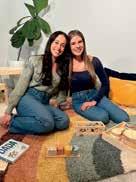 By Sue Schreiber
By Sue Schreiber
After a very long break, Friendship Loaves is back at Friendship Circle. We are excited to add another club to our list of Friendship Circle activities and provide another layer of exeriences to all of our Friends.
Friendship Loaves will give our young adults an opportunity to develop job-related skills while having fun.
W are inviting all Friendship Circle Friends, age 16 years and up, who are interested in learning job related baking skills. Baking is a great way for all young adults to develop job-reated skills and is especially meaningful to young adults with special needs.
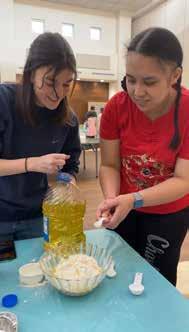
Baking requires carefully following directions. This is an important skill for any job, as it helps ensure that tasks are completed correctly and completely. Measuring ingredients requires attention to detail and accuracy. Problem solving is used when an ingredient needs to be substituted or omitted from a recipe.
Fine motor skills and hand-eye coordination are employed while mixing ingredients, pouring into pans and braiding the dough for challah. Baking often requires patience while waiting for ingredients to mix, rise, or bake. These skills can all be transferred to many different job settings and many different jobs
Meet Haley Ben David, our Friendship Loaves chief baker. She has loved baking ever since she was a teenager and is looking forward to sharing that joy with Friendship Circle Friends. As a former teacher, one of her favorite aspects of working with youth and teens is the empowerment they feel as they go through the learning process. Haley believes, “Through baking challah, Friends will learn not only
job-related skills but they will gain a deeper understanding about themselves and working on a team.”
Participation in Friendship Loaves will provide an opportunity for skill building, learning about teamwork and of course meeting new Friends.
For more information visit FriendshipCircleNC.org/bake
Friendship Circle is an affiliate of Chabad of Charlotte and a beneficiary of Jewish Federation of Greater Charlotte

Are you interested in learning ways to help your child reach their full potential?
JOIN
“My vision is a dental practice built group up on high morals, ethics, and values. Principles that aren’t shaped by insurance companies dictating the course of treatment. Where every detail that goes behind the scenes of making that “filling” mattertomyclientseveniftheyoftencan’tseeit.”
-Dr.Shirman
The Charlotte Jewish News - April 2023 - Page 41
Join Our Dental Wellness Club NO DENTAL INSURANCE? NO PROBLEM! No annual maximum No pre-authorization No deductible State-of-the-Art, Technology Advanced & Minimally Invasive Dentistry No waiting periods All Wellness Plans include:
*Call our Team for more information: 704-317-7337 | dentalwellnessofclt.com Emergency Exam (1/year) Periapical X-Rays (as many as needed per year) 15% off other procedures completed at our practice* Fluoride Treatment (1/year) Panoramic X-Ray (1/5 years) Bitewing X-Rays (4/year) No wondering what insurance will pay towards your treatment Education and Youth
US FOR: Developmental
Speech therapy and occupational
Parent
FREE screenings LEARN
Contact Us to Join The Fun! admin@sensoryspeaksllc com (704) 268-9854
classes for children and caregivers
therapy
coaching
MORE HERE:
Friends baking together
(Continued on page 42)
Rivkie Vorst and Rochel Groner
Live More, Worry Less
At Briar Creek Health Center
Friendship Circle




Our community fosters an environment where residents aren’t just neighbors…they’re friends and they can live more and worry less.
(Continued from page 41)
individuality of every person.
It was a humbling experience to think about the challenges that children with special needs face every day, and the incredible work that Friendship Circle does to support them. I knew that every step I took was helping to make a difference in their lives.
During my time at Friendship Circle’s summer camp last year, I was apprehensive about how my scars from a recent injury would be received. However, I was pleasantly surprised by the

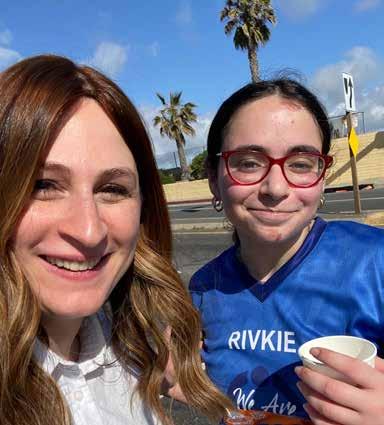


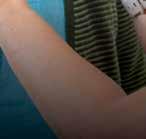
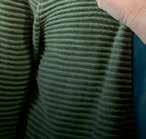




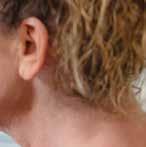



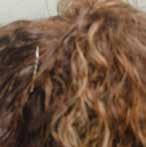

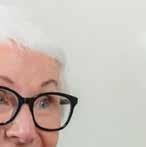









compassionate comments I received. Jack expressed his sympathy, saying, “Rivkie, I’m so sorry that you got hurt,” while Eli hoped for my speedy recovery, saying, “I hope the doctor can make you feel better soon.”
This experience taught me a valuable lesson about the power of love and care. Instead of being met with hate or guilt, the kindness of these children left a lasting impact on me.
The Charlotte Jewish News - April 2023 - Page 42
Offering: • Assisted Living • Memory Support
Long Term and Short Term Rehabilitation
Skilled Nursing © 2022 The Barclay at SouthPark 6041 PIEDMONT ROW DRIVE SOUTH CHARLOTTE, NC 28210 980.443.6760 | THEBARCLAYATSOUTHPARK.COM A Life Plan Community offered by Liberty Senior Living 122128 barclay at south park bchc live more worry less ad-cjn.indd 1 7/12/22 4:33 PM
•
•
A 1 T 2 R 3 I 4 A 5 R 6 A 7 S 8 K 9 I 10 K 11 A 12 R 13 B 14 R I A N E 15 S H E 16 N E R O L 17 E O N I M 18 S U N 19 E T I V E 20 A T S 21 T 22 A N L E 23 Y T 24 S E S 25 T E R 26 E O S 27 A I 28 L E R T 29 Y R A G 30 O 31 L 32 D 33 A N 34 E S S M 35 E 36 A S U R I N 37 G A 38 L 39 I 40 A S E 41 G O L 42 E S 43 L 44 I 45 K 46 I D D U S 47 H P 48 L 49 A S T I C I 50 L E A V E A 51 T T A C K N 52 O N L 53 I 54 B 55 B 56 I R 57 E Y T 58 H 59 E 60 F O U R C U 61 P 62 S A 63 L 64 I E N T 65 I E M 66 O H E 67 L 68 M 69 E T R O A 70 L E P 71 R I M E Y 72 O Y O S S 73 T S S 74 E P I A
(Puzzle on page 32)
Mussy Lew of Friendship Circle International and Rivkie Vorst
Looking Back: Year 2011
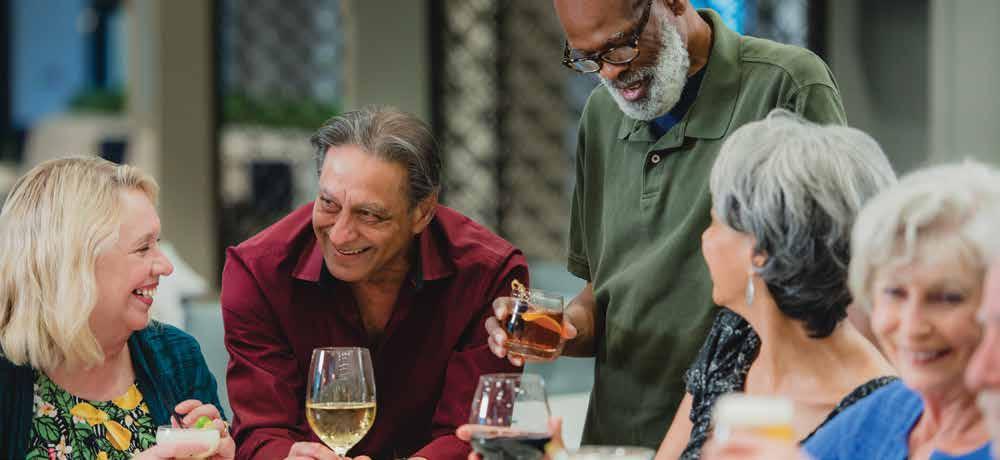
Margaret and Lou Schwartz Butterfly Garden Dedicated on Yom HaShoah
Over 500 people from the Charlotte community gathered outdoors at Shalom Park on Sunday, May 1 for the Yom HaShoah service and to dedicate the Children’s Holocuast Memorial Sculpture. The sculpture is located in the Margaret and Lou Schwartz Butterfly Garden, named for Holocaust survivors and the parents of Levine JCC Board President, Larry Schwartz.
As part of the Yom HaShoah service, twelve survivors and tehri families were present to light candles in memory of the brothers, sisters, mothers, fathers, aunts, uncles, and cousins who perished in the Holocaust.
The sculpture by Paul Rousso, renowned Charlotte artist, incorporates over 2,800 hand painted ceramic butterflies, each one crafted in memory of a specific child who died in the Holocaust. The sculpture was the result of The Butterfly Project, which was brought to
the Levine Jewish Community Center from the San Diego Day School by three very dedicated and talented Levine JCC volunteers, Wilma Asrael, Gwen Orland, and Barbara Ziegler.
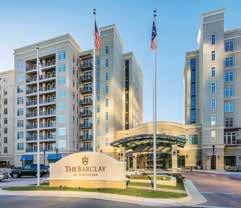
Over three years, these women led more than 60 Holocaust education workshops with area school children as well as with faith and community groups. Durin the workshops, ceramic butterflies were painted and lessons on intolerance, diversity and acceptance were taught as part of the project’s ongoing commitment to education.
Judy August, past Levine JCC Board President, and Jill Newman, current Levine JCC Board Member, spearheaded the fundraising effort to bring the sculpture and garden to Shalom Park. Patty and Bill Gorelick, Sandra and Leon Levine, and Larry Schwartz were prime donors to the project. Thanks to the planning, persistence, and generous contributions of many
volunteers and community leaders, what started as a small dream for making a few butterfiles to adorn the Levine Jewish Community Center” became “like a butterfly ... spreading its wings and becoming something very special.”
Now the sculpture’s arching expanse and colorful mosaic instantly draw the eye as one enters the Park. However, the dedication of this magnificent sculpture is not an end, but a beginning.
The Levine Jewish Community Center and the Levine-Sklut Judaic Library are collaborating to provide educational workshops throughout the Charlotte community on the Holocaust, religious tolerance, diversity, and acceptance. This initiative will include the recruitment and training of volunteers to lead these workshops and fielding inquiries and requests from area schools, churches, and other community groups and
agencies.
It is hoped that additional financial and volunteer support will sustain these educational workshops in perpetuity as The Butterly Project enters this new phase of its development. The Margaret and Lou Schwartz Butterfly Garden, the site for the workshops going forward, will be appreciated not only for its beauty and artistic merit, but also as a haven for reflection and discussion.
Dr. Racelle Weiman, Director of The Center for Holocaust and Humanity Education at Temple University, shared in her lecture following the ceremony the shoking fact that only 7-8% of Jewish children survived Nazi-occupied territory. Only 33% of Jewish adults survived. Thousands of non-Jewish persons who were sympathizers, disabled, homosexual, or otherwise deemed undesirable were also eliminated.
But out of our collective
memory of this tragic and horrible past, the seeds of hope and peace can germinate.
During this year’s Yom HaShoah service, Rabbi Judy Schindler reflected, “As Jews, we are called to continually move forward: from despair to embracing life, from fear to faith, fraom ashes to hope.”
Rabbi Yossi Groner of Congregation Ohr HaTorah stated, “Today we look at this memorial as a beacon of hope and we resolve to raise our children in a better world where evil no longer has a place. We educate our children to be living Torah scrolls where the worlds of God are written in their minds and hearts.
Live butterflies were released at the close of the service. As the butterflies tested their wings and broke free of their paper “chrysalises,” the sun broke through the cloudy skies.
The Charlotte Jewish News - April 2023 - Page 42 Newspaper archives are a treasure trove of collective memories, providing a snapshot of our history. The following article is from The Charlotte Jewish News, June/July 2011. To read other issues of The CJN, visit the archives at https://www.digitalnc.org/newspapers/charlotte-jewish-news-charlotte-nc/.
A Life Plan Community offered by Liberty Senior Living © 2022 The Barclay at SouthPark DON’T JUST LIVE HERE... LOVE IT HERE. 4801 Barclay Downs Drive, Charlotte, NC 28210 BarclayAtSouthPark.com LIVE at The Barclay at SouthPark and... LOVE the INSPIRE wellness program LOVE the active lifestyle LOVE the only non-entrance fee community in SouthPark LOVE the multiple dining options LOVE the continuing care in place should you need it LOVE the peace of mind for you and your family. Call 980.825.4132 to schedule a tour and see why residents don’t just live here, they LOVE IT HERE. 122036 barclay love it here people at bar ad-cjn.indd 1 3/3/22 4:32 PM
4 States Have a Presidential Primary Falling on the First Day of Passover
By Ron Kampeas, JTA, March 8, 2023
Four states have presidential primaries that fall on the first day of Passover next year and legislation has been introduced in at least two of them, Maryland and Pennsylvania, to change the date.

The four states listed on the website of the National Conference of State Legislatures as having presidential primaries on Tuesday, April 23, 2024 are Maryland, Pennsylvania, Delaware and Rhode Island. Passover starts the previous evening, and traditional Jewish law, or halacha, prohibits writing, driving or the use of electricity on the holiday, which would make voting impossible for many observant Jews.
The Maryland suburbs of Washington, D.C., are home to a substantial and close-knit Jewish community, including Orthodox enclaves. Balti -
more also has a large Jewish community with a substantial Orthodox component. Ronald Halber, the director of the Jewish Community Relations Council of Greater Washington, said on Wednesday that his organization was already coordinating with the Maryland legislature to change the date.
“The JCRC is working with both House and Senate leaders to pass legislation that will correct this unfortunate conflict and we are confident that the matter will be resolved without any issues,” he said.
The leaders of both chambers in Maryland’s state legislature, both Democrats, said last month they were willing to change the date, and an Orthodox Jewish Democratic lawmaker, Dalya Attar, has initiated legislation to do so.
Attar told Jewish Insider that she appreciated Maryland’s flexible voting system,
which allows for early voting, but that it is not sufficient to compensate for holding a primary on the first day of Passover.
“Having the primary is great and having those early voting dates are very helpful,” she said. “But the reality is,
many people go out and vote on Election Day.”
Robin Schatz, the director of government affairs at the Jewish Federation of Greater Philadelphia, said she was looking into the matter. “We are working to see if it can get moved,” she told JTA.
There are substantial Jewish populations, including Orthodox enclaves, in Pittsburgh and in Philadelphia and its suburbs. The state’s governor, Democrat Josh Shapiro, is an observant Jew.
Pennsylvania lawmakers are separately considering moving the primary up by a month, to March 19, to make the state more relevant to primary season. That initiative has nothing to do with Passover, Schatz said. As the schedule currently stands, the primary and caucus season will begin when Iowa holds its Republican presidential caucuses in late January. South Carolina will hold the first Democratic nominating contest in early February.
Jewish officials in Rhode Island said they were reaching out to the Secretary of State to discuss options. Jewish officials in Delaware were unavailable for comment.
Abraham Zarem, One of the Last Surviving Manhattan Project Scientists, Dies at 106
By Andrew Silow-Carroll, March 16, 2023 (JTA)
Abraham Zarem was 28 when he joined the Manhattan Project, the vast U.S. government effort to develop the atom bomb.
Engineers like him gathered in secret laboratories in New Mexico, California, New York City and elsewhere to provide the practical knowhow the theorists lacked.
“‘They were geniuses, but didn’t know how to build a f—king thing,’” Zarem recalled, according to his longtime rabbi at Sinai Temple in Los Angeles, David Wolpe.
Zaum, who went on to a distinguished career in technology, business development and leadership management training, died March 8 in Los Angeles. He was 106, and one of the last surviving members of the army of scientists, technicians, bureaucrats and clerks who helped build the weapon that would force Japan’s surrender in World War II and usher in the Atomic Age.
After the war, Zarem joined the staff of the United States Naval Ordnance Test Station at Pasadena, where as head of the electrical section of the physical research division he developed a high-speed cam-
era used to study intense light sources and other phenomena. Popular Mechanics called the Zarem camera — 25,000 times faster than any movie camera then available — a “miracle.”
In 1963, Zarem served as senior vice president of Xerox, leaving in 1970 to launch a consulting business. He returned to Xerox as founder and CEO of its Xerox
Development Corporation in 1975. He later served as founder and managing director of Frontier Associates, a technology consultancy.
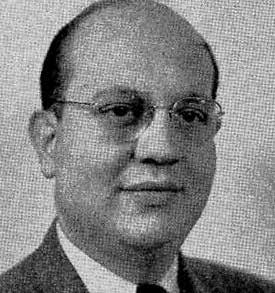
Born in Chicago on March 7, 1917, Zarem was valedictorian of his undergraduate class at the Armour Institute of Technology (now the Illinois Institute of Technology), and earned his doctorate on the physical properties of the
electric spark at the California Institute of Technology. He headed the Stanford University Research Institute in Los Angeles while still in his 30s.
Later he served as distinguished senior advisor for Neuroscience Technology Transfer for the UCLA Brain Research Institute and a member of the Urology Advisory Board of the UCLA Geffen School of Medicine. Additionally, he served as distinguished visiting executive in Science and Technology for Caltech’s Jet Propulsion Laboratory.
One of Zarem’s companies, Electro-Optical Systems, developed the “world’s first practical ion engine” — an experimental high-energy thruster for spacecraft. It now resides in the Smithsonian Institute in Washington, D.C.
Zarem was also a regular at Sinai Temple, where Wolpe said Zarem mentored him as a young rabbi. Zarem and his wife Esther were generous contributors to the congregation; Wolpe remembered Zarem chanting from the book of Jonah on Yom Kippur when he was 99.
“Abe Zarem was a brilliant, buoyant, passionate, pious and philanthropic person,” Wolpe told the Jewish Telegraphic
Agency this week. “He had a central role in some of the key scientific events of human history — the atomic bomb, the moon landing — and yet took an interest in everyone lucky enough to meet him. Abe was truly yachid b’mino — unique in his time. He will be greatly missed.”
Unlike with some of his collaborators on the Manhattan Project, there is no public record of Zarem grappling publicly with the moral implications of the weapon he helped develop. Years after their war work at Caltech, a man who worked under Zarem as a lab assistant said he felt no guilt, because without the detonations at Hiroshima and Nagasaki, he told a local newspaper, “We would have lost 500,000 Americans in the invasion of Japan.”
But Zarem did go on the record in 1952 on a different topic, in advice he shared with a labor and management magazine: “Keep your feet warm, and your head cool. And watch out for the hotheads with cold feet.”
His survivors include his children, Janet, David and Mark.
The Charlotte Jewish News - April 2023 - Bonus Content
Holocaust Novel By Jodi Picoult Removed as Florida School District Purges Libraries To Comply With State Law
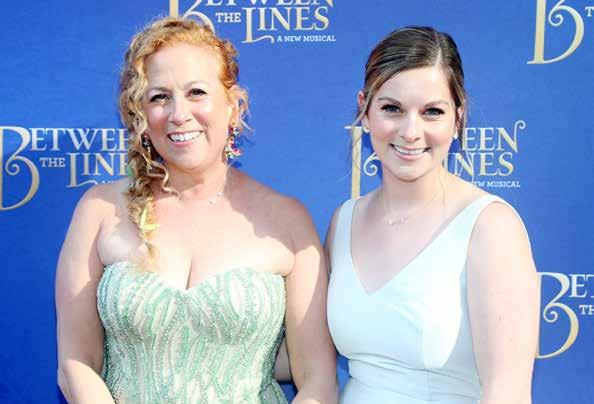 By Andrew Lapin, March 14, 2023 (JTA)
By Andrew Lapin, March 14, 2023 (JTA)
A Holocaust-themed novel by bestselling author Jodi Picoult was among dozens of books removed from a South Florida school district library’s circulation last month, in the latest example of books with Jewish themes getting swept up amid a larger conservative-led effort to police potentially inappropriate material in classrooms.
“The Storyteller” was removed from the library last month at a high school in Martin County, a southeast Florida district, owing to a parental complaint. According to a list of removed books published by local media. the novel was among several others by Picoult that were taken off the shelves. Other removed books by Jewish authors include the coming-of-age novel “Forever,” by Judy Blume, and “Extremely Loud and Incredibly Close,” by Jonathan Safran Foer, which is about a boy whose father was killed on 9/11.
Nationwide, book removal campaigns have sought to purge schools and public libraries of what opponents have deemed “critical race theory,” “pornography” and “gender ideology.” Notable instances of Holocaust-themed books getting ensnared in such efforts include Art Spiegelman’s “Maus” being removed from a Tennessee middle school curriculum; a graphic novel adaptation of Anne Frank’s diary being briefly removed from a Texas district; and
several young-reader histories about the Holocaust also being briefly removed from a Missouri district.
Florida in particular has required additional scrutiny of the books that are available to schoolchildren. While Gov. Ron DeSantis has denied that the state is banning books, activists say his “Stop W.O.K.E. Act” encourage parents and educators to take license in purging schools of material that could carry a hint of impropriety. Some districts have covered or removed their
classroom libraries entirely to comply with the law, while other Florida districts have removed picture books that trigger concern, including one about Shabbat that was part of a diversity package and another about a Jewish family with two dads.
Blume’s and Foer’s books have been frequent targets of other school bans and removals, as have many other books on Martin County’s list — including Toni Morrison’s “Beloved” and Margaret Atwood’s “The Handmaid’s
Tale.” But Picoult, who grew up in a secular Jewish household, told the Washington Post that this was the first time, to her knowledge, that “The Storyteller” has been targeted. She said the removal was “shocking, as it is about the Holocaust.”



In an opinion piece for The Daily Beast following the initial publication of this article, Picoult elaborated, writing, “There was a strange irony that a parent wanted this particular book removed, because it felt a bit like history
repeating itself.” The author is co-writing a new musical based on Markus Zusak’s young-adult novel “The Book Thief,” which is also set in Nazi Germany, and said she had been “watching a book burning” as part of the British production’s rehearsals when she heard the news about the latest round of her book bans.
First published in 2013, “The Storyteller” follows the Jewish granddaughter of a Holocaust survivor who learns that her neighbor is a former Nazi officer who served in concentration camps. Her neighbor also asks her to help him commit suicide.
The Post reported that most of the Florida district’s book complaints originated from one parent: the head of the local chapter of the conservative group Moms For Liberty.
“At this point, we believe we have challenged the most obscene and age inappropriate books,” the parent, Julie Marshall, told the Post.
Marshall did not immediately respond to a Jewish Telegraphic Agency request for comment on why she sought to remove “The Storyteller,” but she previously told the school board that the vast majority of her challenges were based on what she deemed sexually explicit content. The book contains several sexually graphic scenes, including depictions of sexual assault by Nazi guards.
The Charlotte Jewish News - April 2023 - Bonus Content
Living
AvevA - Color | Aveva
| TEDxJaffaWomen
Jodi Picoult and her daughter Samantha Van Leer pose at the opening night of the musical "Between The Lines," July 11, 2022 in New York City. (Bruce Glikas/Getty Images)
in a Playful Collage: Hanoch Piven at TEDxJerusalem
Dese
Yom Ha’atzmaut
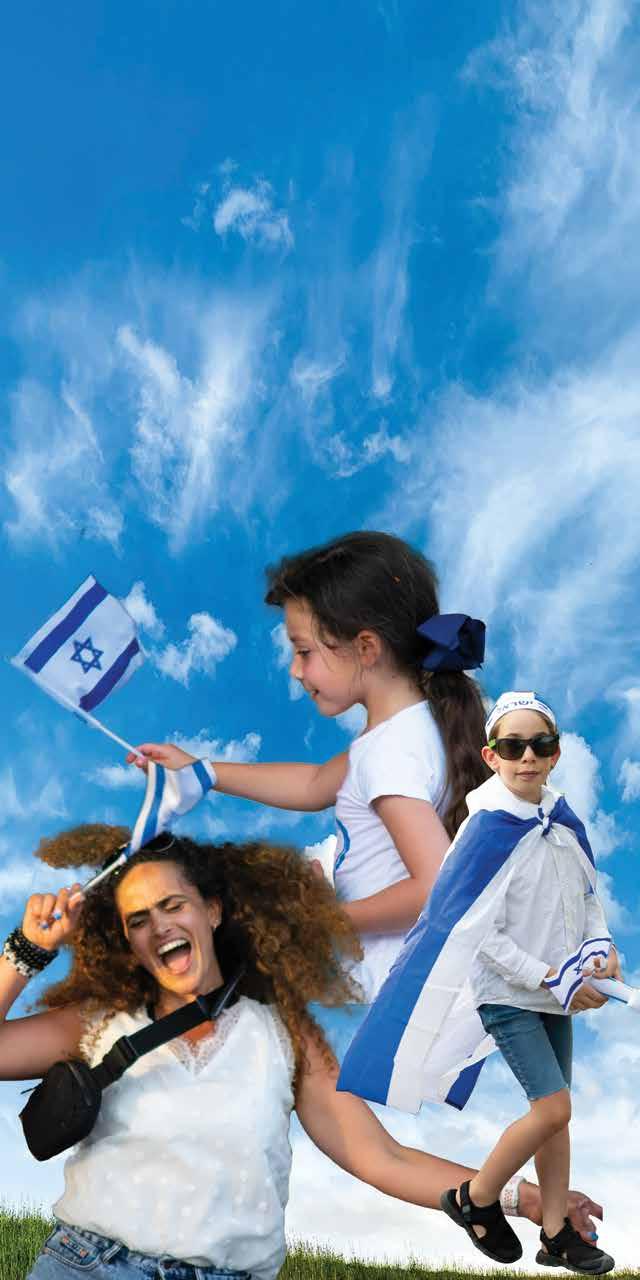
Community-wide celebration
Wednesday, April 26th
Poliakoff Soccer Pavilion and LJCC soccer fields.
Timeline of event:
5:00pm - Festivities begin 6:00pm - Aveva live musical performance begins
8:00pm - Event ends
Activities include:
Authentic Israeli barbeque
Lawn games
Live music by Israeli performer
Olde Meck Brewery
Kona Ice
Fire truck with foam bubbles
Giveaways
For more information visit jewishcharlotte.org





















 By Sue Littauer
By Sue Littauer













































 By Cantor Shira Lissek
By Cantor Shira Lissek


























 By Mindy Franklin
By Mindy Franklin


































 By Dale Rivers, Vice President
By Dale Rivers, Vice President











































 By Sandra Goldman, Hebrew Cemetery Executive Director
By Sandra Goldman, Hebrew Cemetery Executive Director





























 By Emily Schenkel
By Emily Schenkel











 By Sue Schreiber
By Sue Schreiber


































 By Andrew Lapin, March 14, 2023 (JTA)
By Andrew Lapin, March 14, 2023 (JTA)













